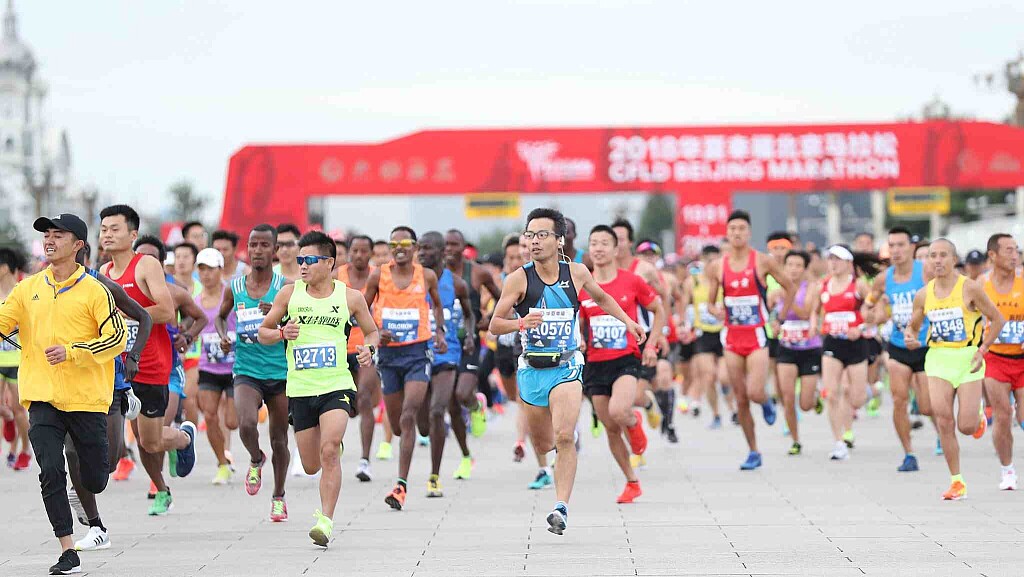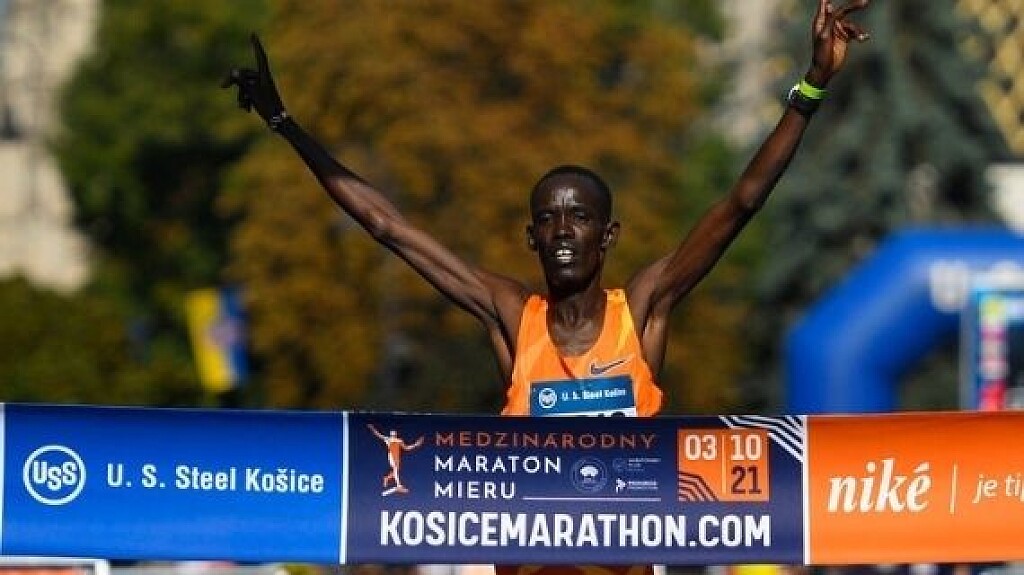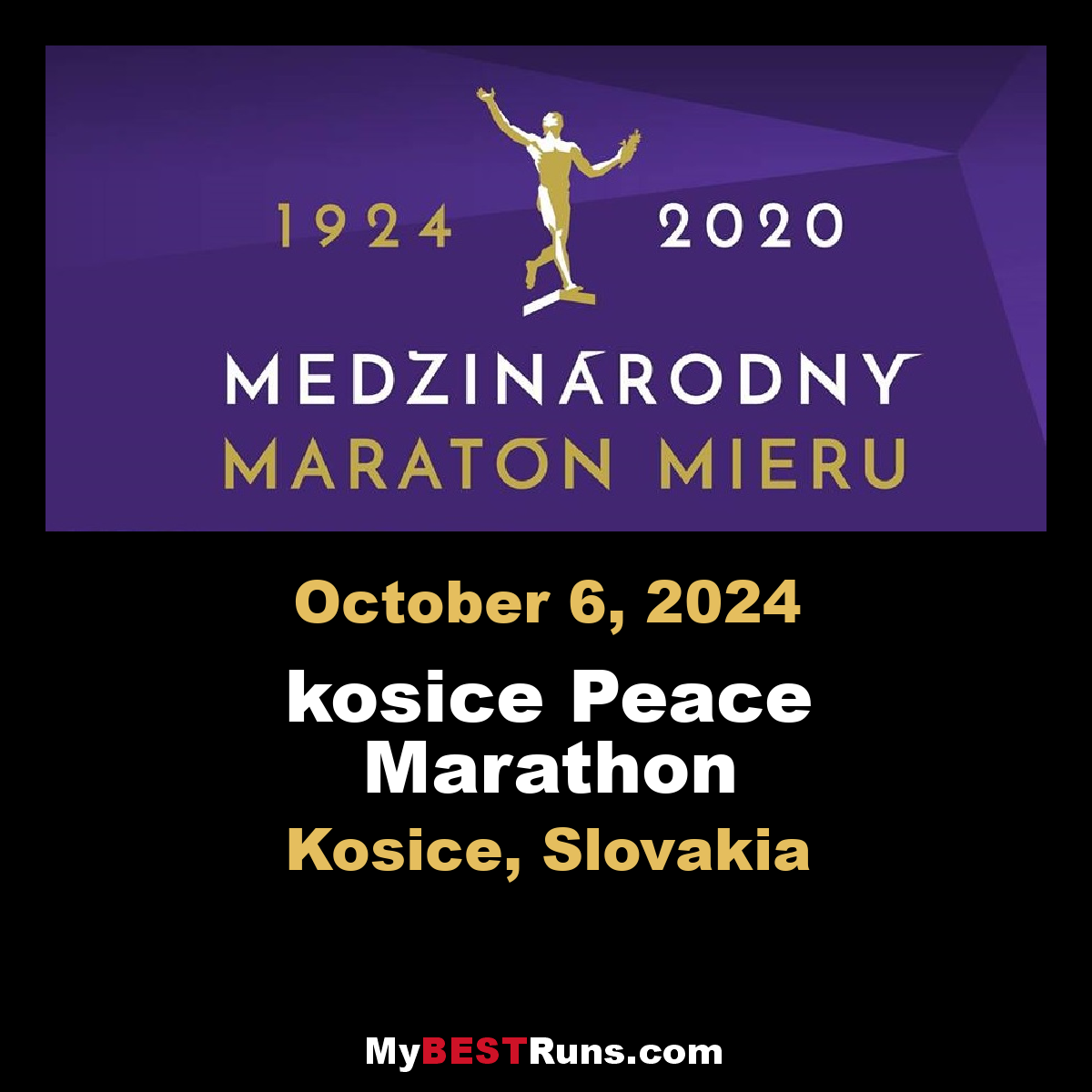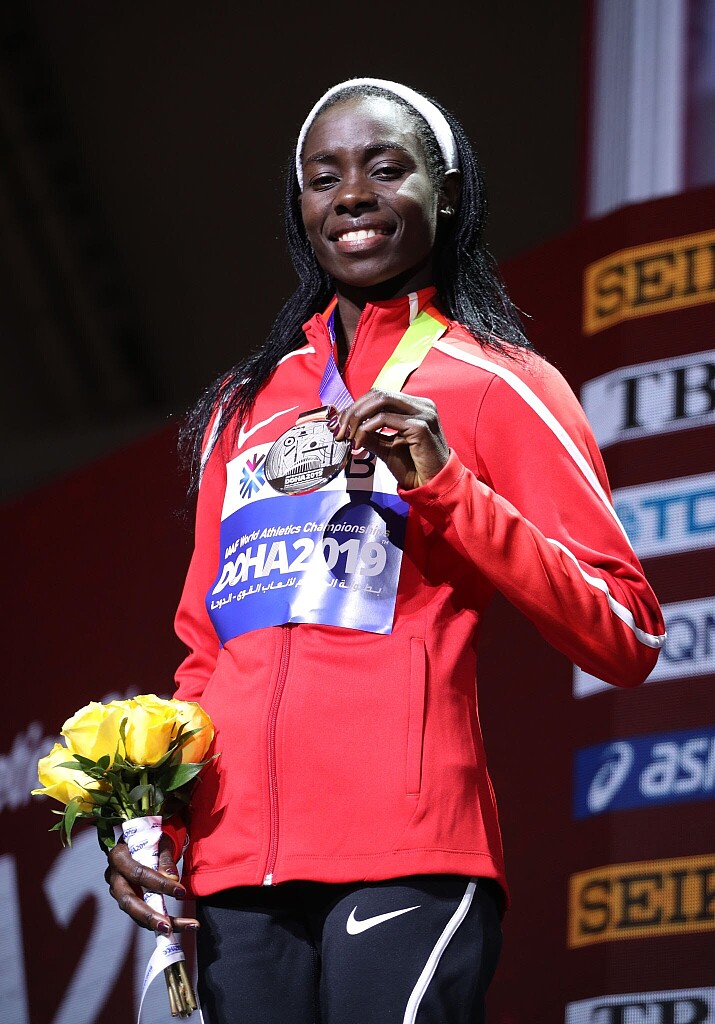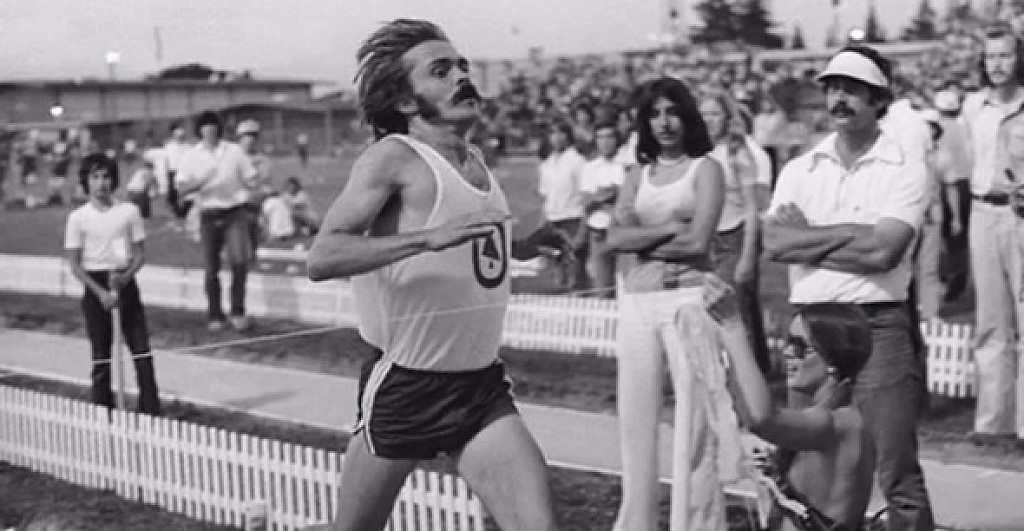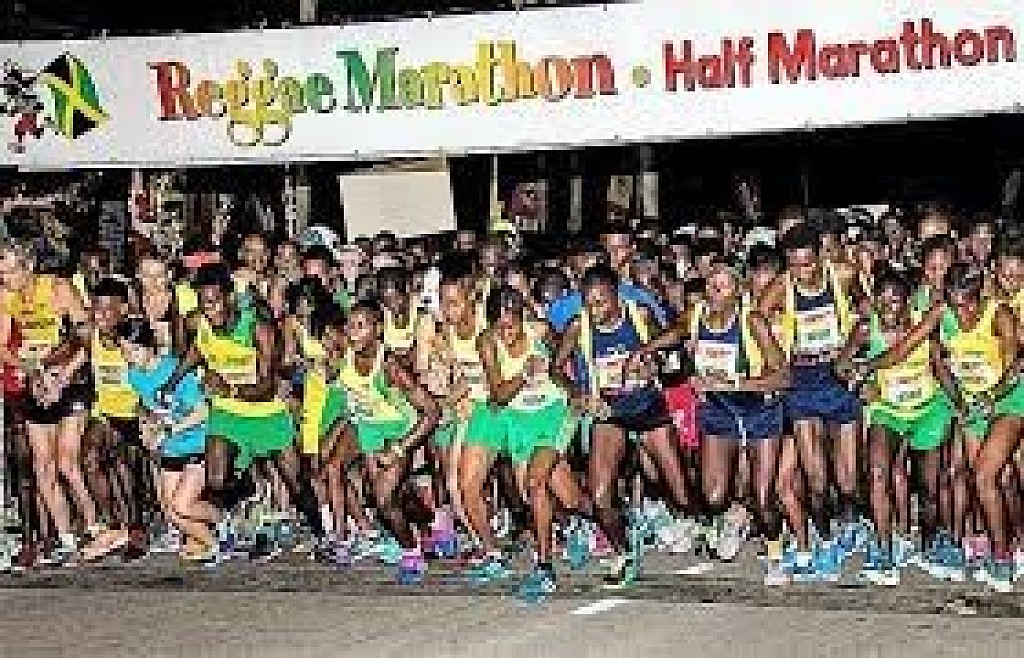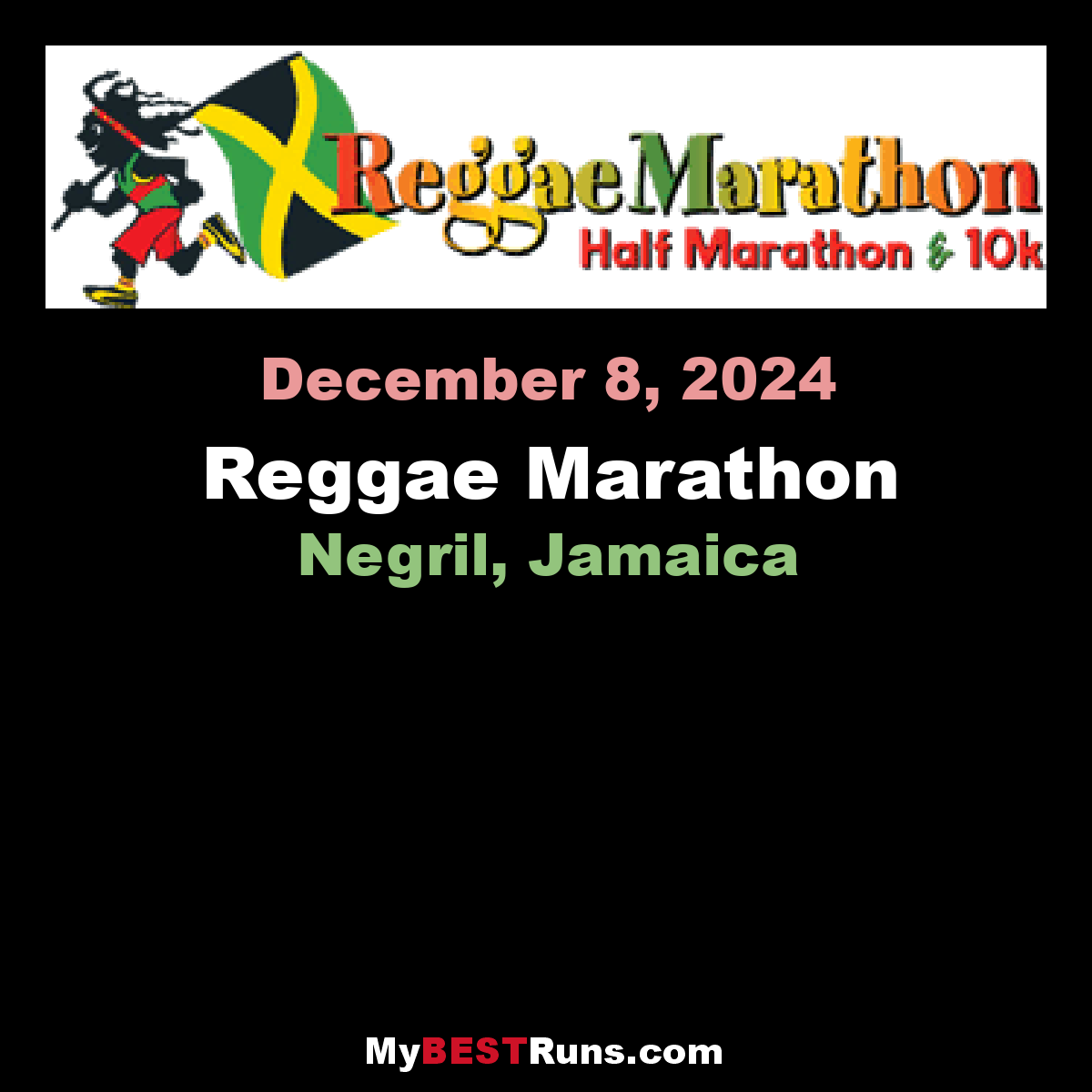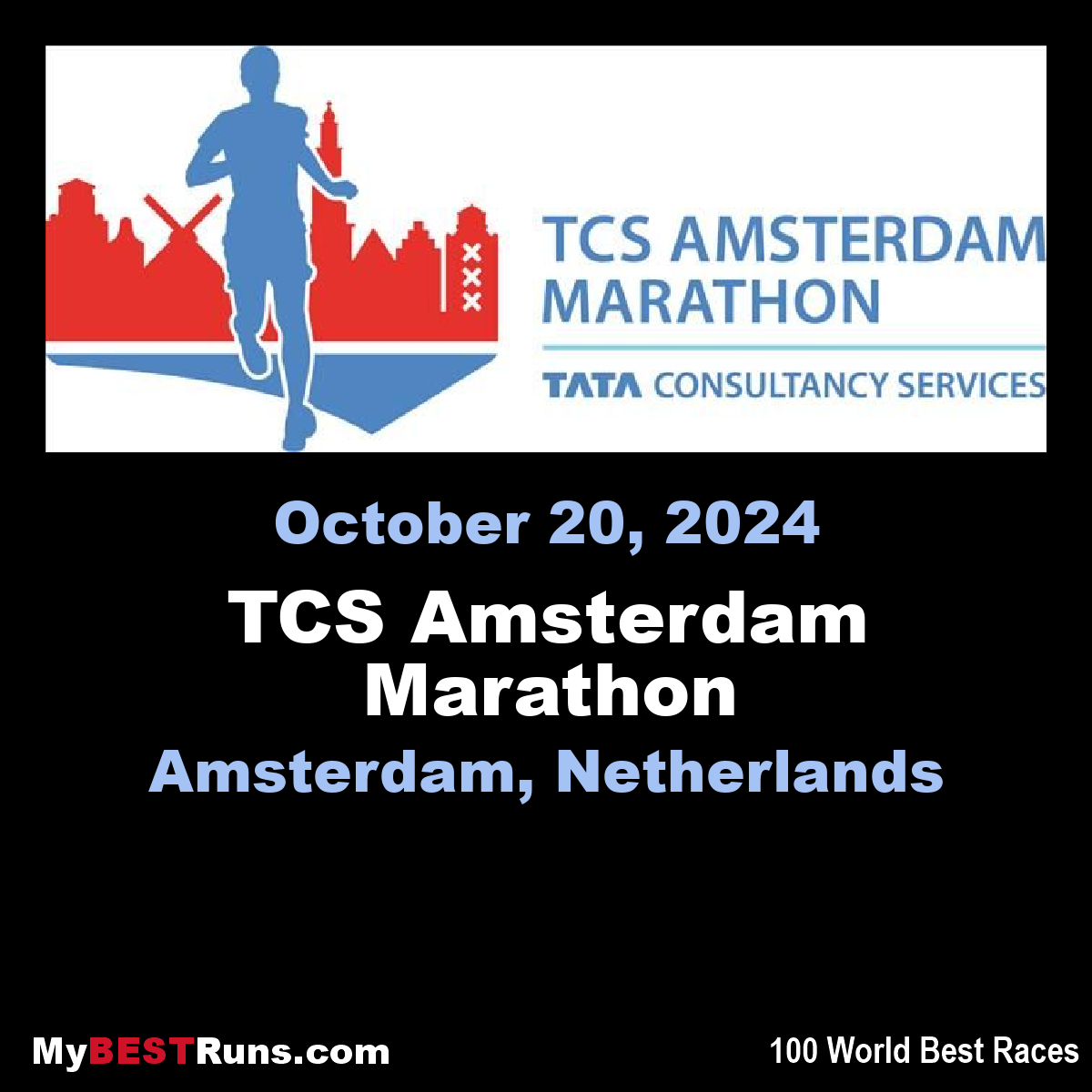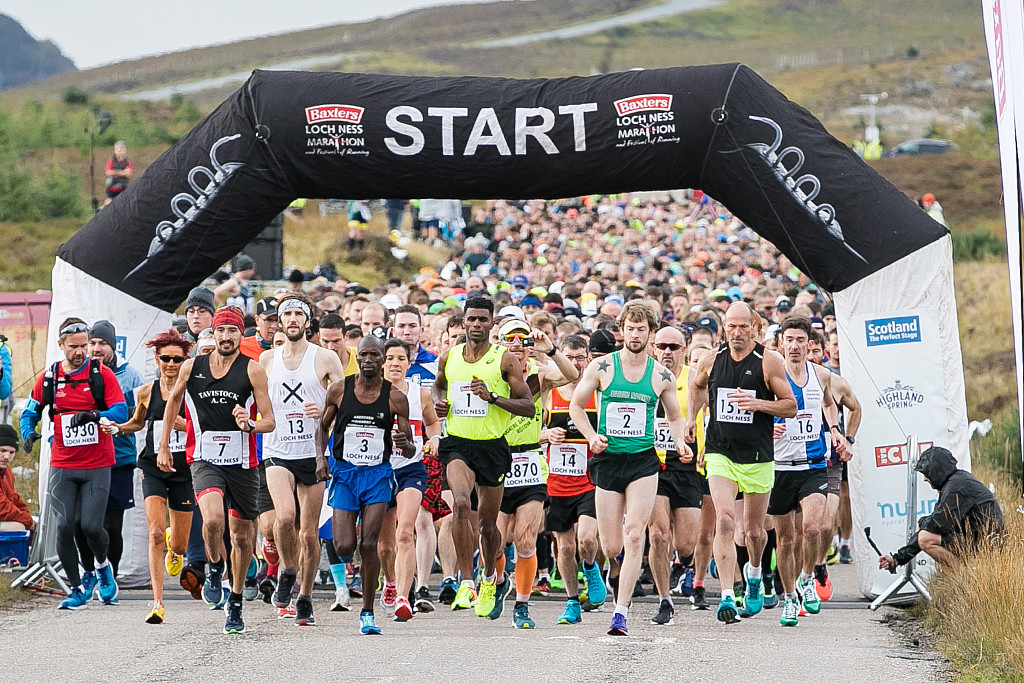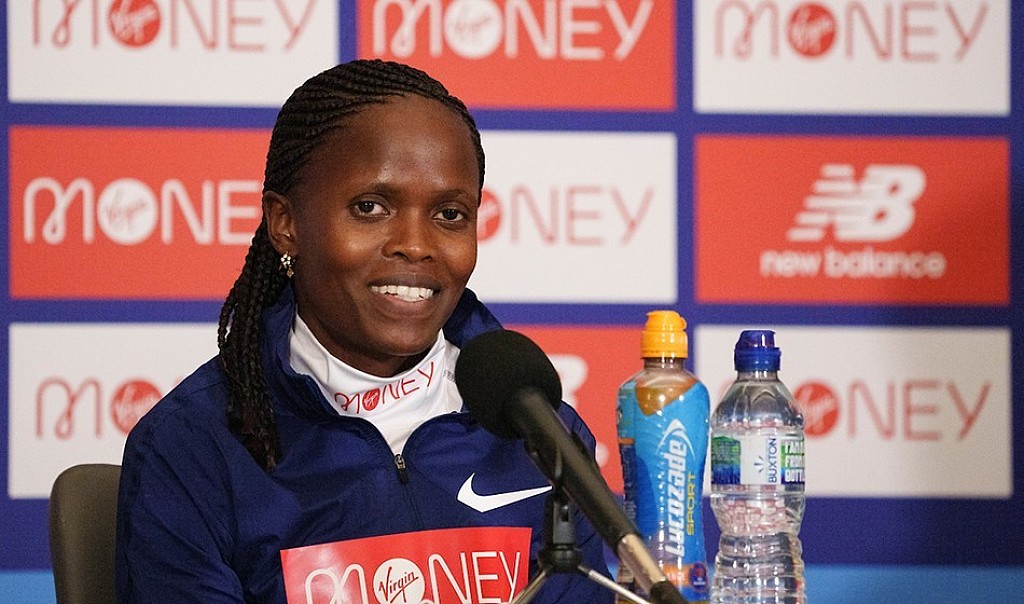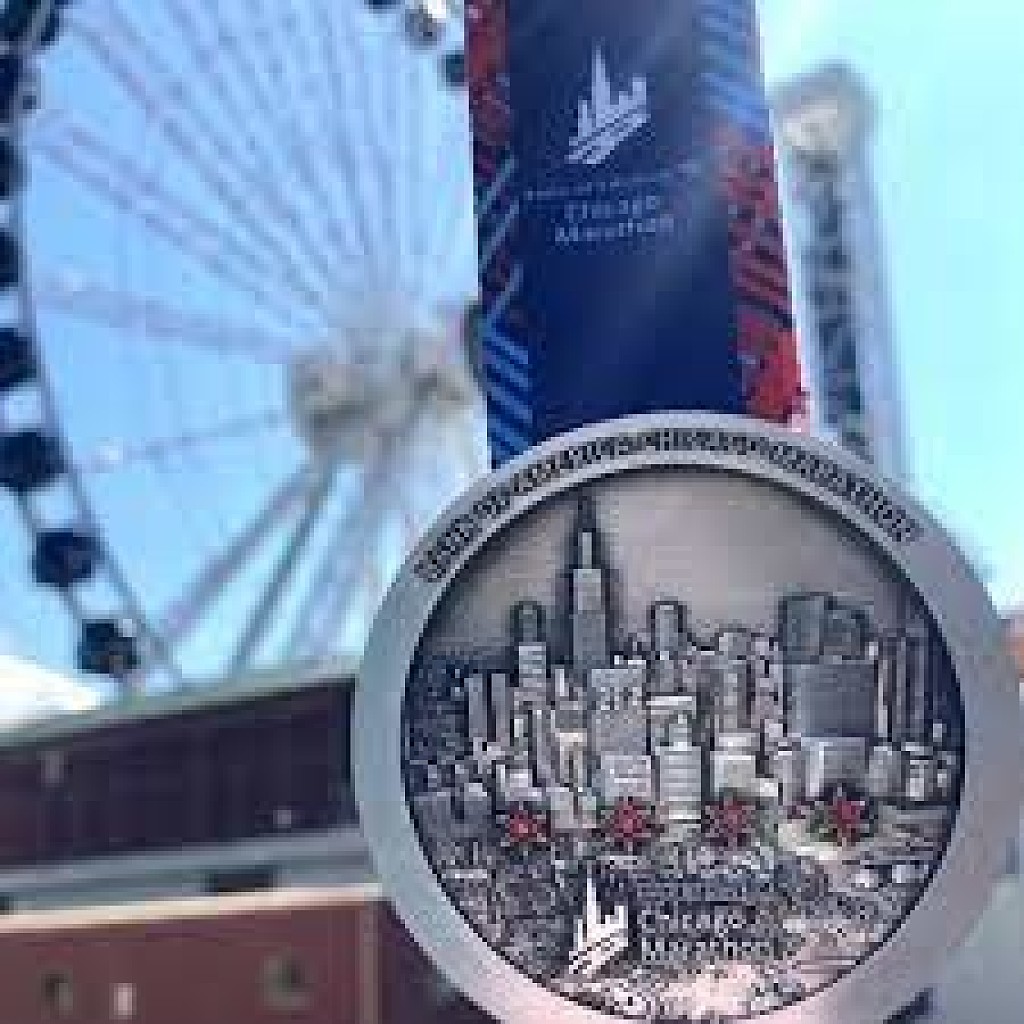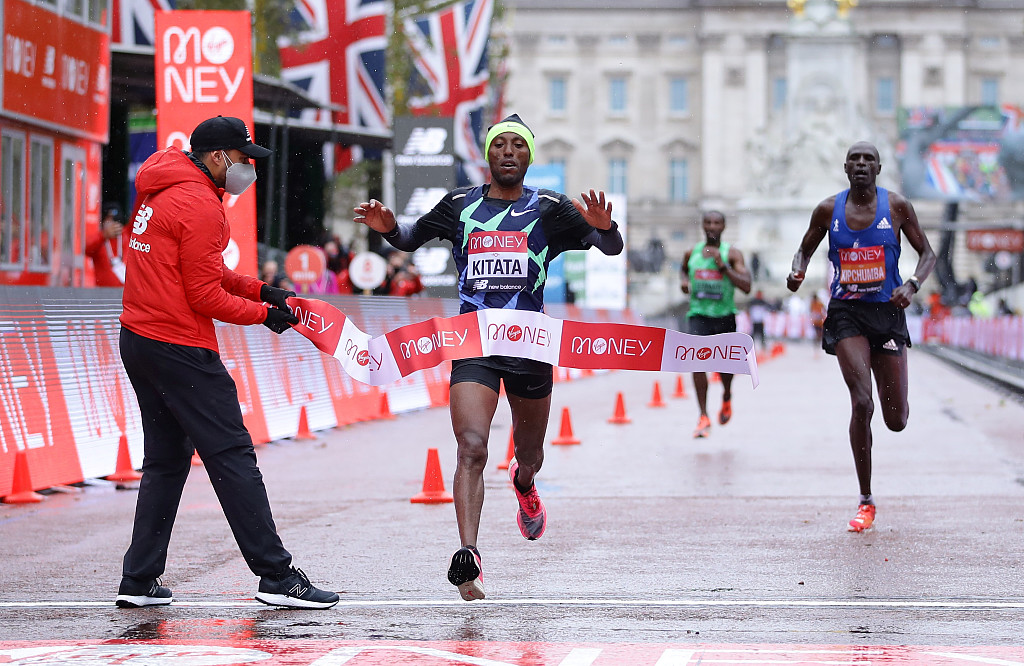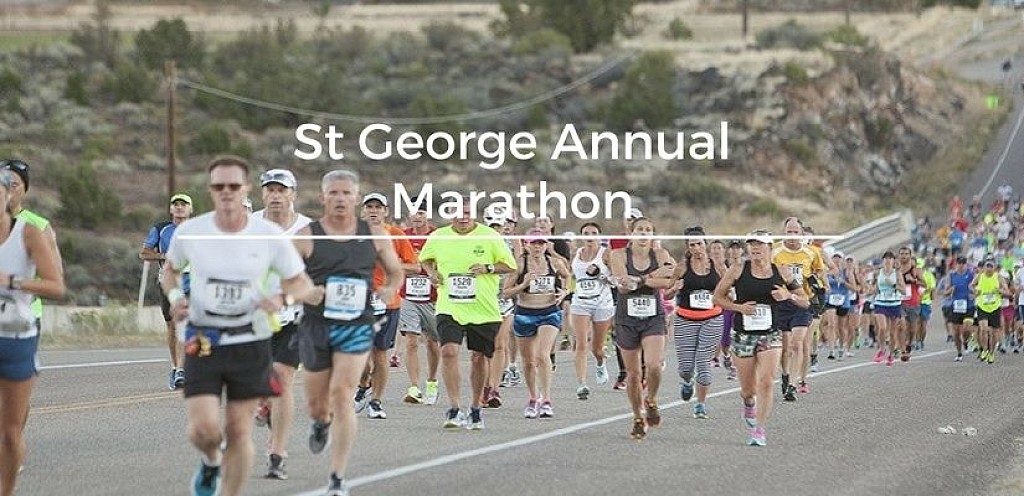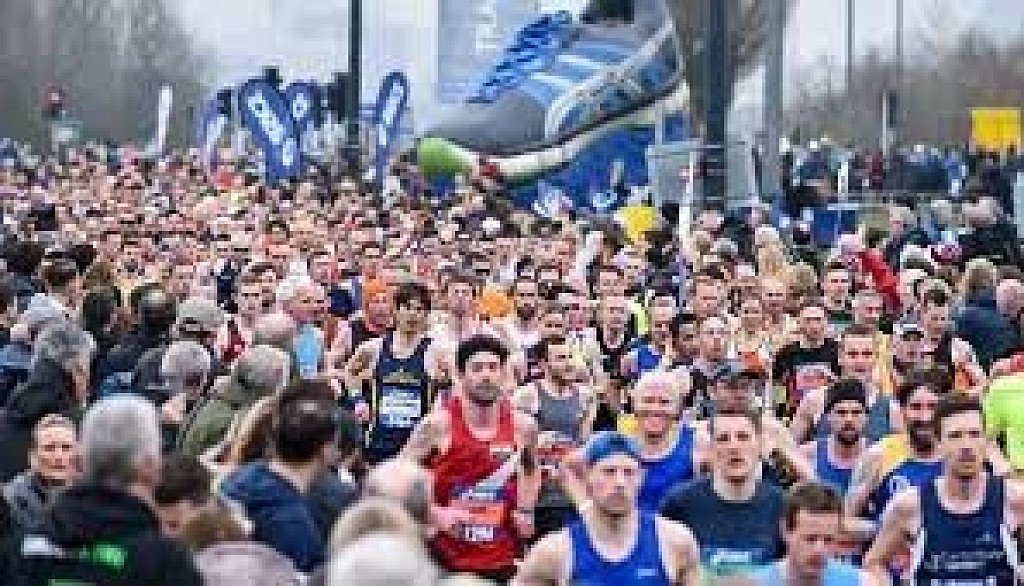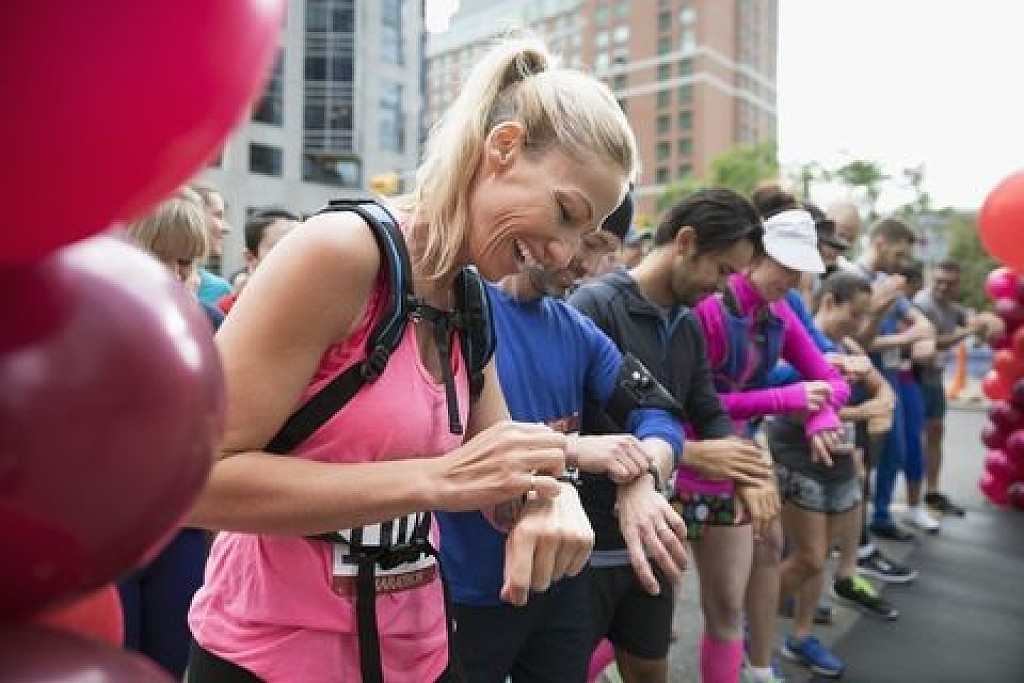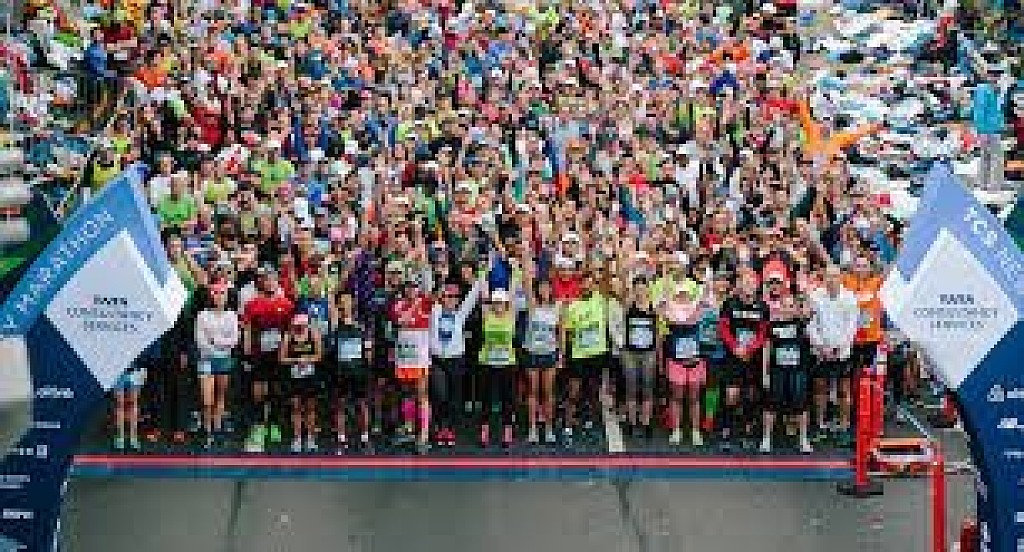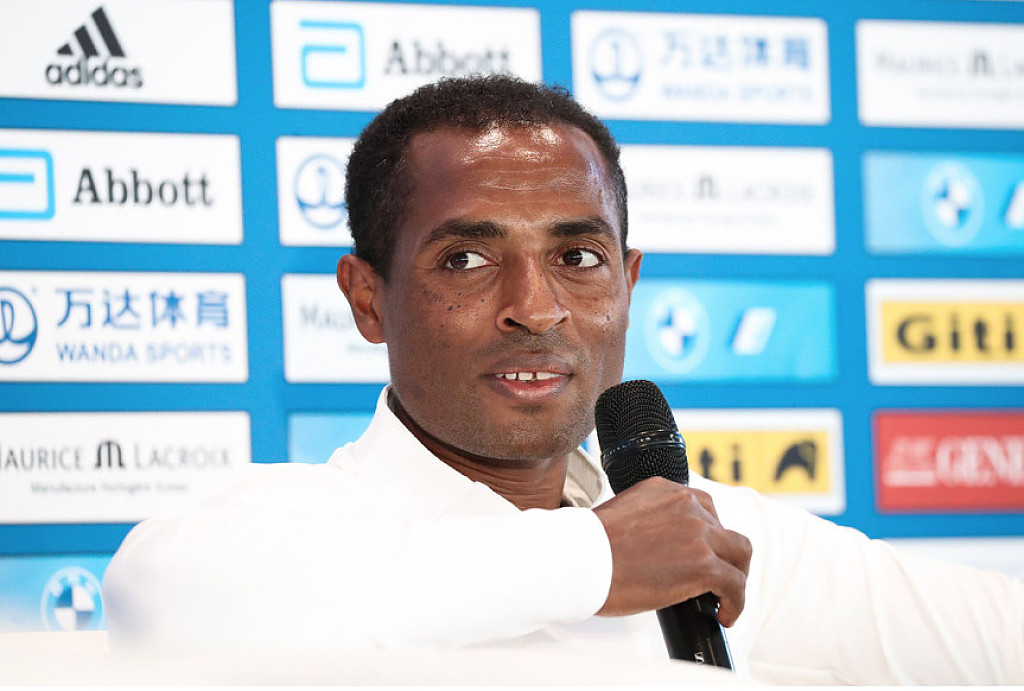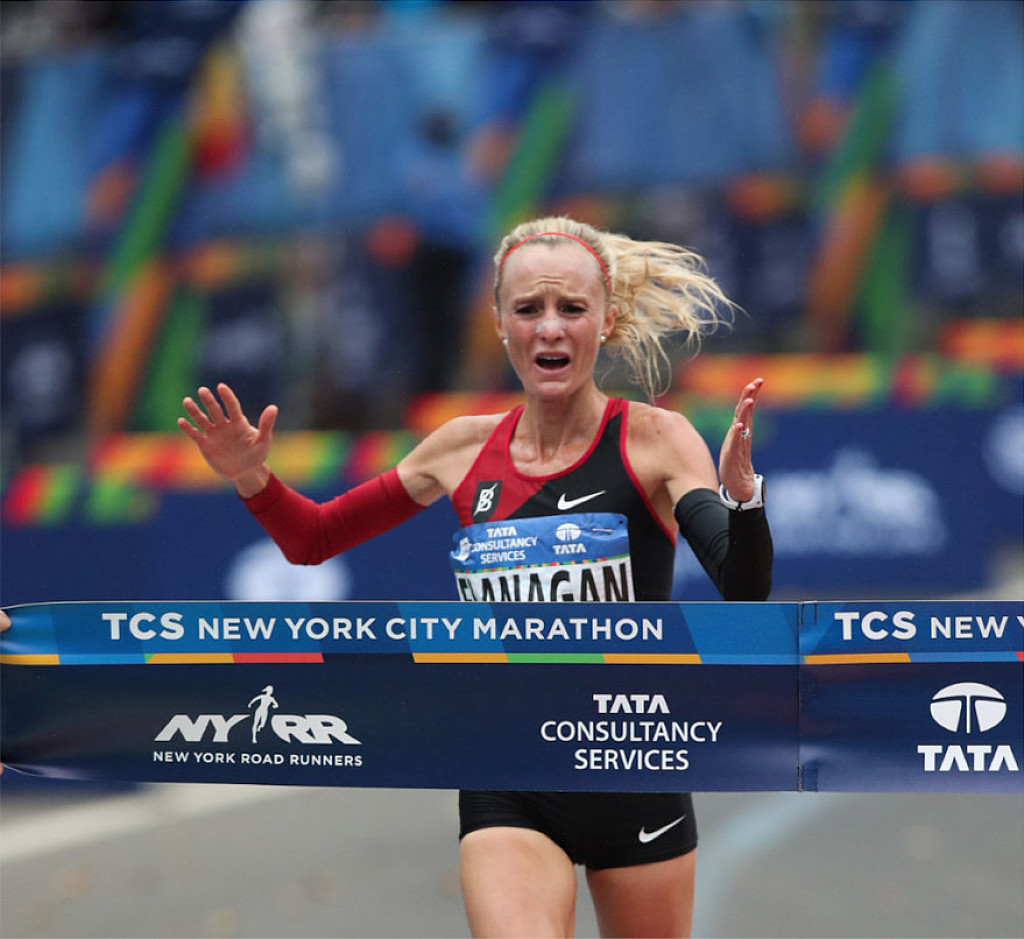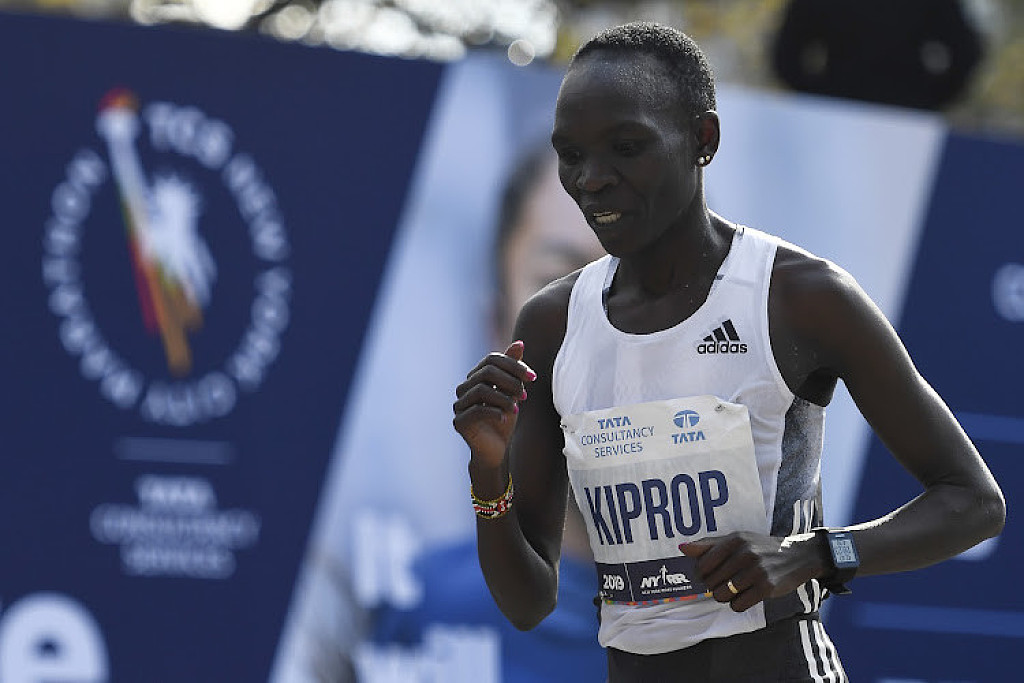Running News Daily
Running News Daily is edited by Bob Anderson in Mountain View, California USA and team in Thika Kenya, La Piedad Mexico, Bend Oregon, Chandler Arizona and Monforte da Beira Portugal. Send your news items to bob@mybestruns.com Advertising opportunities available. Over one million readers and growing. Train the Kenyan Way at KATA Running Retreat Kenya. (Kenyan Athletics Training Academy) in Thika Kenya. Opening in june 2024 KATA Running retreat Portugal. Learn more about Bob Anderson, MBR publisher and KATA director/owner, take a look at A Long Run the movie covering Bob's 50 race challenge.
Index to Daily Posts · Sign Up For Updates · Run The World Feed
Ultra trail runner and psychotherapist Cassie Smith explains how the combination of running and nature can boost your mood
The mental health benefits of running are well documented, and there’s a large body of research demonstrating the mood-boosting effects of getting out for even a short jog around the block. There are also a number of studies that show the positive impact nature can have on our mental health.
Trail running is the perfect combination of exercise and nature, and while it isn’t a panacea for mental illness, its positive impact on mental health cannot be denied. We spoke with ultratrail runner and psychotherapist Cassie Smith about how runners can maximize the mental health benefits of their daily miles.
Smith is an accomplished ultratrail athlete. The Smartwool-sponsored runner has several podium finishes to her name from races in Canada and around the world. She’s also a psychotherapist who works as a counselor at the University of British Columbia, which gives her a unique insight into the positive and negative aspects of running as they pertain to mental health. She explains that in addition to the combined effects of nature and physical activity, trail running also promotes being in a more present mindset or a “flow state,” which can help individuals cope with everyday stress and anxiety.
“A lot of mental health issues result from our minds going backward and thinking about the past, or going forward and worrying about the future,” she explains. “When you’re in that flow state, you’re not doing either of those things. You’re focused on the task in front of you, and the mechanisms in your brain that pull you in those other directions aren’t operating.”

She adds that while you can also enter this flow state on the roads, trail running is more effective in this way because you have to be more mentally engaged in what you’re doing to navigate uneven terrain and avoid tripping on a rock, root or other obstacle.
On the flip side, trail running does tend to lean toward the extreme end of the sport, and Smith admits that if you’re not careful, running can start to have the opposite effect on your mental health, particularly if it takes you away from other important parts of your life, like spending time with friends and family. Smith adds that many trail runners (and runners in general) also risk tying up too much of their identity in the sport, which sets them up for trouble if they have a bad run or race, or if something happens that prevents them from training.
“I encourage people to paint a picture in their minds of the healthiest version of themselves,” she says. “What do you look like when you’re sleeping eight hours each night, eating healthy meals, connecting with friends and moving well without pain?”
She goes on to explain that anything you do, including trail running, should promote that healthy version of yourself and be one aspect of it — not the entire picture. If you’re neglecting your relationships, sacrificing sleep or beating your body up without proper recovery in order to focus on running, you’re likely taking it too far. “You have to ask yourself if trail running is still serving its purpose,” she says, which is to make you a healthier, happier person.
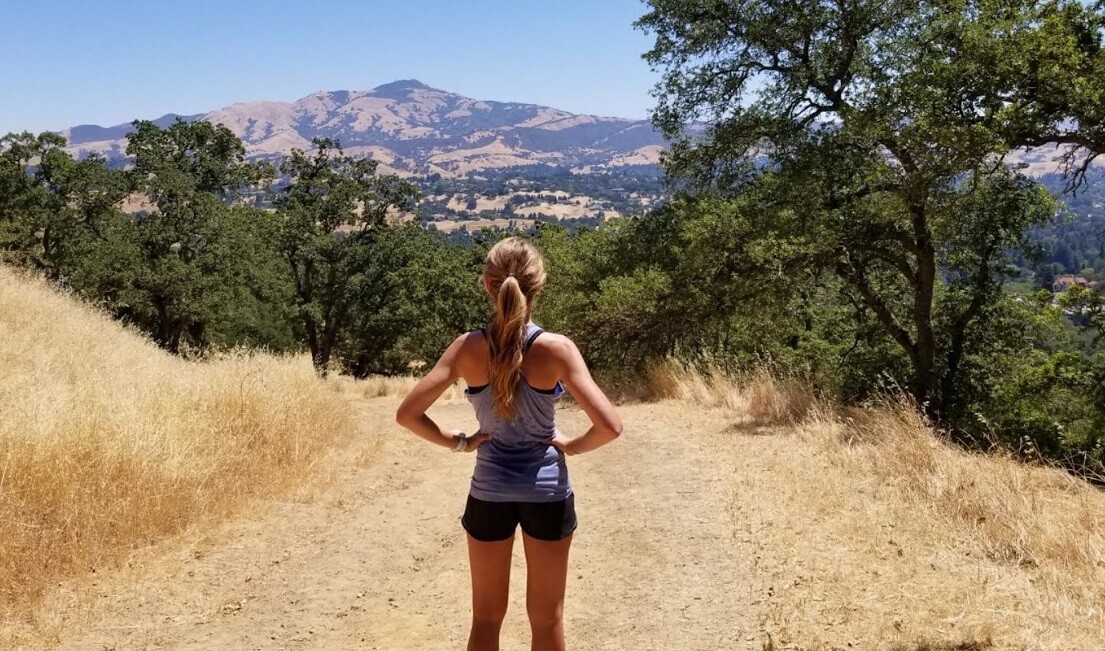
Smith points out that finding the right balance can be difficult for people who have a naturally competitive drive. Making the conscious decision to laser-focus on training in the last couple of weeks leading up to a big race is fine, but it’s easy for runners to forget that they have value outside of their performance.
Smith’s advice for runners
While running is an excellent tool for coping with stress, anxiety and depression, Smith warns that it shouldn’t be the only way runners manage their mental health. She reminds us that running is still both a physical and mental stressor, so she encourages runners to be mindful of their other needs and to prioritize them as well. She adds that if you’re struggling with your mental health, it’s important to talk to someone about it. Friends and family and mental health professionals serve different functions in this way, and she says both play key roles in supporting someone who’s struggling.
Finally, Smith reminds runners to be gentle and to have compassion for themselves. It’s easy to get caught up in negative self-talk when a run or workout goes south, and this can lead to a downward spiral in which running is doing more harm than good. In the same way, if you are struggling with your mental health, she encourages you to treat it the same way you’d treat a physical injury — with time, patience and care.
“If you sprained your ankle, you wouldn’t go out and try to run on it the next day, you’d go easy on it and wait for it to heal,” she says. “When we’re struggling with a mental health issue we don’t always have the same compassion for ourselves.”
Trail running (and running in general) has a lot of mental health benefits, and it can be an excellent tool to help you cope with the stressors of daily life. The key is to balance it with other parts of your life to ensure you maximize its benefits, rather than detracting from them.
(10/04/2021) ⚡AMPby Brittany Hambleton
2021 Beijing Marathon to be held in October after one-year suspension
The Beijing Marathon will start at 7:30 on October 31, the organizing committee confirmed on Oct 3.
About 30,000 participants will participate in the marathon, starting from the Tian'anmen Square and ending at the Olympic Forest Park. The closing time is 13:45.

Only permanent residents of Beijing who are 20 years and older (born before Dec 31, 2001) are eligible for this year's mass competition, and they need to provide valid marathon results within six hours or half marathon ones within three hours from Jan 1, 2019 to Sept 23, 2021 (online marathon results excluded) to qualify.
Runners are required to stay in Beijing since 21 days before the competition date and declare their health status online every day during the period. Green health code, negative nucleic acid test certificate within 72 hours and valid vaccination certificate are necessary to take part in the race.

The organizing committee will also invite domestic elite athletes to compete, who will be under closed-loop management until the end of the competition.
In 2020, the Beijing Marathon was suspended due to the COVID-19 pandemic.
(10/04/2021) ⚡AMPby Xinhua News
Beijing Marathon
The Beijing Marathon is an annual marathon held in Beijing, People's Republic of China. The race was first held in 1981 and has been held every year since. The race begins at Tiananmen Square and finishes at the National Olympic SportsCenter stadium. Beijing Marathon is now a full marathon only marathon race. At the 2009 edition of the race, 4897...
more...Runners from Kenya and Ethiopia dominate Košice marathon
Reuben Kerio of Kenya dominated the traditional International Peace Marathon in Košice. He won its 98th edition after completing the race in 2:07:18 hours.
He was 17 seconds shy of the race record set nine years ago by Kenyan marathon runner Lawrence Kimaiyo, who finished with a time of 2:07:01 hours. However, he still confirmed the dominance of Kenya in marathon running.

Hiribo Shano Share of Ethiopia finished second (2:07:48 hours), and third was another Kenyan, Albert Kipkosgei Kangogo (2:07:52 hours).
A record was broken among the women runners. Ayuntu Kumela Tadesse of Ethiopia completed the race in 2:24:35 hours, which is about one and a half minutes faster than the previous maximum set by her countrywoman, Sichala Kumeshi, two years ago. Kumeshi finished the race in 2:26:01 hours.

Tadesse shared the stage with two more runners from Ethiopia, who also broke the record. Maeregu Shegae Hayelom placed second (2:24:42 hours) and third was Dinknesh Mehash Tefer (2:25:00 hours), SITA reported.
The best Slovak runners were Tibor Sahajda, who placed seventh and became the Slovak champion for the third time, and Sylvia Sebestian, who ended sixth in the women’s category.
(10/04/2021) ⚡AMPkosice Peace Marathon
The Kosice Peace Marathon is the oldest European marathon.This year for the organizers of Kosice Peace Marathon is also about memories and flashbacks. One of the fastest marathon courses has been created in Košice 20 years ago on that occasion it was the 1997 IAAF World Half Marathon Champioships. Tegla Loroupe and Shem Kororia were awarded from the hands of...
more...Chelimo and Kbrom win in Valencia
World 5000m silver medallist Margaret Chelimo Kipkemboi and Norway’s Zerei Kbrom took commanding victories at the 10km Valencia Ibercaja, a World Athletics Label race, on Sunday (3) in the Mediterranean Spanish city in ideal weather for running.
The 28-year-old Chelimo moved to equal third place on the world all-time list thanks to a 29:50 clocking – though just an hour or so later she had been bumped down to equal fourth on the list, following Kalkidan Gezahegne’s world record in Geneva – while 35-year-old Kbrom managed a huge career best of 27:39.
Perfectly paced by Spain’s José Ignacio Jiménez and Kenya’s Elkana Kibet Kwambai, the women’s race kicked off at the scheduled sub-3:00-kilometre pace in the hunt for the world record of 29:43 set by Joyciline Jepkosgei in 2017. During the early stages Dorcas Kimeli, a 29:57 performer, stuck closest to the pacemakers with fellow Kenyans Chelimo, Norah Jeruto and Rosemary Wanjiru – who won in 29:50 here last year – all close by.
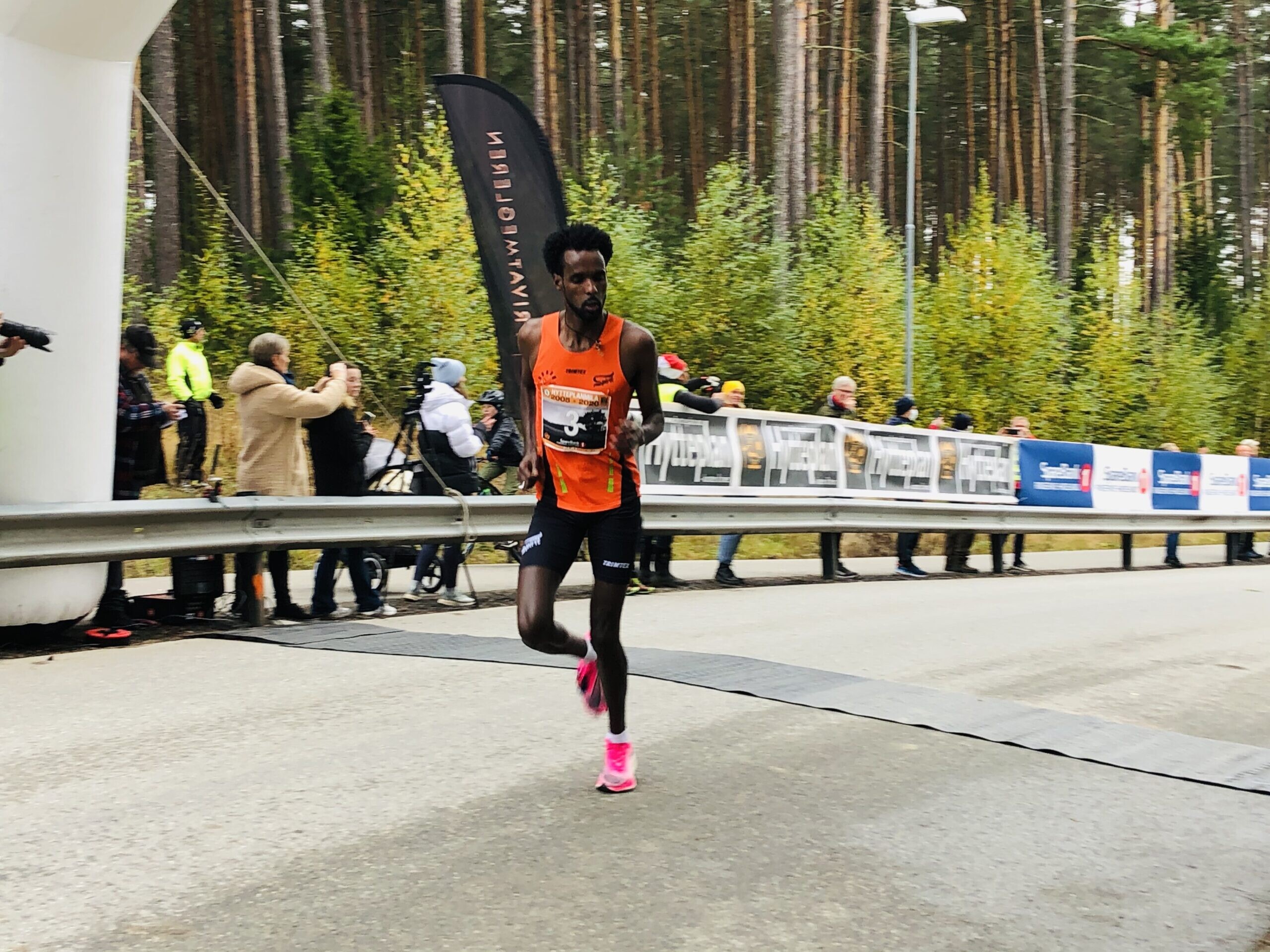
That leading group covered the early kilometres just outside the required pace to attack the world best but proved to be too quick for Kimeli and then for Wanjiru who lost ground shortly after the fourth kilometre which was reached in 11:53.
The pace stepped up in the fifth kilometre as Chelimo and Jeruto reached the half-way point in 14:48, well inside world record schedule. Shortly after, Jeruto, who turned 26 the day before, just couldn’t live with the pace and from then on the race turned into a solo run for Chelimo.
Despite being accompanied by pacemakers until the end, Chelimo was unable to maintain her speed throughout the second half and she soon drifted off world record pace. An exhausted Chelimo reached the finish in 29:50 to obliterate her previous best of 30:57 set in Bolzano last December.
Jeruto, the world leader in the steeplechase this year, finished a distant runner-up in 30:08 while Sandrafelis Chebet came from behind to complete a Kenyan podium sweep in 30:45.
“The race was good,” said Chelimo. “I missed out on the world record, but at least I bettered my career best so I’m very satisfied.”
Without any pacemakers, the men’s race opened at an even 2:45-per-kilometre pace with a lead trio comprising Collins Koros, fellow Kenyan Ronald Kipotrich Kirui and eventual winner Kbrom, who clocked 1:00.07 at the Copenhagen Half Marathon two weeks ago. The lead pack reached halfway in 13:45 before Koros broke away to open a sizeable margin on Kbrom while Kirui ran alone in third.
When everything looked set to go in Koros’s favour, Kbrom reemerged during the final kilometre to pass the Kenyan and win in a lifetime best of 27:39, improving Jakob Ingebrigtsen’s Norwegian record by 15 seconds.
Koros settled for second in 27:41 while Kirui also finished inside 28 minutes (27:56).
“I came to Valencia to break my PB and I managed to do so,” said a delighted Kbrom. “I also won the race, so I can’t ask for more. I’m grateful to my coach, manager and the organisers.”
(10/03/2021) ⚡AMP10k Valencia Ibercaja
Around the corner we have one more edition of the 10K Valencia Ibercaja, organized one more year by the C. 10K VALENCIA Athletics premiering the running season in Valencia. It is a massive urban race with more than 3,000 registered annually of 10 kilometers, where the maximum duration of the test will be 1 hour 40 minutes (100 minutes). The...
more...Sissy Lemma wins London Marathon
Ethiopia's Sisay Lemma won the men's London Marathon in a time of two hours, four minutes and one second after breaking away from the leading pack late in the race on Sunday.
In cool and dry conditions, Lemma improved on his podium finish last year to surge ahead and seize victory, bouncing back after failing to finish the Olympic marathon in Japan.
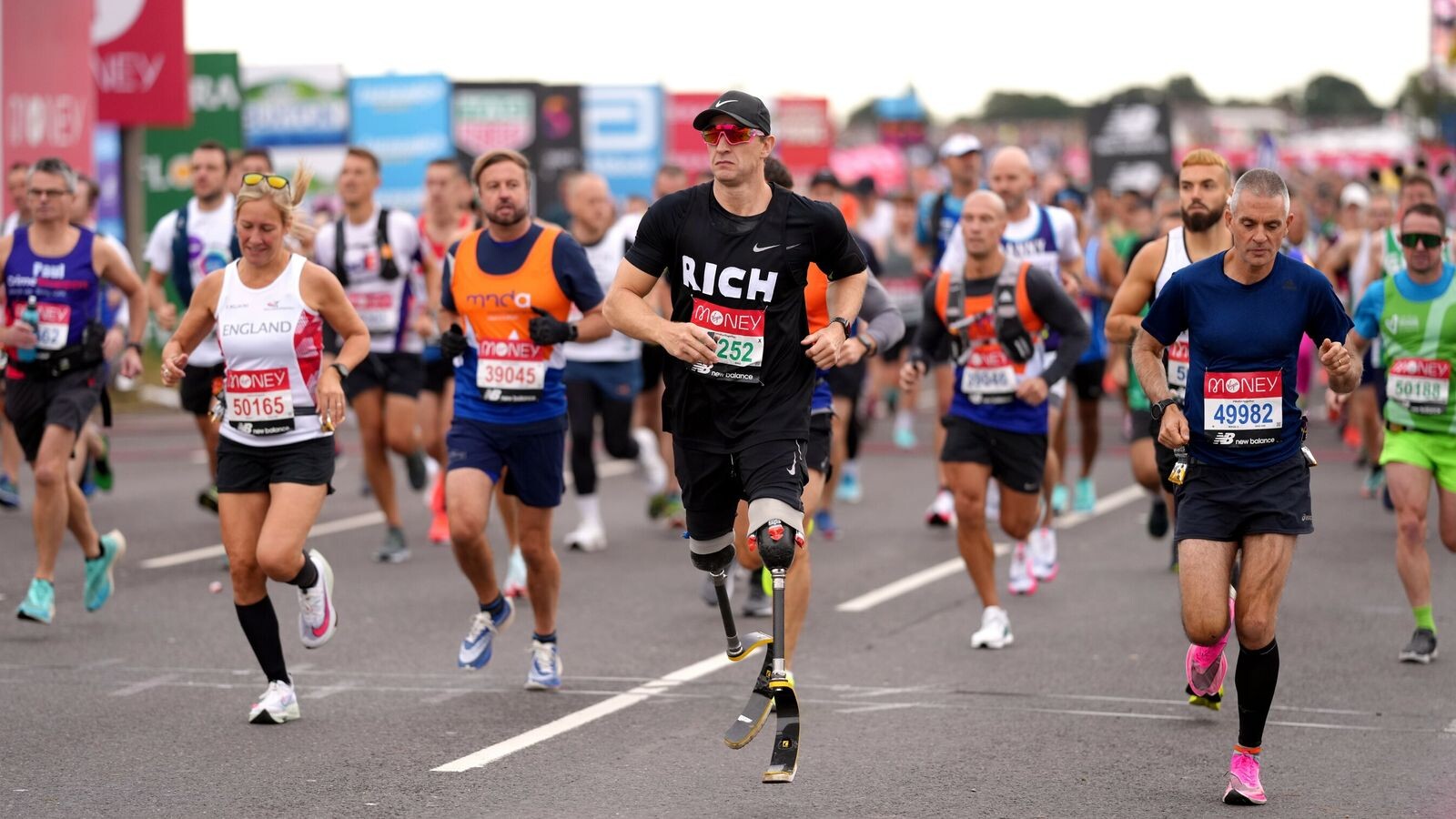
The 30-year-old crossed the line 27 seconds ahead of Kenya's Vincent Kipchumba, who took the runner-up spot for the second successive year, while his compatriot Mosinet Geremew finished third.
Defending champion Shura Kitata, who pulled out of the Olympic marathon in Tokyo after suffering in the hot and humid conditions, finished sixth in the British capital in 2:07.51 after being hampered by an apparent hamstring niggle.
Kenyan great Eliud Kipchoge, winner of four of the previous five London Marathons before 2020, was absent from this year's event, with Britain's Mo Farah also missing after failing to qualify for the Tokyo Games and suffering a stress fracture in his foot.
The marathon, which celebrated its 40th anniversary in April, returned to its traditional route from Blackheath to The Mall for the first time in over two years.
More than 36,000 competitors joined some of the world's best in the mass participation event and up to 40,000 joined in virtually, organisers said.
Only elite races took place on the course around St James's Park last year, with amateurs last competing in 2019.
Earlier, Kenya's Joyciline Jepkosgei emerged victorious in the women's race on her London debut with a time of 2:17.43, upsetting twice winner and compatriot Brigid Kosgei.
The race
Much like the women’s race, the pace started quick as six men hit halfway in 61:25. At 30k (1:27:19), the lead pack was down to five as Kenya’s Titus Ekiru, who had won the last 5 marathons he’d finished, dropped out with a limp 1:19 into the race. At 30k, the pace still projected to 2:02 high (2:02:49) but things would slow on the way home as the leaders had to battle wind gusts up to 25 mph on over the final 7 miles as the course goes from West to East after miile 19 and the wind was coming out of the SW.
Just before the clock hit 1:55, Lemma, who finished third in a 3-way sprint finish in London last year, decided he didn’t want history to repeat itself and he accelerated away from Kipchumba and Geremew to get the win. Lemma was unchallenged on the way home and was super pumped to get his first major win, totally unbothered or unaware of the fact that his waves to the crowd likely cost him $25,000 in time bonuses as London pays out $75,000 for a sub-2:04 clocking and $50,000 for a sub-2:05.
(10/03/2021) ⚡AMPTCS London Marathon
The London Marathon was first run on March 29, 1981 and has been held in the spring of every year since 2010. It is sponsored by Virgin Money and was founded by the former Olympic champion and journalist Chris Brasher and Welsh athlete John Disley. It is organized by Hugh Brasher (son of Chris) as Race Director and Nick Bitel...
more...Kenya's Joyciline Jepkosgei races to victory in women's London Marathon
If there was one lesson from the women’s race at the 2021 London Marathon on Sunday, October 3, it was that this distance can’t be bluffed, one that can’t be adequately prepared for in less than two months.
The marathon requires respect, time, and patience. Those who didn’t have that luxury during the buildup were made to pay a heavy price.
Kenya's Joyciline Jepkosgei stormed to victory in the elite women's race at this year's London Marathon on Sunday, crossing the line in an impressive two hours, 17 minutes and 43 seconds.
She held off competition from the likes of compatriot Brigid Kosgei, who was bidding to win the event for a third consecutive year but could only manage a fourth-place finish.
(10/03/2021) ⚡AMPGezahegne breaks world 10km record in Geneva
Olympic 10,000m silver medallist Kalkidan Gezahegne won The Giants Geneva 10km on Sunday (3) in 29:38, breaking the world record by five seconds.
The 30-year-old from Bahrain, contesting just the fourth road race of her career, went out fast. By the time she reached the half-way point in 14:46, she had a five-second lead over Kenyan duo Celliphine Chespol and Agnes Tirop, who last month set a women-only world record of 30:01 for the 10km distance.

Ethiopia’s Dawit Seyaum also passed through half way inside 15 minutes, but she soon started to drop back. The challenge from Chespol and Tirop also gradually faded, leaving Gezahegne with a significant lead.
Gezahegne covered the second half in 14:51, crossing the finish line in 29:38 to take five seconds off Joyciline Jepkosgei’s world record set in Prague in 2017. Tirop finished second in 30:20, eight seconds ahead of steeplechase specialist Chespol. Seyaum was further back in fourth, clocking 31:25.
In the men’s race, world half marathon record-holder Kibiwott Kandie had fellow Kenyans Felix Kipkoech and Boniface Kibiwott for company as he passed through half way in 13:28. The pace increased in the second half, which was enough to break Kibiwott, leaving Kandie and Kipkoech to duel for the top spot.
Kandie, always a strong finisher, came through to take the victory in 26:51, finishing six seconds ahead of Kipkoech. Kibiwott held on for third in 27:13. In fourth, Pietro Riva set an Italian record of 28:06.
(10/03/2021) ⚡AMPThe Giants Geneva
This race offers you a unique opportunity to appropiate the city, the asphalt, your playground, after this long months of absence, of waiting, of envy, declares Sebastien Bottari, organizer of The Giants Of Geneva. The Giants of Geneva sets itself the most demanding standards in terms of organization and safety, and from its very first edition falls within the...
more...The three biggest miths about running in the morning on an empty stomach
Running on an empty stomach – yes or no?
There are lots of different opinions on this topic. For some, it is a regular part of their training, while for others, working out on any empty stomach is out of the question. In today’s blog post, we are going to look at the three biggest myths and show you the truth behind them.
1. “WORKING OUT ON AN EMPTY STOMACH LEADS TO MUSCLE LOSS”
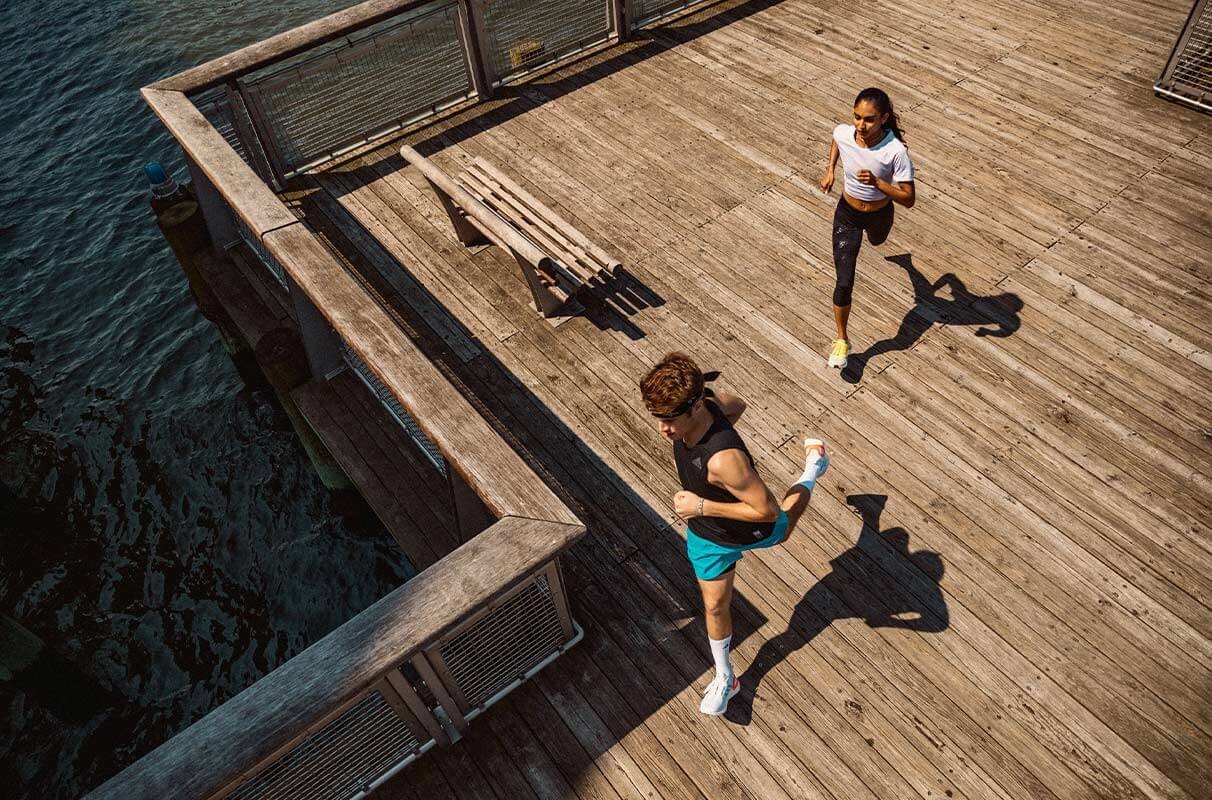
The general opinion in the gym is that working out without breakfast leads to muscle loss. But don’t worry, your muscles won’t disappear right away.
It is often wrongly assumed that without food intake, the body lacks the necessary carbohydrates and glucose (sugar) for a training session in the morning. According to this view, the body is forced to break down muscle protein to get the energy it requires.

So in other words, the body loses muscle. But this is not exactly 100% accurate: The body stores glucose in the form of glycogen (stored form of sugar) in the liver and muscles. Over the course of the night, the body’s levels of insulin (which helps cells absorb sugar and inhibits fat loss) and liver glycogen decrease. But the body still has the muscle glycogen stores. So when you start your morning run, your body initially gets its energy from the glycogen stored in your muscles.
But as your workout continues, the stores of glycogen – or simply, carbohydrates – in your muscles are virtually depleted. Therefore, your body is forced to find a different supply of energy and it increasingly resorts to free fatty acids for fuel.
If you now crank up the intensity of your workout, your body, in order to make up for the lack of glycogen and the insufficient supply of energy from fats, will also obtain the energy it needs by breaking down proteins (i.e. amino acids). Only then do you run the risk of losing muscle. However, most runners will have already stopped their workout by this point. For a massive lack of glycogen is normally accompanied by symptoms such as dizziness, weakness and fatigue.
2. “RUNNING ON AN EMPTY STOMACH IS THE BEST METHOD TO LOSE WEIGHT”
Working out on an empty stomach is often touted as the best way to burn fat and lose weight. While it is true that running on an empty stomach, if done in the right way, can eventually force your body to increasingly obtain the energy it needs from free fatty acids, this is not the decisive factor in losing weight.
The percentage of energy produced by burning fat is quite high, but the total energy expenditure (TEE) and thus calorie consumption are relatively low due to the low training intensity. In the case of a high-intensity running session, like interval training, the percentage of energy produced by burning fat is significantly lower. However, the TEE and the calorie consumption are many times higher. At the end of the day, what matters most in weight loss is the energy balance: If you burn more calories than you consume, you lose weight. Therefore, high-intensity running sessions are preferable to running on an empty stomach when it comes to losing weight.
3. “RUNNING ON AN EMPTY STOMACH INCREASES YOUR ENDURANCE”
Workouts on an empty stomach are not a good idea for leisure athletes who want to improve their performance. Training duration and intensity are severely restricted by the lack of glycogen. Therefore, the intended training stimulus is rather low. A high-quality workout lasting longer and at a higher intensity is better for increasing your performance.
Scientific studies on professional athletes have shown that very positive effects can be achieved by specific workouts with previously emptied glycogen stores. This causes your body to optimize and economize its fat metabolism. The body learns to make do longer with the glycogen stored in the muscles. However, there is no substantial evidence showing that this leads to improved race performance. At the same time, it is important to note that regular training with previously emptied glycogen stores can adversely affect your health.
Even if there are more effective methods of losing weight or improving endurance, running on an empty stomach can add some welcome variety to your training. This kind of training is particularly suited for morning people who want to get their workout in before breakfast.
SO IF YOU WANT TO RUN ON AN EMPTY STOMACH, HERE IS WHAT WE RECOMMEND:
Depending on your fitness level, your run should last between 40 and 60 minutes.
Choose a low intensity (at a recovery run or conversation pace).
You should drink a glass of water before your run.
(10/02/2021) ⚡AMPby Herwig Natmessnig
These Running Tips Will help You To Burn Fat And Lose Weight
Running is a great way to lose weight and get in shape. However, it can be hard to figure out how much you should run each week or how fast you should go. Running faster might make you feel better in the short term, but in the long run, it will slow your progress because of all the extra energy burned.
On the other hand, running slower may not help you lose weight as quickly because your body burns fewer calories with every step taken at a reduced speed; however, running for longer periods instead of faster ones. You get to burn more fat over time without risking injury. So when starting out on your journey to health and fitness through running, remember that consistency matters most. Here are some running tips you might find helpful.

Mind Your Diet
Healthy snacks are an important part of weight loss. You burn more calories when you eat protein than carbs or fat, but you also need to make sure not to go overboard on your eating habits.

You should definitely stay away from fast food and chips if you want to start losing weight. A burger or fries might contain protein, but it is also loaded with fat and carbs. Since you’re running, gaining too much weight due to the extra calories from your unhealthy snacks will slow your progress.
A healthy diet can help you lose weight faster than you might without proper nutrition. Plus, it has additional health benefits, such as lower cholesterol and blood pressure levels.
Focus On Consistency, Not Intensity
It’s easy to get caught up in the moment and push yourself as hard as you can, but this will slow your progress. You should run at a comfortable pace instead of trying to kill yourself every time you go out for a workout. That way, you can easily burn fat while running. If you really want to lose weight, you need to increase how many miles you complete each week instead of trying to improve your mile time.
Make sure you are at a pace where you can talk comfortably without feeling winded, but you are working hard enough that it is difficult. If you have not run in some time, start out slow, so your body has the chance to adjust to running before you try and push yourself too hard.
Mix Up Your Movement
You should try to change up your workout routine every so often. If you only run, you will get bored, and it will be easier to stop going on a regular basis. Try including some weight training in your routine, so your muscles have something different to do when you go out for a run.
You can also use other forms of cardio such as playing basketball or football drills, swimming laps, or riding a bike. There are even workout DVDs you can buy and follow along with at home to add some variety to your routine.
Train Smart On Your Days Off
When you are running, listen to your body. If it says that it needs a break, then take one. You should not push yourself so hard that you injure yourself or feel so tired that you want to quit before the workout is over.
Take at least one day off per week from any kind of exercise, including running, so your muscles have time to repair, and you can recover from your workout. If you want to go on a hike instead, that’s just fine as long as you’re still getting some sort of regular movement every day.
Don’t let running hold you back from losing weight or reaching your fitness goals. With these tips, it will be easier to burn fat without doing too much physical activity that injures yourself or exhausts your body.
(10/02/2021) ⚡AMPby Colorado Runner
Welsh athlete Josh Griffiths Aiming For Extraordinary World Record At London Marathon
Josh Griffiths has a number of targets at this Sunday’s Virgin Money London Marathon . . . including a world record attempt!
But the Swansea Harrier won’t be going for Eliud Kipchoge’s remarkable 2:01.39 world best for the 26.2 mile distance.

Griffiths, who will be eyeing a top British placing in the elite race, is also targeting the Guinness world record for the fastest marathon run by a father and son.
The Carmarthenshire athlete and his dad – Nick Griffiths – are hoping to challenge the record set by Tommy Hughes, who ran at the 1992 Olympics, and his son Eoin.
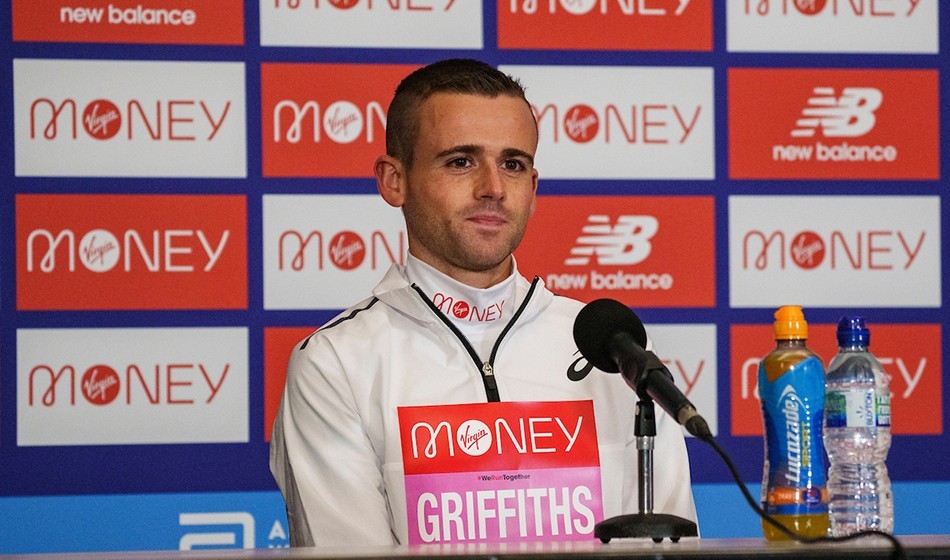
At the Frankfurt Marathon in 2019, the Irish pair ran an aggregate time of 4:59:22, which will be under serious threat on Sunday if the Griffiths boys are on top form.
Griffiths Junior’s personal best is 2:13:11 from the 2020 London Marathon where he finished third Briton home.
Griffiths Senior, meanwhile, only began running in his 40s after previously being a rugby player with the likes of Amman United and Aberavon, but clocked a PB of 2:47:17 at the age of 52 at the Cheshire Elite Marathon in April this year.
“I think if we both run a personal best or if one of us runs a PB and the other gets really close then there’s a possibility it could happen,” says Josh, who also trains his dad.
“He’s running really well for a 52-year-old. If there’s a chance we can do it, it will be pretty awesome.
“But I think if we both just focus on our own races and running well, then we’ll have half a chance,” says Josh, whose mother has also run internationally for Wales.
As much as Griffiths would love to enter the record books with his father, his main focus on Sunday will be his own performance in the men’s elite race.
The Swansea Harrier hit the headlines back in 2017 London Marathon when he emerged from the ranks of the club runners to finish as the first British athlete home.
That performance earned him a place in the Great Britain team at the World Athletics Championships in London later that year.
This time around the Carmarthenshire runner will need to improve his PB by almost two minutes to make the GB team at next year’s World Championships in Eugene, Oregon.
But the worlds aren’t the only show in town next summer, which will also see the European Athletics Championships in Germany and the Birmingham Commonwealth Games being staged in quick succession.
Griffiths already has the qualifying standard for the Commonwealth Games but also has ambitions of possibly wearing the Great Britain vest in Germany or the United States.
With next summer’s championships coming in such a quick succession, those who are eligible for all three will have to make a tough choice over which one to compete in.
Griffiths just hopes there may be a choice to make.
“Next year is a dream year for marathon runners, there’s three championships to aim for,” he said.
(10/02/2021) ⚡AMPby Owen Morgan
TCS London Marathon
The London Marathon was first run on March 29, 1981 and has been held in the spring of every year since 2010. It is sponsored by Virgin Money and was founded by the former Olympic champion and journalist Chris Brasher and Welsh athlete John Disley. It is organized by Hugh Brasher (son of Chris) as Race Director and Nick Bitel...
more...London Marathon's never-ending race towards sustainability continues
Since launching 40 years ago, the London Marathon has become firmly established as one of the world’s leading mass participation events and is embedded as an iconic occasion in the international road running calendar.
It has been the scene of several world records, most notably in 2005 when Paula Radcliffe reset the boundaries of women's endurance running by clocking 2:15:25, roared on by a packed and passionate British crowd.

Fast forward to 2021, on the eve of this Sunday’s World Athletics Elite Platinum Label event, Virgin Money London Marathon organisers have broadened their world-leading ambitions to include environmental sustainability.
“We recognise we have a responsibility as a high-profile mass participation event to set a higher standard,” says Megan Hunt, head of sustainability at London Marathon Events (LME), which also hosts 12 other hugely popular events with more than 200,000 annual participants.
This weekend alone, up to 50,000 participants will take to the London streets to tackle the classic distance, cheered on by an estimated 750,000 spectators lining the route, and a further 50,000 are expected to take part ‘virtually’ by running, jogging or walking the 42.195km distance in their own communities across the world.
By any estimate, it is a huge operation, involving massive numbers of people, and with that comes the potential for a large environmental impact. It is an obligation they take very seriously, both in terms of their events and the role they play in influencing the behaviour of hundreds of thousands of people.
‘We are in a unique position, and we can do something about it’
“Environmental sustainability is one of our company-wide objectives, it’s a really important pillar of what we do, it’s something that needs to be in the DNA of every organisation across all aspects and the LME recognises that,” says Hunt.
“As we organise mass participation events, we have a responsibility to try and reduce our environmental impact and create collective action amongst our partners and participants. We are in a unique position, and we can do something about it.”
Since 2019, the London Marathon has experimented with and activated several environmental innovations to reduce its impact. With last year’s event reduced to an elite-only field in London, 2021’s event presents a first opportunity to roll out more eco-friendly practices.
This includes printing numbers at the event registration rather than posting them in pre-race packs, which – it is estimated – will result in 1000 less numbers being printed. Following testing in 2019, this year will also see a clothing donation system in place at the start, with a charity on hand to collect all discarded clothing for re-use or recycling. At another LME event, 55% of clothing was reused and the remainder was recycled.
Plastic water bottles are an almost unavoidable feature of any mass participation event, and this is another area in which race organisers have taken big strides forward.
Every water bottle used is made from recycled material and is 100% recyclable. To support this, #DrinkDrainDrop messaging to all runners is designed to encourage the proper draining of bottles and for them to be dropped in the assigned sacks to enable a closed loop system of recycling. In addition, there will also be compostable cups used on site for sports drinks and runners are being urged to use bottle belts to reduce overall use of plastic bottles. The latter, it is estimated, can reduce the demand for water bottles by 40%.
Creating a positive conversation around environmental sustainability
For fuel emissions, organisers have also made changes to reduce carbon, switching to Hydrotreated Vegetable Oil fuel over red diesel for their power generators and deploying electric lead vehicles ahead of the elite field. When it comes to waste, a system of general waste, food and recycling will be in place to reduce litter and landfill. At the end, runners’ finisher bags are made from sugarcane, also with a lower carbon footprint.
The environmentally-friendly face of the event has been welcomed by participants. “We’ve had good feedback, we’ve had positive feedback, but we know we can do more,” says Hunt, who hopes the experience of the London Marathon has a ripple effect.
“The aim is to create a positive conversation around environmental sustainability and create behaviour change for when participants go into other running events. But we are always looking for feedback to see how we can improve and how we can do better.”
The event continues to evolve year on year, but not every environmental experiment has worked.
“We’ve been honest. We’ve trialled things and if they don’t work, that’s fine. At least we’ve tried it,” Hunt admits. “So, one example, in 2019, was capes. We picked 500 participants and the aim of those capes was to reduce discarded clothing at the start and the number of kit bags used. But we decided in the end not to continue with them because the environmental impact in the production of those capes and washing them, outweighed the waste reduction benefits.”
Organisers are conscious that the influence of the London Marathon goes well beyond Sunday and also beyond the UK, and so they take acollaborative, long-term and international view.
“We’ve been working closely with other mass participation events in the UK and also our Abbott World Marathon Majors partners to share learnings and create best practice, so the behaviour change and good environmental behaviours are taken at all events. With environmental sustainability and climate action, working together and working collaboratively is the way you will gain positive change. I think everyone recognises that you can’t do it alone,” she says.
As well as working with their partners at the Berlin, Tokyo, Boston, Chicago and New York marathons on environmental sustainability, London organisers are also seeking to make a difference in the home countries of their elite athletes.
“We wanted to support projects that had a link with where our elite athletes are from. A lot of the elite athletes are positive and endorse taking climate action. So, one of the things we are trying to do is invest in carbon balancing and carbon offsets and those projects will be based in Kenya. One example is community reforestation in Kenya,” reveals Hunt.
As for the future, Hunt is ultra-keen for London to continue to be a leader in environmental innovation and for improvement year on year. “One big area that we want to do is reduce the emissions from our own operations (aside from the events),” she says. “Being able to decarbonise those and switch to renewable forms of power and electrifying our fleet (of vehicles). Waste is another key area, so transitioning and increasing the amount of circularity in our products too.”
When it comes to climate action, London Marathon is in it for the long run.
(10/02/2021) ⚡AMPby World Athletics
Steve Prefontaine bib sells for $27,000US
A few weeks ago, Steve Prefontaine’s NCAA-winning race bib from the 1970 NCAA cross country championship was up for sale on Lelands Auctions. On Sept. 27 the bib sold for just under USD $27,000.
The bidding opened at the end of August, starting at $5,000. The first bid of USD $5,500 came on Sept. 20. Several bidders went back and forth over the last couple of days to escalate the price over USD $20,000.

Prefontaine is a running hero to many. He set every American record from 2,000m to 10,000m in the early 70s, before dying in a car accident at the age of 24. His achievements helped ignite the running boom of the 1970s. His three and six-mile records set at the University of Oregon still stand today.
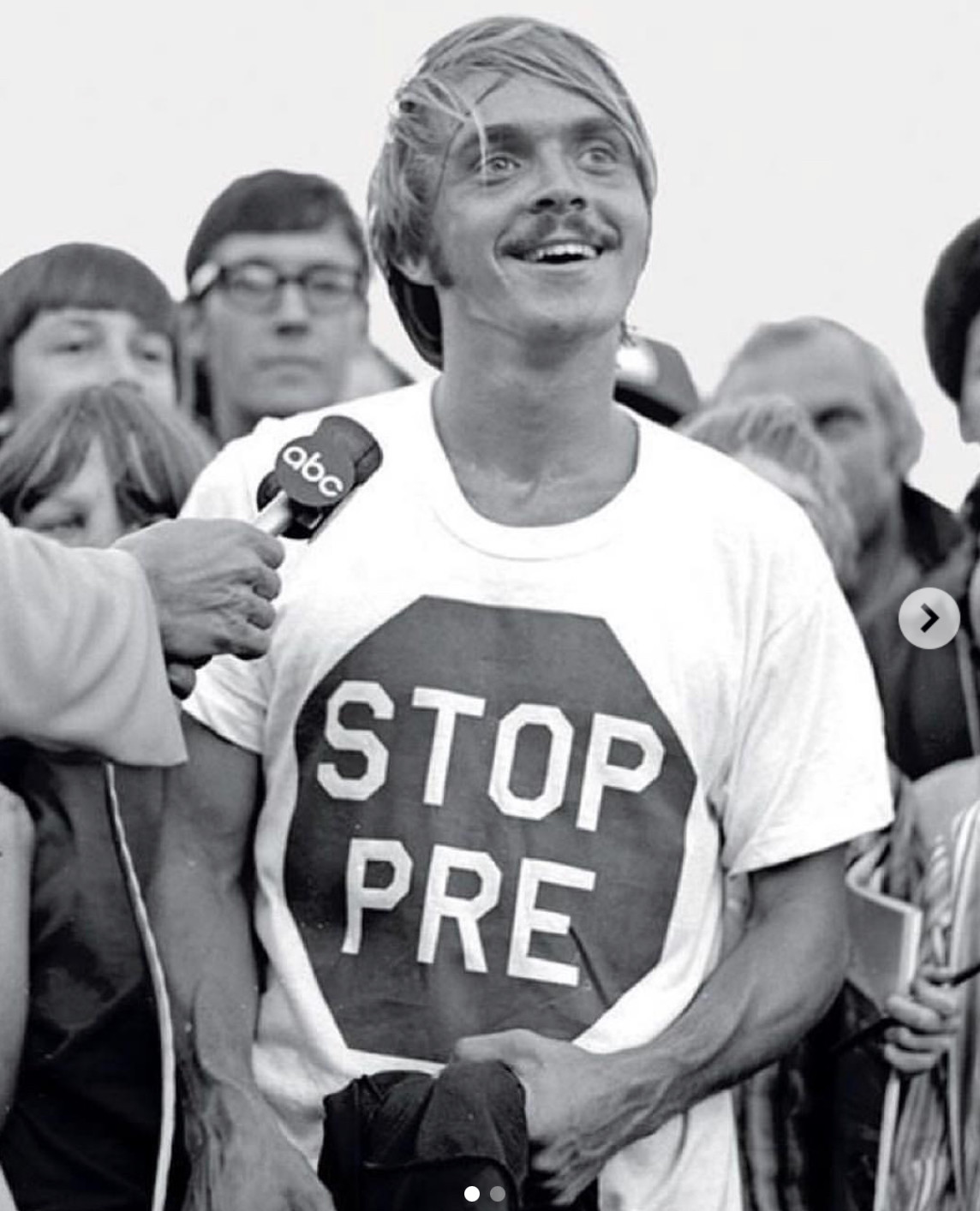
The bib sold is from a cross-country meet on Nov. 23, 1970, at the College of William & Mary in Williamsburg, Va. Bill Dellinger, the coach of Oregon’s track program in the ’70s, gave the bib to a young athlete who was starstruck went he saw Prefontaine but was too shy to ask him to sign it.
“On the back of the bib, our consignor wrote ‘Steve Prefontaine’s number won in 1970 NCAA cross Country Championships held at William & Mary, which he won in record time,’” the Lelands lot description reads.
“On December 1st, just over a week after the race, Prefontaine replied to our consignor with a handwritten letter stating: ‘I slightly remember you standing there with the red cap on you should have said something. I’m glad you found some use for that no. 506, and I hope I can live up to yours and everybody else expectations of me.’”
The winner of the auction will now get to hold on to a unique piece of running history. The bib is a memory of one of the greatest American distance runners ever. Each year, his career and life are celebrated at the Prefontaine Classic, a world-class track event held in Eugene, Ore., in his honor.
(10/01/2021) ⚡AMP
by Running Magazine
2021 Reggae Marathon goes virtual
The Reggae Marathon organisers have opted to present a virtual run again for 2021 with the mass event cancelled.
The virtual race will take place during November 13 – December 5. All runners are encouraged to recreate the Reggae Marathon vibe wherever they are located.

Last year Reggae Marathon successfully staged its first virtual race with over 500 participants from about 30 countries.

There are a number of 2021 local and international participants, who have already booked travel and accommodations for Negril.
They are being encouraged to use the Reggae Marathon Course along Norman Manley Boulevard which will be available for individual runners November 13– December 5 to establish their personal Reggae Marathon experience.
(10/01/2021) ⚡AMPby AIMS
Reggae Marathon
The Reggae Marathon & Half Marathon is Jamaica’s premier International Marathon Event. Marathoners, sports enthusiasts as well as beginners, converge in Negril, Jamaica’s capital of casual, for a fun event characterized by good vibes and lots of Reggae music. Enthusiastic supporters come out along the looped, internationally certified course to support participants. Meanwhile, hard working volunteers offer uniquely packaged water...
more...Tamirat Tola, Leul Gebresilase and Laban Korir will be targeting course record in Amsterdam
The TCS Amsterdam Marathon course record of 2:04:06 is expected to come under threat on October 17, when Tamirat Tola, Leul Gebresilase, Laban Korir and Jonathan Korir line up for the World Athletics Elite Platinum Label road race.
Tola’s PB, set in Dubai in 2018, is equal to the Amsterdam course record. The Ethiopian earned Olympic bronze over 10,000m in 2016 and world silver in the marathon in 2017, having won the Dubai Marathon earlier that year in 2:04:11.
His compatriot Gebresilase has the fastest PB of the field. The 29-year-old Ethiopian clocked 2:04:02 on his debut at the distance in Dubai three years ago to finish second, four seconds ahead of Tola. He followed it later in the year with a 2:04:31 victory in Valencia. He equalled his Valencia time earlier this year at the Milan Marathon.

Laban Korir has competed at the TCS Amsterdam Marathon four times. The 35-year-old, who is a training partner of Eliud Kipchoge, made his marathon debut in the Dutch city back in 2011, clocking 2:06:05 to place second. He improved on that when he returned to Amsterdam in 2016, finishing fourth in 2:05:54. Winner of the 2014 Toronto Marathon, Korir represented Kenya at the 2019 World Championships, where he finished 11th.
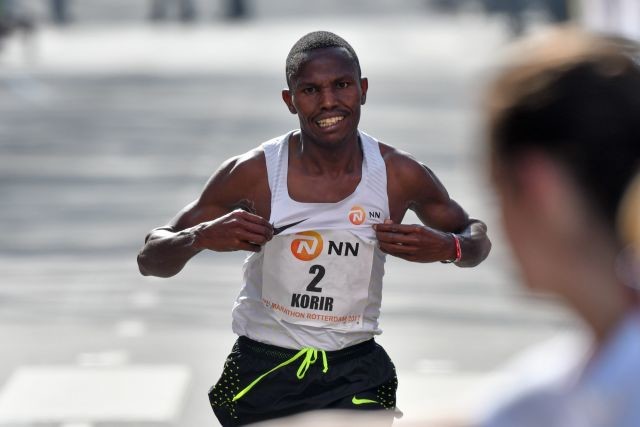
Jonathan Korir, another friend and training partner of Kipchoge’s, will also be returning to Amsterdam. He set a PB of 2:06:51 during his last outing at this race, which he went on to improve in Berlin in 2019 (2:06:45) and then in Enschede earlier this year (2:06:40).
When Lawrence Cherono set his course record of 2:04:06 in 2018, it made the Amsterdam Marathon the fastest marathon in the Netherlands. At the most recent edition in 2019, more than 45,000 participants from 140 countries took part. A large mass turn-out is also expected for this year’s race.
(10/01/2021) ⚡AMPby World Athletics
TCS Amsterdam Marathon
Do you want to enjoy Amsterdam in October and all that the city has to offer you? Want to feel a real athlete and start and finish in the historic Olympic stadium? Or run across the widely discussed passage under the beautiful National Museum? Then come to Amsterdam for the annual TCS Amsterdam Marathon in October! The TCS Amsterdam Marathon...
more...Best sports to complement your running
No doubt you’re into running, but what about other activities? Even among enthusiasts, there’s always room for more. If you are looking for some new additions to your workout routine that have nothing to do with running, you’re in the right place!
When we say these activities have nothing to do with running, that isn’t strictly true. These sports can benefit how you run by targeting specific muscles that ultimately complement your training as a runner. With that in mind, let’s get into it!
Golf
Though far less intense than running, golfing can provide profound benefits alongside your routine. Hauling your Stitch golf bag across the course is a great way to build your stamina on days when you don’t want to over-exert yourself. It works your arms, chest, and legs, which are all integral to running too. This slower-paced sport could be your new favorite.
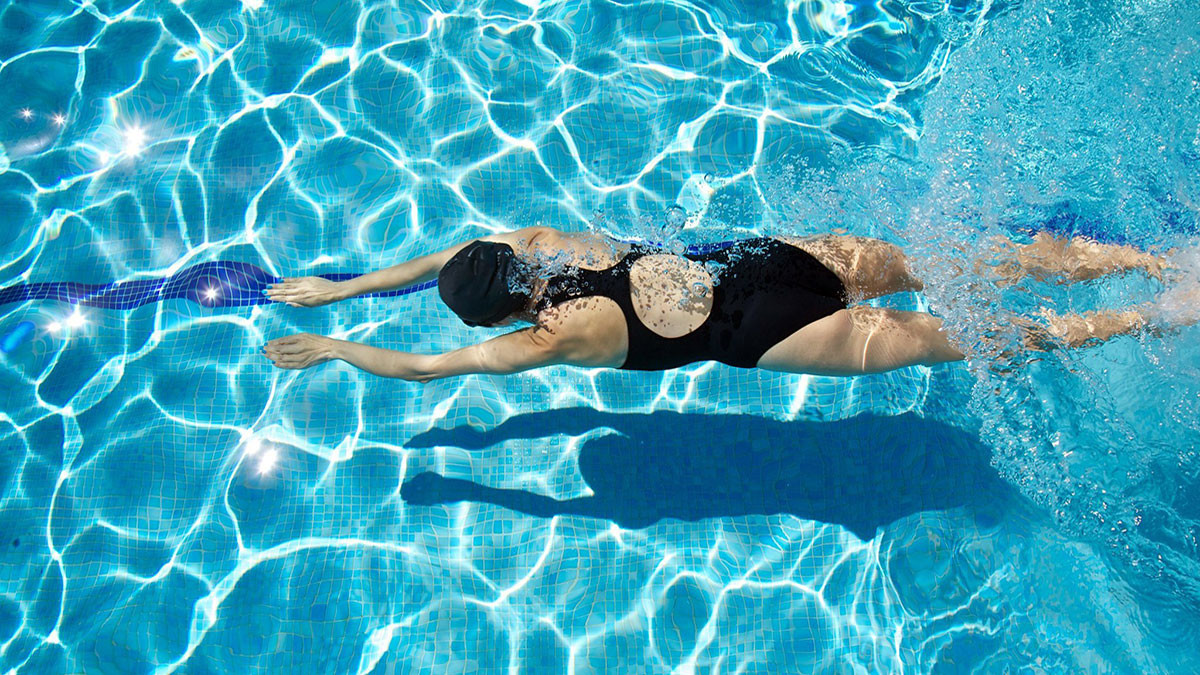
Cycling
If you are looking for something a little more intense than golf but still different from running, cycling could be a great option. The leg movements involved mimic the movements made while running, working all the same muscles, but without the stress of pounding the ground. You can still receive all the cardio benefits without overdoing it each week.
Swimming
There is no doubt that swimming is a great habit. It works all of your core muscle groups but is easy on your body because it is low-impact. Similar to running, swimming is great for heart and lung health, especially when it comes to stamina. If you incorporate swimming into your routine alongside running, you can a whole-body workout.

Tennis
As far as competitive sports go, few are as potentially intense as tennis (or as popular!). It’s fast-paced and requires expert attention to form to prevent injury. How does this benefit your running? Well, running between shots is ample practice, but there is far less impact than continuous running. It’s also a different activity, so if you’re looking for a change, look no further!
Weight Lifting
If you want to improve your overall form, weight lifting is the perfect way to do it. It’s also a great way to take a break from cardio while still benefiting your health. You have total control over which muscle groups you choose to target between routines, but strengthening your core and hamstrings is a great way to improve your running.
Why Do Anything Besides Run?
There are numerous reasons why you should adopt another activity alongside running. One of the big ones is sheer boredom. Even as a runner, doing the same thing repeatedly can get old fast, and nothing kills motivation like repetition.
Additionally, strengthening various parts of your body will improve your performance when running too! These activities don’t exist in a vacuum. Practicing other sports will ultimately benefit your running abilities, especially when it comes to your stamina.
Diversify Your Routine!
If you feel a little stuck and you aren’t sure how to break out of your slump, take on a new activity! You should never push yourself too far, as that is how you end up with an injury, but diversifying your routine is a great way to break through a block and take your health to the next level.
(10/01/2021) ⚡AMPby Colorado Runner
Kenyan Titus Ekiru is eager to make grand entry to big stage
Milano Marathon champion Titus Ekiru is among athletes to watch on Sunday during this years’ edition of the London Marathon.
Ekiru has been training in Kapsabet, Nandi County at the Stanley Biwott Nike camp and wants to lower his personal best time of 2 hours, 02 minutes and 57 seconds.
In May this year, Ekiru posted one of the fastest times this season after winning Milano Marathon in 2:02:57 improving his own course record he set in 2019 of 2:04:46.
But he wants to lower it further if the weather conditions allow on Sunday in his World Marathon Majors debut in London.

Ekiru improved the Milano course record he set in 2019 of 2:04:46 by one minute and 49 seconds, becoming the fifth fastest marathoner of all time alongside compatriot Denis Kimetto. His time went into the records as the fastest marathon ever run on Italian soil.
He will be the third fastest in the elite field on Sunday behind Ethiopia’s Birhanu Legese who has a personal best time of 2:02:48 and Mosinet Geremew whose personal best time is 2:02:55.
He will be teaming up with compatriots Valencia Marathon champion Evans Chebet and Vincent Kipchumba who was second last year in London.

“After my good performance in Milano, I went straight to camp to continue with my training programme because I knew there were many upcoming races I could participate in. It has been four months of vigorous preparations and I just want to run a good race,” said Ekiru who is under Rosa Associati Company.
Ekiru said that he had high hopes of participating in the Olympic Games but a nagging knee injury locked him out.
"It’s sad the knee injury I was nursing in 2020 locked me out of many events and thus missing out on the Olympics slot but I’m happy my season has begun well. My focus now is to do well in the race as I look forward to next year's World Championships in Eugene, USA,” said the 29-year-old Ekiru.
Ekiru’s career took shape in 2016 when he finished second at Casablanca Marathon in Morocco clocking 2:15:43 before winning the 2017 Seville Marathon in Seville, Spain in 2:07:42. He later emerged fourth in the Honolulu Marathon that year.
In 2018, he won the Honolulu Marathon in a time of 2:09:01 and the half marathon event of the Rock 'n' Roll San Diego Half Marathon clocking 1:01:02. He also won Mexico City Marathon in a new course record of 2:10:38.
In 2019, Ekiru won the Milano City Marathon and set a new course record of 2:04:46.
He also won the Portugal Half Marathon in 2019 and set a new course record of 1:00:12.
Later in December that year, he defended his Honolulu Marathon title in a new course record of 2:07:59.
In 2021, he won the Milano City Marathon in a new course record of 2:02:57 and is now looking forward to improving it as he focuses on running the fastest time in the world.
The world record is currently held by Eliud Kipchoge after clocking 2:01:39 in 2018 Berlin Marathon.
(10/01/2021) ⚡AMPby Bernard Rotich
TCS London Marathon
The London Marathon was first run on March 29, 1981 and has been held in the spring of every year since 2010. It is sponsored by Virgin Money and was founded by the former Olympic champion and journalist Chris Brasher and Welsh athlete John Disley. It is organized by Hugh Brasher (son of Chris) as Race Director and Nick Bitel...
more...2022 Nagoya Women’s Marathon will be offering US$250,000 as prize money for the winner
Organizers of the Nagoya Women’s Marathon have announced they will increase the prize money for the 2022 race, scheduled for March 13, 2022, to US$250,000, making the World Athletics Elite Platinum Label road race the highest prize paying marathon in the world.
Being the world’s largest women’s marathon, one of the world’s top-level races, and the only women’s race with a World Athletics Platinum Label, the Nagoya Women’s Marathon continues to be a global leader in women’s running.
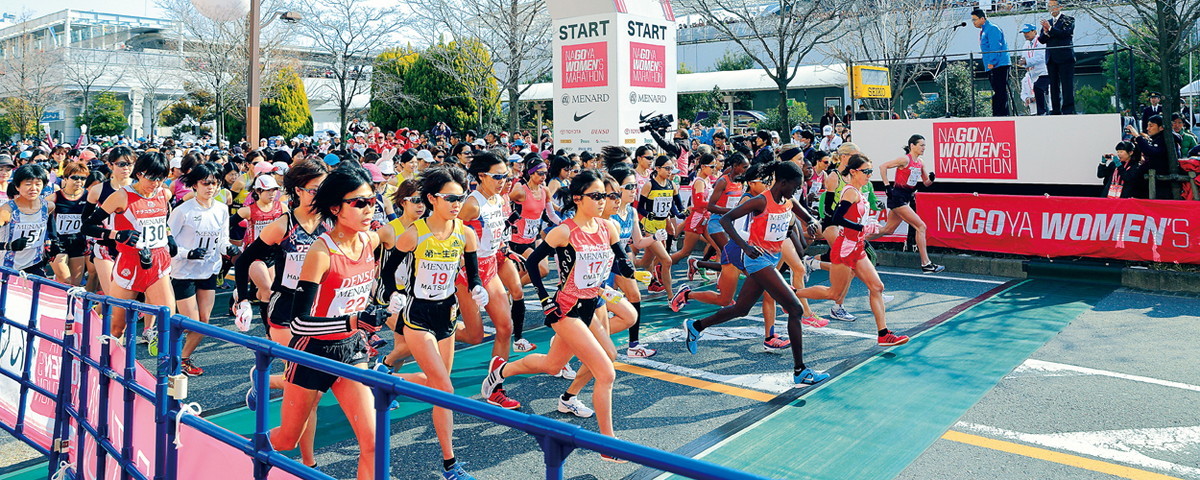
This year’s edition went ahead on 14 March as a domestic race, and it was won by Japan’s Mizuki Matsuda in 2:21:51. Compatriot Mao Ichiyama won the 2020 edition in a course record of 2:20:29 and she went on to place eighth in the Olympic marathon, making her the top Japanese finisher in Sapporo.
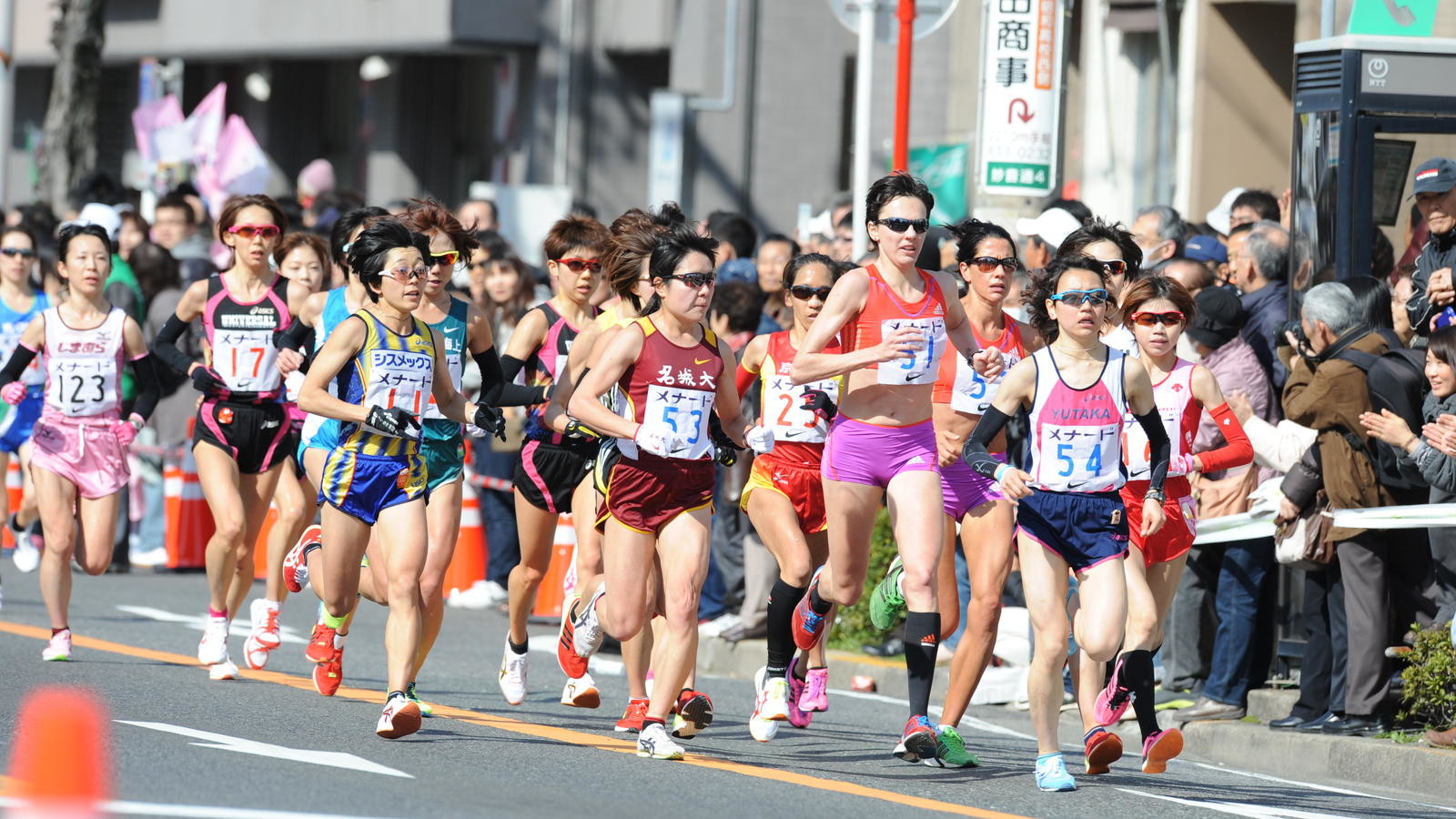
Other past winners of the race include 2000 Olympic champion Naoko Takahashi, 2004 Olympic champion Mizuki Noguchi and world bronze medalist Helalia Johannes.
Nagoya’s increase in prize money is welcome news to the world of road running. Since the start of the Covid-19 pandemic in 2020, many road races have been forced to be cancelled or postponed and athletes’ competing opportunities have been lost. But thanks to the dedication of organizing committees and medical professionals around the world, large-scale road races are slowly returning to the international calendar.
(10/01/2021) ⚡AMPby World Athletics
Nagoya Women's Marathon
The Nagoya Women's Marathon named Nagoya International Women's Marathon until the 2010 race, is an annual marathon race for female runners over the classic distance of 42 km and 195 metres, held in Nagoya, Japan in early March every year. It holds IAAF Gold Label road race status. It began in 1980 as an annual 20-kilometre road race held in...
more...Orange Comunications to sponsor public marathon at Paris 2024
Telecommunications operator Orange is to sponsor the mass-participation marathon at the Paris 2024, where the general public will be able to run an Olympic marathon course on the same day as elite athletes for the first time.
Orange was announced as the third premier partner of Paris 2024 last year, after linking up with the Games in 2016.
The company will now sponsor the mass-participation marathon due to be staged on the Olympic course on the same day as the elite Olympic race, it was announced by Orange chief executive Stéphane Richard at a conference at the Café de l'Homme in Paris.

"Orange has joined the Paris 2024 Olympic adventure with a desire to give as many people as possible all the emotions of this historic event," Richard said.
"By becoming a sponsor of the Marathon For All, we want to give all the athletes the possibility to become part of these Games and achieve their dream."

Paris 2024 President Tony Estanguet said: "Two years ago, we announced a brand new marathon in the history of the Olympic and Paralympic Games: to enable amateur sportspeople to run in the footsteps of the Paris 2024 Olympic athletes, along the same route, on the same day and under the same conditions.
"We’re delighted that our partner Orange is accompanying us on this wonderful 42 kilometers adventure!
"We’ll soon be seeing you for an exceptional first experience."
Orange communications and engagement executive director Béatrice Mandine said the mass-participation event gives "more visibility to the Orange brand."
"We worked with the Paris 2024 teams to find the best options for Orange," Madine added.
"And here we are, we are the first, and perhaps not the last, partner of the marathon for all.
"As a sponsor, we offer the general public the opportunity to participate in the legendary event of the Olympic Games."
Orange has also signed partnerships with five major races - Marseille-Cassis, the Paris Marathon and Paris Half Marathon, the Mont Saint-Michel Marathon and Run in Lyon.
The Paris 2024 Olympics are set to begin on July 26 and close on August 11.
The men's marathon is traditionally held on the final day of the Olympics.
(09/30/2021) ⚡AMPby Andrew Dowdeswell
Paris 2024 Olympic Games
For this historic event, the City of Light is thinking big! Visitors will be able to watch events at top sporting venues in Paris and the Paris region, as well as at emblematic monuments in the capital visited by several millions of tourists each year. The promise of exceptional moments to experience in an exceptional setting! A great way to...
more...Baxters Loch Ness marathon will take place this weekend after two years of delays due to pandemic
On Sunday October 3, the popular running event will finally return after two years of delays due to coronavirus. The event hosts the Baxters Loch Ness marathon, Baxters river ness 10k and corporate 10, and the river ness 5k run.
Almost 5000 people have signed up for the marathon this year - with 45.7 per-cent of those being from outside Scotland.
The weekend will host the Event Village at Bught park which has a sports expo, pipers and street food stalls for participants and spectators to enjoy.

The marathon route runs along Loch Ness, starting between Fort Augustus and Whitebridge, then moving along the south eastern shores of the loch to the river ness for the finish line in Inverness.
Event & Race Director, Malcolm Sutherland, said “We are so excited to finally welcome back runners to Baxters Loch Ness Marathon & Festival of Running!

“Of course, we have thorough Covid safety measures in place following Scottish Government guidelines. A Covid guide and an information video have now been sent to all participants and we appreciate everyone’s support in adhering to this guidance.”
Baxters are excited about the return of their event and wish all the participants luck for the weekend.
Road closures will be in place on Sunday between 7am and 4:30pm. All attendees are encouraged to be dropped off, or use recommendednded parking areas provided online.
(09/30/2021) ⚡AMPby Imogen james
Baxters Loch Ness Marathon
The Loch Ness Marathon is an annual marathon race in Scotland, held along the famous loch, Loch Ness, ending in Inverness. The event is part of the Festival of Running, held annually at the beginning of October. This also includes a 10K race and a 5K fun run, and attracts over 8,000 participants across all of the events. The Baxters...
more...How to prevent and manage muscle injuries
The end-of-year marathon season is nearly upon us. Call me biased but I do love the marathon!
This year it is more packed than ever, with several iconic races, including the London, Paris and Boston marathons, having been rescheduled from earlier in the year due to the pandemic. But along with being a unique and exhilarating challenge, the marathon also brings with it the risk of injuries.
I imagine there are a few runners out there preparing for one of the forthcoming marathons who are nursing injuries. This week I’m looking at muscle injuries – very common but thankfully often easier to resolve than other types of injuries.

If you stop and think about how muscles, directed by our brains, make our skeletons move, it is truly incredible. A large number of muscles, all with different jobs, contracting and relaxing in a finely coordinated sequence to make us run, swim, dance, eat, or perform any other movement – how does it all happen?!
Our muscles serve us well all our lives, but sometimes things do go wrong, and looking after them is well worth it.
Stiffness and soreness are perhaps the most common muscle problems for endurance runners. Working muscles to excess, or in an unusual way, will often make them complain afterwards. Running on hilly terrain if you’re used to flat surfaces, or training on a track in spikes for the first time in a while, may well cause soreness. If you’ve ever seen someone walking backwards down a set of stairs, chances are they ran a marathon the day before and their quads are very cross about it!

Delayed onset muscle soreness, or DOMS for short, is a classic symptom of hard training or racing which typically appears two days, rather than one day, after a big exertion. Muscle tears of varying degrees of seriousness can happen when muscles are loaded beyond their limits.
So what can you do to prevent and resolve muscle injuries?
My top tip, as with all injuries, is good, thorough self-care. A comprehensive warm-up and cool-down are essential for all training sessions.
Massage, foam rolling and compression are all useful activities which encourage muscles to function well and recover rapidly.
Applying creams or gels to the skin which have, for example, anti-inflammatory properties, can help too. Thankfully, muscles have a good blood supply relative to some other soft tissues such as tendons, so the repair process can happen more quickly.
Hot and cold contrast bathing will encourage circulation to an injured muscle and further accelerate recovery. Icing, too, immediately after an acute muscle injury, will help to relieve inflammation.
As with all injuries, common sense is very helpful with resolving them, but if necessary, always seek professional medical help with diagnosis and treatment.
As I explained in my article on managing injuries, prevention is always the best approach, and for me that means strength training. Strong, robust and fully functioning muscles will be better able to cope with the running demands you expect of them. As we age, this becomes ever more important.
If you are preparing for an upcoming marathon and haven’t yet tried any strength training, perhaps set yourself a goal, for after the marathon, of giving it a try. My strength and conditioning for beginners article gives some tips on where to start.
(09/30/2021) ⚡AMPby Mara Yamauchi For World Athletics
Kenyan Brigid Kosgei is confident of winning third straight London Marathon
World record-holder feels fit and ready for a tilt at the hat-trick on Sunday despite tight turnaround since the Olympics
Eight weeks after winning a silver medal in the Olympic marathon, Brigid Kosgei will attempt to win her third successive women’s title at the Virgin Money London Marathon on Sunday.

From the heat and humidity of Sapporo in Japan in early August, the 27-year-old from Kenya is likely to face considerably cooler and damper conditions in the British capital. More of a worry, though, is whether she has recovered and rediscovered sufficient fitness given the short turnaround since the Games, where she finished runner-up to fellow Kenyan Peres Jepchirchir.
“My body was very tired after the Olympics but I did a lot of preparation to correct this and now I have come to London to do my best,” said Kosgei, who took only a couple of days off after her marathon at the Games before getting back into training.

On claiming a hat-trick of titles in London this weekend, Kosgei added: “I love London so I would really like to do that here. I am ready as I have prepared well as I want to defend my title.”
Mary Keitany, who retired a few days ago, won London three times in recent years – the latter with a women-only world record of 2:17:01. This is a natural target for Kosgei, who holds the outright women’s world record with 2:14:04 from Chicago in 2019.
Paula Radcliffe also won three London Marathon titles, but the last woman to win three consecutive crowns is Katrin Dörre of Germany, who took victories from 1992 to 1994.
Kosgei won her first London crown two years ago in 2:18:20 but then returned last year during to win an elite- only race in St James’s Park in cool and damp conditions in 2:18:58.
Which course does Kosgei prefer? The traditional one that skirts around the entire city or the looped course from last year?
“I do not really like running lots of laps,” she smiled. “It made me feel dizzy.”
And the weather? “Better London than Tokyo,” she said. “I did not run my best in the Olympics.”
Jepkosgei is the reigning New York City Marathon champion while Dibaba is a two-time winner in the Tokyo Marathon and they all looked confident of cracking the 2:20 barrier on Sunday – the kind of time which will almost certainly be required to win.
“I wish my best to my colleagues and let the best athlete win,” said Kosgei. “Everyone wants to be in the top three and I just hope to do my best.”
(09/30/2021) ⚡AMPby Jason Henderson
TCS London Marathon
The London Marathon was first run on March 29, 1981 and has been held in the spring of every year since 2010. It is sponsored by Virgin Money and was founded by the former Olympic champion and journalist Chris Brasher and Welsh athlete John Disley. It is organized by Hugh Brasher (son of Chris) as Race Director and Nick Bitel...
more...ADNOC Abu Dhabi Marathon 2021 now extended to family members aged 6 to 70
All family members aged six to 70 years old are now permitted to participate in the ADNOC Abu Dhabi Marathon on 26th November, with organizers Abu Dhabi Sports Council (ADSC), and race title sponsor, the Abu Dhabi National Oil Company (ADNOC) today confirming the newly expanded age categories.
Oragnisers said the much awaited and one of the most popular fixtures of the Abu Dhabi sporting calendar is back bigger and better for a third edition. With the expanded age categories, families are encouraged to participate in the 2.5KM or 5KM runs. There is of course the more challenging 10KM, full 42.2KM marathon races and new for 2021, the Marathon Relay for teams of two. Whatever the distance, all participants will run along the picturesque corniche of the UAE’s iconic capital as part of a special day out.

Whether participants run or walk the 2.5KM, 5KM and 10KM races of the ADNOC Abu Dhabi Marathon 2021, all runners will start at 18th Street then head out along the Corniche and loop around Qasr Al Hosn, one of Abu Dhabi’s oldest and most beautiful historical stone buildings. Runners will then pass the Emirates Heritage Village, home to one of the tallest flagpoles in the world, before making their way behind Marina Mall and up and down King Abdulla Street, before returning to the Corniche for a final loop of Qasr Al Hosn.
ADSC continues to prioritize the health and welfare of all participants and spectators in coordination with the relevant government agencies to ensure a successful and safe event. The marathon will take place with robust safety precautions in place, requiring participants over 16 years old to show proof of a full COVID-19 vaccination and a negative PCR test taken within 48 hours of the event. Those under 16 years old will need to show a negative PCR test taken within 48 hours of the event.
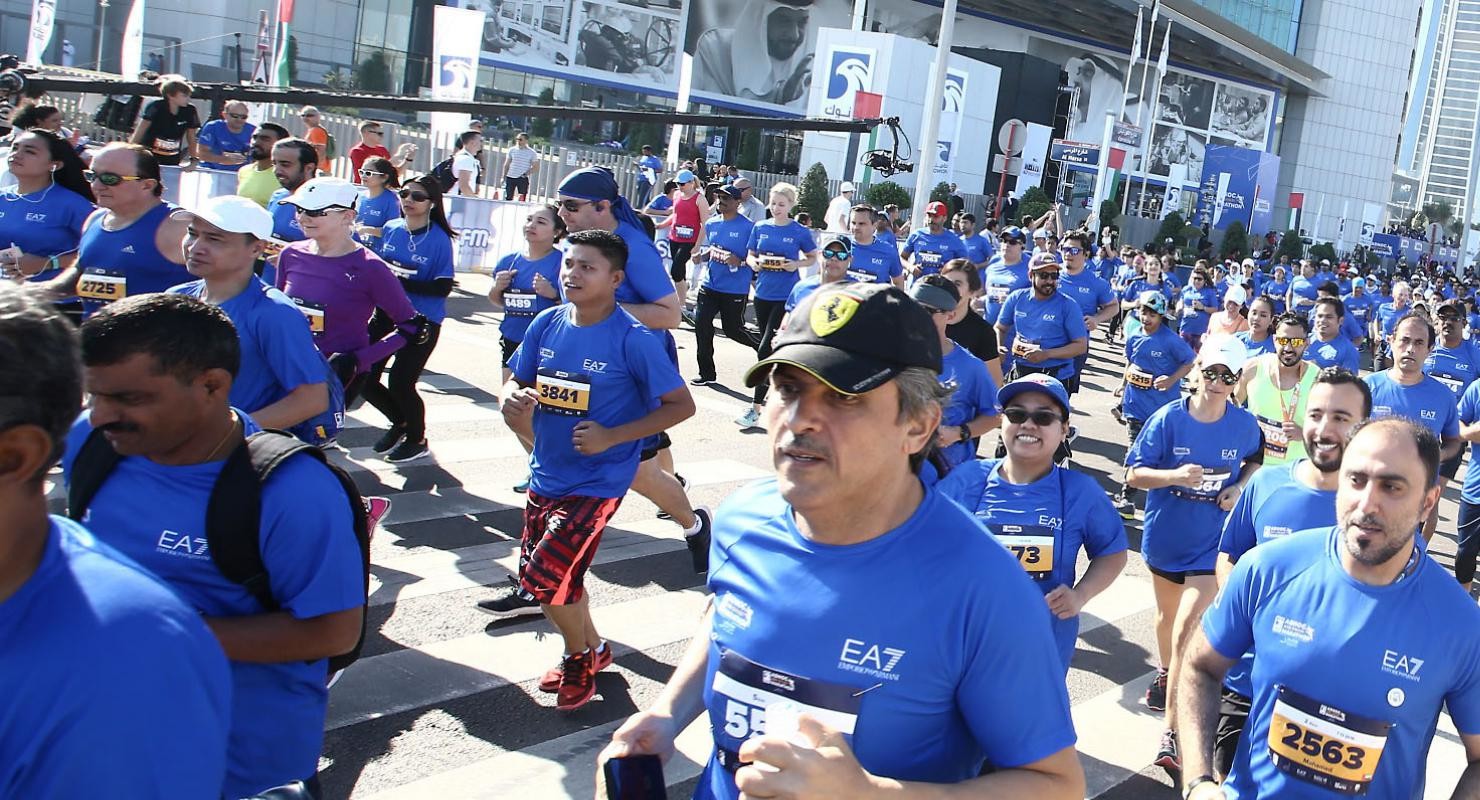
Runners who registered to take part in the 2020 event shall be automatically registered for the 2021 event, at no additional cost. No further action will be required and runners will be contacted to confirm their participation.
With limited slots available and already over 4,000 registered participants, runners are encouraged to sign up at the earliest for any of the available entries across all categories, including the Marathon (AED 350), Marathon Relay – Teams of 2 (AED 550), 10KM (AED 150), 5KM (AED 75) and 2.5KM (not-timed, AED 50). To register, please visit:https://www.adnocabudhabimarathon.com/register-now/.
(09/29/2021) ⚡AMPby Hassan Bashir
ADNOC Abu Dhabi Marathon
The Abu Dhabi Marathon is shaping up to being first class marathon for both elite runners and average runners as well. Take in the finest aspects of Abu Dhabi's heritage, modern landmarks and the waters of the Arabian Gulf, at this world-class athletics event, set against the backdrop of the Capital's stunning architecture.The race offered runners of all abilities the...
more...Bank of America Chicago Marathon has unveiled its 2021 medal race, marking its return to city streets
The Bank of America Chicago Marathon unveiled its 2021 medal for race finishers, marking its return to city streets with a nod to history after turning virtual during the coronavirus pandemic.
The medal features an image of the city's skyline with the four stars of the Chicago flag on it.
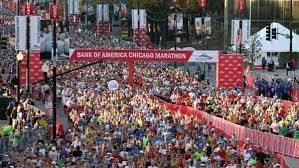
"The four stars on the Chicago flag each represent an important moment in the city’s history, and this medal will represent the return to the #ChicagoStartLine after 728 days," the marathon wrote on Facebook as the medal was unveiled. "We’ve missed you and can’t wait to give you this new bling."
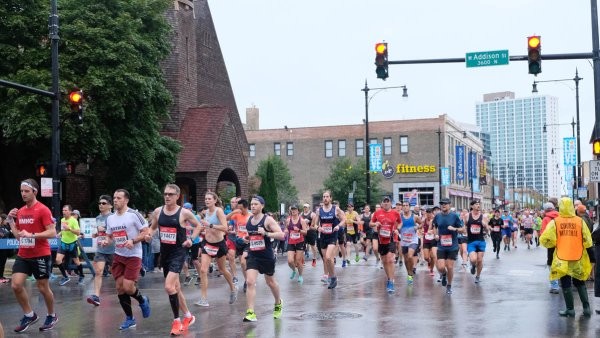
In previous years, medals have featured images from the race course and iconic Chicago landmarks and locations such as Buckingham Fountain.
(09/29/2021) ⚡AMPBank of America Chicago
Running the Bank of America Chicago Marathon is the pinnacle of achievement for elite athletes and everyday runners alike. On race day, runners from all 50 states and more than 100 countries will set out to accomplish a personal dream by reaching the finish line in Grant Park. The Bank of America Chicago Marathon is known for its flat and...
more...Does Runing Build Muscle?
Running does build muscle as long as you are constantly challenging yourself.
While most people associate building muscle with strength training, it is possible to build muscle while running if you follow the right training and nutrition plan.
And that's great news if you don't like lifting weights because building muscle has a ton of health benefits. It strengthens your bones, increases your metabolism, manages chronic conditions, and makes it easier to do everyday tasks.
Here's what you need to know about how to build muscle while running and become stronger.

How is muscle built?
Building muscle boils down to a simple equation: "stress plus recovery equals adaptation," says Michael Jordan, DPT, sports physical therapist at MovementX in Alexandria, Virginia.
Stress occurs whenever you work your body harder than it's used to — like when you hit the pavement while running, lift weights, or work against gravity via bodyweight exercises.
Undergoing physical stress during exercise breaks down tissues in your muscles, which prompts your body to build them back stronger than before.

Recovery is also necessary to give your muscles time to rebuild and become stronger. If you don't give your muscles time to recover it can make you feel sore and unable to perform as well during exercise.
Recovery can mean rest, or it can include low impact workouts like walking or light jogging, says Jordan. If muscles are given the time to recover a couple of days per week, they will adapt to physical stress and become stronger.
Does running build muscles?
Running is one way to build muscle since the repeated impact of your body on the pavement acts as a form of stress. Running mainly works lower body muscles, from your hips down to your feet.
"Your glutes and your calves are really your powerhouse[s] to push force into the ground," Jordan says. Running also engages your hip flexors and hamstrings, particularly when you are speeding up and increasing your strides per minute.
Different types of runs work different types of muscle fibers. There are two types of skeletal muscular fibers in the body: slow-twitch muscle fibers and fast-twitch muscle fibers.
Slow-twitch fibers are those that support longer, continuous exercises like long-distance running. They do not fatigue as easily as fast-twitch.
Meanwhile, fast-twitch muscle fibers support movements that require quicker and more powerful bouts of force. These are the muscles you build when doing sprints or hill runs. They also fatigue more quickly.
It's good to work both of these muscles as a runner because they will help you improve your running distance, endurance, and speed.
How to build muscles through running
Since running is a repetitive exercise, its potential for building muscle can be limited if you do not change up your training plan. So, in order to keep strengthening your muscles, you need to continuously challenge yourself.
In some cases, if you consistently run the same distance at the same heart rate, Jordan says you can actually lose muscle.
In order to become stronger while running, it is important to incorporate different types of runs, each of which works different muscle fibers. For example, strictly long-distance runners may want to incorporate high resistance runs, intervals, and sprints to switch up their routine and build muscle.
Here are some examples of runs to build muscle according to Jordan:
High resistance interval running: Run with resistance (either on an incline or using a weighted object) for five to 12 seconds, and then switch to 60 seconds of active rest (either walking or jogging). Repeat this pattern 10 to 20 times.
High-intensity continuous training: Run with high resistance at a low speed continuously for five to 20 minutes.
Sprint intervals: Sprint for 15 to 30 seconds, then rest for one to two minutes. Repeat this pattern 10 times.
Long-distance runs: Run at a continuous pace for 1 to 2 hours. This can help you build slow-twitch muscle fibers.
Recovery runs: Jog or walk for 30 minutes. It's important to incorporate recovery runs to give your muscles a break to repair themselves.
While each person's running schedule may look different, the key to building muscle is ensuring you are pushing yourself and mixing up the types of runs you do. Runners may also want to consider incorporating weight training to further increase muscle mass, Jordan says.
(09/29/2021) ⚡AMPby Lex Harvey
Ethiopian Shura Kitata ready to defend his London Marathon title despite injury
Shura Kitata has been suffering from hamstring problems; the Ethiopian won a sprint finish last year to de-throne Eliud Kipchoge, who finished eighth; he pulled out of the Tokyo Olympic marathon due to the conditions; Kipchoge will not be running London.
Kitata could not follow up a maiden London Marathon title with success at the Olympics this summer and pulled out in hot and humid conditions in Sapporo.
"I have some slight problems but still I am preparing to win and looking forward to it," the 25-year-old said via a translator during Wednesday's press conference.
"I was prepared very well before the Olympics and just two weeks before I had a hamstring injury, that was a big pressure for me. Otherwise I have prepared well and I am feeling confident to run on Sunday in London.

"The hamstring and the pain is not really easy and when it is a very fast speed, there might be some problem but I am looking forward to doing what I did before."
Another sprint finish this year would raise doubts over the Ethiopian's ability to clinch the event for a second time but he reflected on the life-changing experience of triumphing over Kipchoge, who bounced back to defend his Olympic title in August.
"I was very happy with the win last year and it had great meaning because Eliud is a very famous runner and a very strong runner so winning meant a lot," Kitata added.
While Kipchoge will not be in London to try and regain his crown as he recovers following his exploits in Japan, the 36-year-old will no doubt be watching on from afar and backing countryman Evans Chebet.
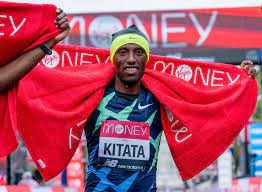
The Kenyan will run the 26.2-mile course for the first time and hope to play his part in a long-standing rivalry with the Ethiopian runners, with only athletes from the two countries winning the event since 2002.
Chebet admitted: "The rivalry is there and I know the Ethiopians are used to staying behind a bit and kicking on for the last 200 or 300 metres. It will be a challenging race and I know I will need a lot of strength at the end to win.
"If Eliud is watching on Sunday, it will give me more to run faster but I have my times already and the goal is just to go for a personal best.
"For 2:02 or 2:03 maybe depending on condition but I am looking forward to the race. Eliud gives morale but I have my own interest and motivation to win."
Kipchoge's last win in London in 2019 saw the Kenyan break the course record to post a time of 2:02:37.
Birhanu Legese will be the fastest man in the field following his winning run of 2:02:48 at the 2019 Berlin Marathon and he hopes the return of a crowd this year will help him make history.
"It depends on the weather on the day. If the weather is good, I plan to break the record and that is my target now. This is what I am preparing for," the Ethiopian and third fastest man in the world warned.
"We are pleased now everything is returning back to normal and we look forward to see the cheering of the crowd on the straight end. It will make us very happy."
(09/29/2021) ⚡AMPTCS London Marathon
The London Marathon was first run on March 29, 1981 and has been held in the spring of every year since 2010. It is sponsored by Virgin Money and was founded by the former Olympic champion and journalist Chris Brasher and Welsh athlete John Disley. It is organized by Hugh Brasher (son of Chris) as Race Director and Nick Bitel...
more...Best Tips To Get Back In Shape
Spent your entire pandemic lockdown binge-watching Netflix and eating cheese pizzas on your couch? There is no surprise that you are no more able to get into your old pair of jeans. However, not all has gone south. Here are some quick tips for you that will help you get back in shape.
Set Achievable Targets
One of the biggest hindrances that you can put in achieving your fitness journey is setting unrealistic goals. No, there is no way you can shed 50 pounds in one month. This is because you did not gain them in a month either. It took weeks and months of unhealthy lifestyle choices for your body to reach where it is today. If you are truly worried about how to lose 50 pounds, know that it is possible but it will take a bit of time, patience, hard work and consistency. Even if you somehow find a way to achieve the goal in a very short time, it is going to be plain unhealthy. Besides, if you are unable to achieve the set target, which is highly likely for unrealistic body goals, you will find yourself wanting to quit the journey.
Set realistic goals such as shedding a few pounds and inches every few weeks and then keep track of your progress. This way you will feel more motivated and your journey will be much easier.

Rule Out Medical Reasons
Often people weight gain despite not indulging in very unhealthy practices. This is usually due to medical reasons such as thyroid issues or polycystic ovaries etc. This is particularly more common amongst women. Whatever the reasons it may be, it is important that you rule out any underlying medical conditions before you embark on your fitness journey. In case of a medical condition, your physician will guide you about your body needs and weight goals and might as well prescribe your the necessary treatment.
Know Your Body Requirements

A lot of people today go gaga over popular celebrity fitness plans. The problem is that you cannot evaluate and treat everybody type with the same yardstick. Even though your body goals might be similar, every body type has a different set of requirements. Your fitness plan depends on a lot of factors such as age, gender, lifestyle, BMI, BMR, height, and medical profile. Once you have identified these variables, consult a fitness coach to guide you with the ideal calorie requirement and fitness regime that you need to follow.
Plan Your Meals
Once you have identified your daily body requirements, ideally plan your weekly meals in advance. Avoid any crash diet programs and stay away from any ridiculous diet plans such as Keto. All you need is a consistent plan of clean eating and portion control. A well planned daily intake that is divided into 5 to 6 meals with a combination of cereals, grains, proteins, vitamins and good fats is all that you need. Say goodbye to carbs for some time and do not go near those sodas.
Design a Fitness Regime
The need of work out does not need to be emphasized when it comes to weight loss. However, if you are someone who is not used to physical activity, do not jump into high-intensity workouts since day one. Choose a well-rounded fitness program that offers strength training alongside cardio. Build your stamina gradually and give time to your muscles to heal.
(09/28/2021) ⚡AMPby Colorado Runner
2022 Grandma's Marathon registration opens on Friday
Registration for the 2022 Grandma's Marathon opens on Friday (Oct. 1) as organizers plan for a full-capacity event for the first time in three years.
The 2022 race weekend is scheduled for June 16-18, with room for 9,000 entries for Grandma’s Marathon, 8,000 for the Garry Bjorklund Half Marathon, and 2,700 entries for the William A. Irvin 5K.

Registration for all three weekend races is first-come, first-served and will open at 7 p.m. Central time on Friday. Registrants for the full marathon pay $120 until Oct. 16; the price goes up $10 on that day and again on Jan. 1, 2022 and April 1.

The half marathon has a $110 registration fee and follows a similar structure. The William A. Irvin 5K starts at $40, goes up to $45 on Oct. 16 and is $50 after Jan. 1. A virtual option for $35 is available for that race.
The cancelation policy for the 2022 race will mirror that of 2021: If the event is switched to a virtual format due to COVID-19, registered in-person participants will receive a 40% discount code that can be used three times from 2023-27 for any of the weekend events.
(09/28/2021) ⚡AMPGrandmas Marathon
Grandma's Marathon began in 1977 when a group of local runners planned a scenic road race from Two Harbors to Duluth, Minnesota. There were just 150 participants that year, but organizers knew they had discovered something special. The marathon received its name from the Duluth-based group of famous Grandma's restaurants, its first major sponsor. The level of sponsorship with the...
more...No Covid cases at all related to Vienna City Marathon held Sept 12 with over 18,000 runners
The Vienna City Marathon staged on 12 September was the first major marathon worldwide with a strong international elite field and a mass race since the start of the Corona pandemic. In total 18,118 runners from 126 nations competed during the two day event. 6,000 of them were marathon runners. Organisers were now able to confirm that no Covid cases at all are related to the Vienna City Marathon.
A tailor-made prevention concept combined with a very high vaccination rate of 93 per cent of the participants made it possible to stage the race. A couple of days ago the Public Health Service of the City of Vienna confirmed that no infections with Covid-19 were recorded in connection with the event. “After consultation with our cluster monitoring team, no cases or clusters related to the Vienna City Marathon have been reported so far,“ informed Dr Ursula Karnthaler, project manager for medical measures related to the coronavirus at the City of Vienna Health Service.
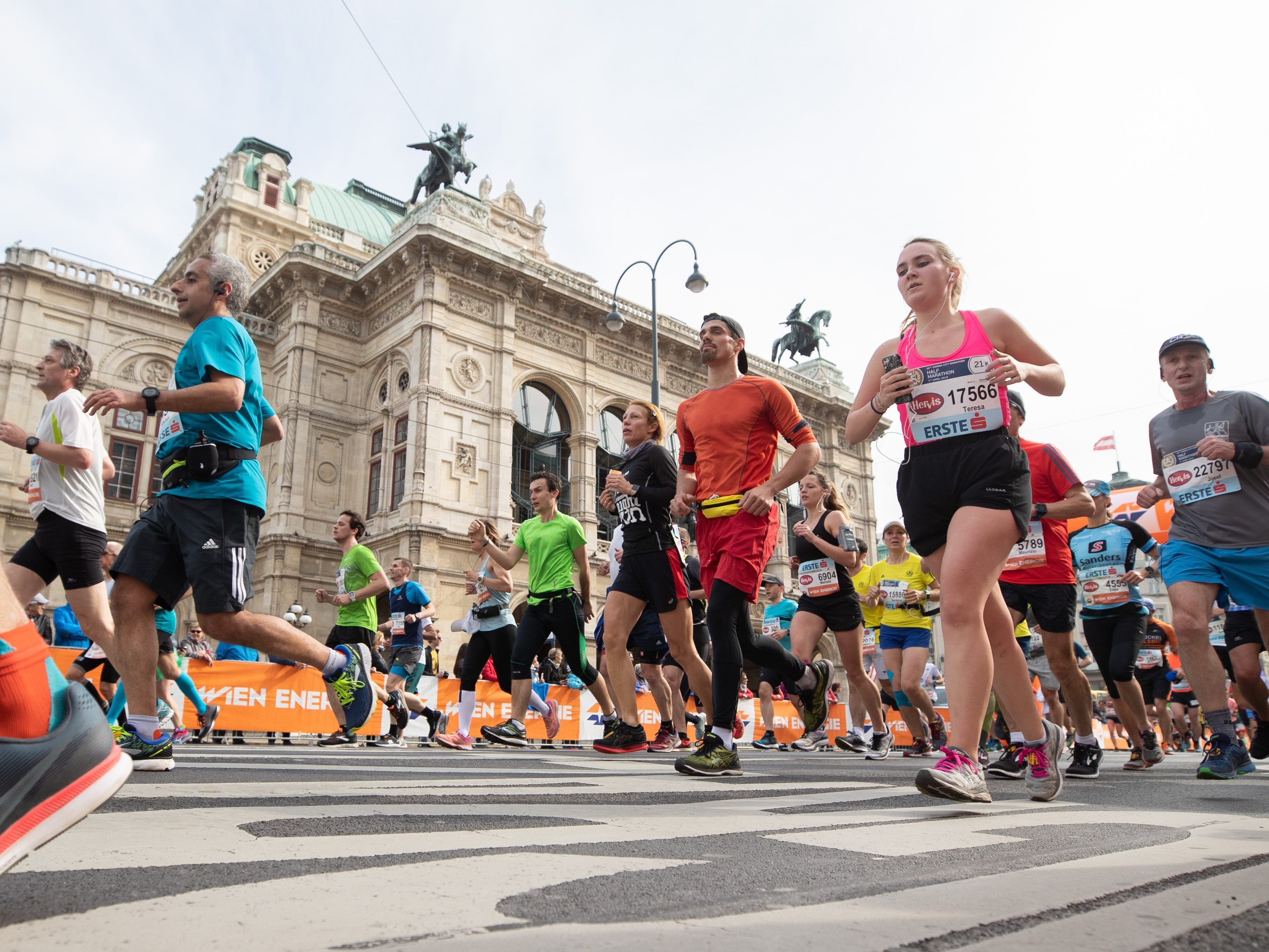
This information was received with joy by the Vienna City Marathon organising team. “We have shown that a major running event can be organised in an inspiring and responsible manner. The efforts regarding personnel and logistics were very high. Equally important was the willingness of the running community to support the prevention concept. We would like to thank everyone for this. The Vienna City Marathon has sent a strong message for running in Austria and internationally. Running events are a great motivator for regular exercise for all age groups, something our society urgently needs,“ said race organiser Wolfgang Konrad.
The safety concept included the compulsory presentation of an up to date negative Covid test for all participants when they were collecting their race number. Organisers also provided more space at the start and finish areas as well as at refreshment points. The size of the field was also reduced compared to 2019 and before.

The next edition of the Vienna City Marathon will be held on 24 April 2022.
(09/28/2021) ⚡AMPVienna City Marathon
More than 41,000 runners from over 110 nations take part in the Vienna City Marathon, cheered on by hundreds of thousands of spectators. From the start at UN City to the magnificent finish on the Heldenplatz, the excitement will never miss a beat. In recent years the Vienna City Marathon has succeeded in creating a unique position as a marathon...
more...Organizers of the Boston Marathon will be paying tribute to 2-time Indigenous champion, Ellison “Tarzan†Brown
Organizers of the Boston Marathon publicly apologized for running the 125th edition of the planet's most celebrated footrace on Indigenous Peoples Day.
Now they're seeking to make amends by throwing the spotlight on a member of Rhode Island's Narragansett tribe who won the race twice in the 1930s and inspired the name “Heartbreak Hill” to describe the most iconic — and dreaded — section of the course.
The Boston Athletic Association, which administers the marathon, said Monday it will honor the legacy of the late Ellison “Tarzan” Brown, Boston's champion in 1936 and 1939, in the run-up to the race's pandemic-altered Oct. 11 staging.

The Boston Marathon traditionally is held in mid-April on Massachusetts’ unique Patriots' Day holiday. In 2020, it was canceled in its traditional format for the first time because of the coronavirus pandemic, and because of a resurgence of COVID-19 cases, it's being run this year in the autumn rather than the spring.
Next month's running falls on Indigenous Peoples Day — observed in some places as an alternative to Columbus Day — and that rankled enough people for the BAA in August to issue “sincere apologies to all Indigenous people who have felt unheard or feared the importance of Indigenous Peoples’ Day would be erased.”

Massachusetts does not officially recognize Indigenous Peoples Day, but Newton — which lies on the marathon course — does.
Eighty-five years after his historic first win, Brown's descendants cheered the recognition of their acclaimed ancestor.
“Running and winning the Boston Marathon was something grandpa loved," said Anna Brown-Jackson, a granddaughter of Brown.
“Being an Indigenous person meant everything to Grandpa because he was very competitive to begin with,” she said. “If someone told him he couldn’t do something, whether it was winning the marathon or crossing through a path of land to gather shellfish for his family, he’d make sure to prove them wrong and do it.”
Patti Catalano Dillon, a member of the Mi’kmaq tribe, a three-time Boston Marathon runner-up and a former American marathon record holder, also will be honored at next month’s race.
Brown, whose tribal nickname was Deerfoot, set a world record with his second victory at Boston and represented the U.S. in Hitler’s 1936 Olympics in Berlin alongside the great Jesse Owens.
Brown became an instant hero to native people across North America. But like other top Indigenous athletes of his era, he struggled greatly with discrimination and marginalization.
In 1975, he died at age 60 after he was deliberately run over by a car in the parking lot of a Rhode Island bar.
(09/28/2021) ⚡AMPby William J. Kole
Boston Marathon
Among the nation’s oldest athletic clubs, the B.A.A. was established in 1887, and, in 1896, more than half of the U.S. Olympic Team at the first modern games was composed of B.A.A. club members. The Olympic Games provided the inspiration for the first Boston Marathon, which culminated the B.A.A. Games on April 19, 1897. John J. McDermott emerged from a...
more...Olympic champion Faith Kipyegon says she is motivated to break more records next season
Double Olympic1500m women's champion Faith Kipyegon hungry for more success.
Speaking on Tuesday after she was voted LG Sports Personality for the month of August, the mother of one stated that the timely award will motivate her going forward.
Faith defended her 1500m gold medal at the Tokyo 2020 Games in Japan in a new Olympic record of 3:53.11, beating Great Britain's Laura Muir and Dutch star Sifan Hassan.
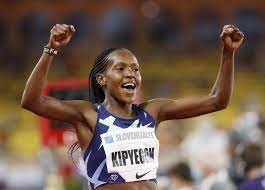
"I am surprised about this award. It has never happened before. Being the off season, coach Patrick Sang called me and said that there is an urgent meeting. Little did I know I was to receive this award. It is an inspiration for me and my teammates at the camp,” said Kipyegon Tuesday during the award ceremony at the Global Sports Communication Training Camp in Kaptagat in Elgeyo Marakwet County.
To win the monthly award, Kipyegon went home with a state-of-the-art LG washing machine worth Sh92,000 and a glittering trophy engraved with her name.

Kipyegon was voted the best ahead of the men’s marathon world record holder Eliud Kipchoge, Peres Jepchirchir who both won gold in Tokyo Olympics in marathon, as well as 800m gold medalist Emmanuel Korir.
Also in the nominees were World Under-20 Walk champion Heristone Wanyonyi, 100m sensational Ferdinand Omanyala and World Under-20 800m champion Emmanuel Wanyonyi.
LG Electronics Managing Director, Sa Nyoung Kim appreciated the partnership, saying that the electronic firm is committed to developing sports in the country.
“I am humbled to be at such a humble camp which has so many championships. LG and SJAK will continue working together to support and motivate sports personalities achieve their dreams,” LG boss said.
On his part, Valentijn Trouw, a senior manager in the Global Sports Communication Camp said, “We are pleased as a team to have a fifth athlete awarded. As Global Sports Communication we work as a team to ensure that we not only develop good athletes but a well-rounded person.”
Kipyegon becomes the fourth female athlete in 2021 to lay hands on the coveted award, previously won by the likes of Kipchoge, Geoffrey Kamworor, Kenya sevens star Jacob Ojee and 800m Commonwealth champion Wycliffe Kinyamal among others.
She also joins the growing list of 2021 winners that includes tennis superstar Angela Okutoyi (January), Tylor Okari Ongwae of Kenya Moran’s (February), Hit Squad boxer Elly Ajowi (March), world marathon champion Ruth Chepng'etich (April), Milan marathon winner Titus Ekiru (May), Safari Rally WRC3 winner Onkar Rai (June) and US based Lioness basketball star Victoria. Reynolds (July).
(09/28/2021) ⚡AMPby Agnes Makhandia
St. George Marathon returns for its 45th edition with big plans after one-year COVID-19 hiatus
The St. George Marathon makes its return Saturday for its 45th edition and the first since 2019 after the 2020 race was canceled due to the COVID-19 pandemic.
The race is set to start in its usual spot north of the city along State Route 18 at the base of the Pine Valley Mountains and descending nearly 2,600 feet in elevation back to the finish line downtown.
The race starts at 7 a.m. and will force some road closures and detours along SR-18 and a number of streets in and around downtown.
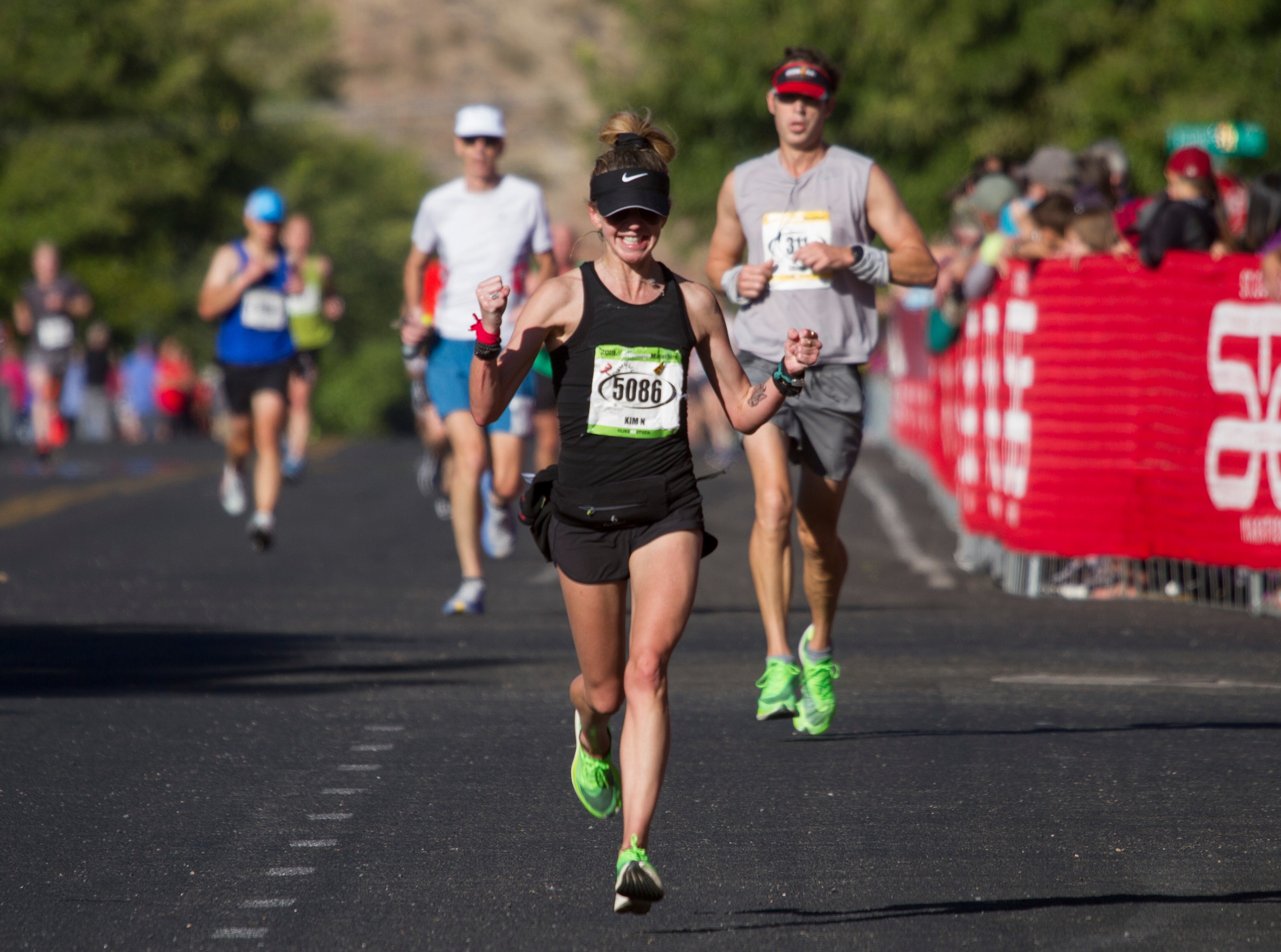
“We are so excited to have the marathon back in 2021. It is St. George’s signature event,” said Michelle Graves, race director and the Deputy Director of Arts and Events for the City of St. George. “This might be the best St. George Marathon ever. There has been a vibrant return to racing and we are happy to have a strong field of runners for this year's event.”
This year's event will include a mini-marathon starting at 6:15 a.m, with races of 1 mile and 200 meters at Vernon Worthen Park. Children ages 3 to 12 and people with special needs are invited to participate.

“We are so excited to have the marathon back in 2021. It is St. George’s signature event,” said Michelle Graves, race director and the Deputy Director of Arts and Events for the City of St. George. “This might be the best St. George Marathon ever. There has been a vibrant return to racing and we are happy to have a strong field of runners for this year's event.”
This year's event will include a mini-marathon starting at 6:15 a.m, with races of 1 mile and 200 meters at Vernon Worthen Park. Children ages 3 to 12 and people with special needs are invited to participate.
(09/27/2021) ⚡AMPSt. George Marathon
Rated by Runner's World as one of the four "Marathons to Build a Vacation Around" in the World. Included in Runner`s World 10 Most Scenic and Fastest Marathons and Top 20 Marathons in the USA. It begins in the majestic Pine Valley mountains and descends nearly 2600 feet through scenic southwest Utah, to the beautiful Worthen Park. The St. George...
more...Chester Marathon returns this Sunday, What runners need to know
Runners are ready to take the start line in the MBNA Chester Marathon this Sunday.
Thousands of runners are expected to take part in the two road races on Sunday morning – the full 26.2-mile event, plus the 26.2km Metric Marathon.
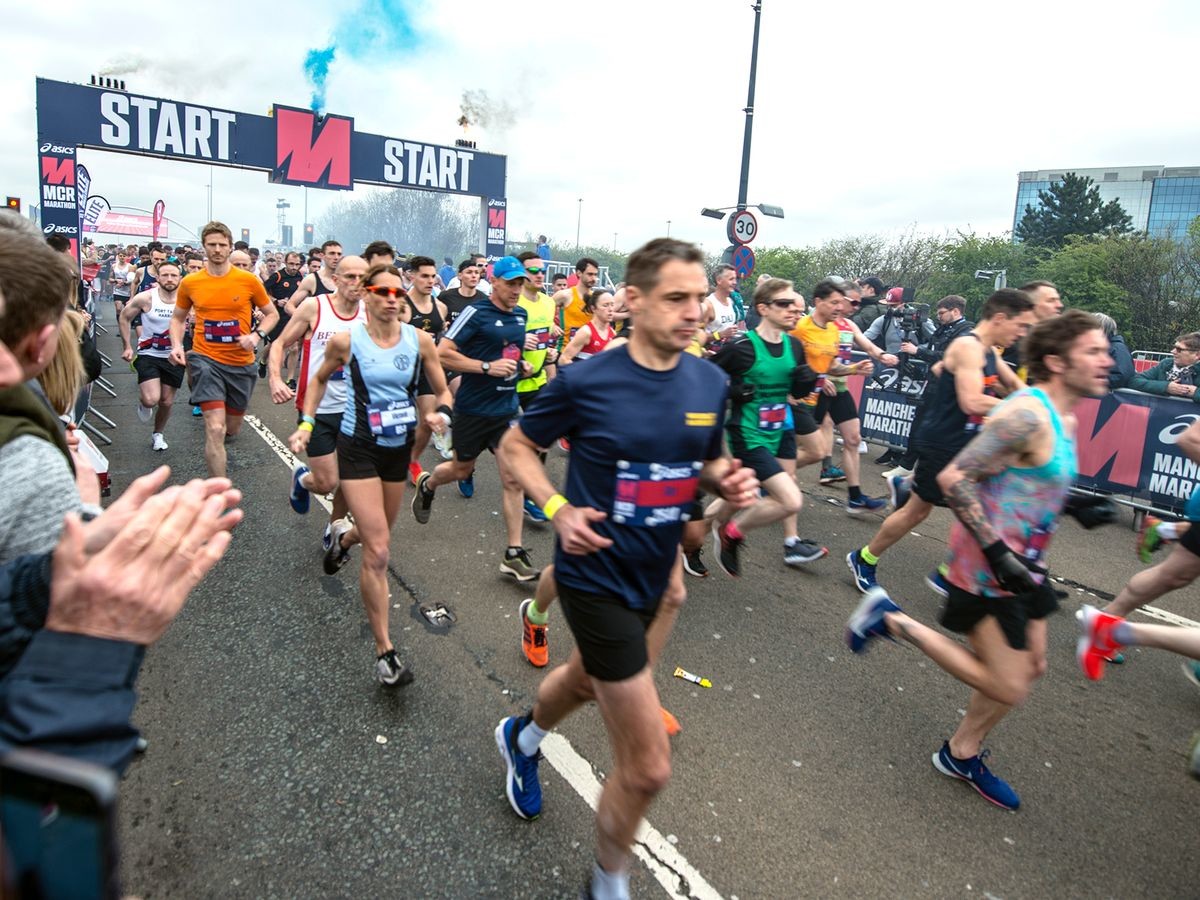
Due to the road closures that will be in place throughout the day, motorists are urged to make use of a diversion route around the A483 between Gresford and Chester, the A534 between Gresford and Broxton, and the A41 between Broxton and Chester.
Spectators are urged to show their support to the runners as they power their way through the course.
Joint event organiser Chris Hulse said: “Spectating this kind of event is a great way to spend a Sunday morning.

“We are inviting people to experience all the drama and excitement without actually having to run themselves!"
Chris added: “The pandemic forced us to move the half marathon to just a fortnight before the MBNA Chester Marathon. As it happens, it provided an ideal sharpener race for the runners in preparation for Sunday’s full marathon.
“Whilst it was brave to host two of our events in as many weeks, we felt it was the right thing to do and the feedback we have already received from runners bears this out.”
From the event’s traditional base at Chester Racecourse, starting at 9am, the runners are greeted and the race set off by the Town Crier. Runners head into the city centre passing the Town Hall, Cathedral, under the Eastgate Clock, past the Amphitheatre and through the Walls before heading out of the city across the Old Dee Bridge.
The marathon route offers vantage points for spectators in the city, especially from the City Walls as runners pass under four city gates early in the event.
Runners then leave Chester, through Handbridge and Eccleston, past the Duke of Westminster's estate, through Pulford, before crossing the border into Wales and through the villages of Lavister and Holt. Crossing the river at Farndon, the return to England signals the beginning of the home stretch through Churton, Aldford and Huntington.
Chris added: “The runners really appreciate the support they get from Chester’s great crowds, whether out on the route or at the Racecourse, and we hope many Cestrians will make a day of it!”
(09/27/2021) ⚡AMPby Mark Dowling
Last-minute marathon tips that can make a huge difference on race day
Running a marathon is one of the most satisfying accomplishments. To get a taste of that sweet satisfaction of crossing the finish line, you’ll have to put in some hard work, though. That means consistent training to get the long runs right and tapering during the last weeks leading up to the event. You’ll also want to find the best ways to give you that final push right before and during your marathon. And let’s not forget, there is life after the marathon and for your own sake, kick-off “the afterlife” with investing in recovery.
Let’s start with a couple of basic marathon concepts to set the scene and then move on to last-minute marathon tips that can make a huge difference on race day.

HITTING THE WALL
Hitting the wall, also known as ‘bonking’, is the term used to describe running out of energy.
The human body can store a limited amount of energy which will run out if carbohydrates aren’t consumed during prolonged exercise. In long-endurance efforts, like the marathon, this can manifest as sudden fatigue, lack of energy, heavy legs, and/or a sudden drop in pace.

What can you do to avoid it? ‘Hitting the wall’ is not a prerequisite of finishing a marathon! Carbohydrate loading and taking on carbohydrates during the marathon will help to make sure you don’t run out of energy.
CARBOHYDRATE-LOADING
You may have heard or read about carbohydrate loading. What does it mean? Does it work? Is it relevant and should I be doing it?
Yes, it works, it is relevant for marathon runners and you should employ this strategy.
Our understanding of how to implement this has changed quite a lot since the initial research on the subject was carried out on the military back in the 60s. Essentially you’re looking to increase the amount of carbohydrate you consume in the few days leading up to the marathon to ensure your fuel levels are topped up.
Whether you’re an elite or amateur, carbohydrate is the predominant fuel source you use during running. As our our bodies can store only a limited amount of carbohydrates, topping up those fuel storages before the race will help you avoid the onset of fatigue.
With all this in mind, here are some last-minute marathon tips for the 24 hours before, during, and after your race. These will go a long way to ensure you have an awesome marathon.
To start, the golden rule is: Don’t try anything new on race day! Stick to meals you like and are used to, use the same clothing, socks, shoes and music playlist you’ve used in training. Don’t worry about what anyone else is doing, be confident in your own preparation, knowing what works well for you and stick to that.
1. EAT WELL THE NIGHT BEFORE
The night before your race eat a meal you enjoy and are used to. Aim for a meal that is rich in carbohydrates, this could include foods like pasta, rice, bread, potatoes.
A good evening meal will ensure you have enough carbohydrates stored in your muscles and liver before race day. Carbohydrates are basically the petrol for your engine on the big day so filling up that tank will reduce the risk of fatigue during the race.
2. AVOID EATING TOO CLOSE TO BEDTIME
Aim to have dinner earlier in the evening before the race. Make sure you plan ahead to avoid rushing this meal – giving your body time to digest the meal and relax should hopefully mean you get a good night’s sleep which is, obviously, crucial.
3. CARBOHYDRATES ARE KING AT BREAKFAST
Similar to the night before, priming the body with carbohydrates at breakfast is a way to ensure your performance doesn’t suffer during the race. Stick to a breakfast and foods you’re used to and have practiced in training. Porridge, toast, cereal, bagels, and fruit juice are all great choices.
4. REDUCE FAT AND FIBER
Keep fiber and fat to a minimum when having your race day breakfast as we know this can cause upset stomachs during the race. This simple tip will ensure you’re in top condition for the challenge ahead and hopefully, reduce the chance of any unnecessary toilet stops.
(09/27/2021) ⚡AMPby Colorado Runner
David Turner, 84-year-old prepares to run his seventh London Marathon this weekend
A pensioner from Hemel Hempstead is preparing to run his seventh London Marathon this weekend.
On Sunday, October 3, 84-year-old David Turner, from Boxmoor will be swapping his usual St John's Road training track for the full 26.2 miles of the Virgin Money London Marathon.
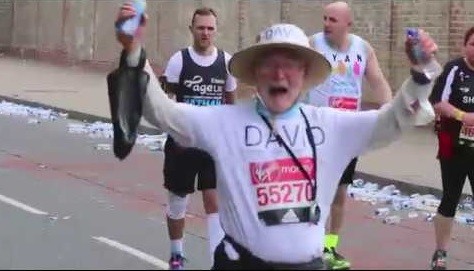
This will be David's seventh London Marathon, and he is raising money for the Arthur McCluskey Foundation, and the Mother's Village Orphanage in Bosnia.
The charity aims to help the people of Bosnia Herzegovina and relieve poverty and advance education whilst respecting varying religions and cultures.

David, who moved to Boxmoor in 1972 with his wife and four sons, started running the London Marathon's in 2010.
He said: "My wife, Rita, who was Chair of Governors at John F. Kennedy School, died in 1996, and I only took up running when I was 67.
"I'm so pleased this race is in October, so I'll only be 84.
"At the age of 84 years and 11 months, this must be my last London Marathon. I am running it again for Mother's Village Orphanage in Bosnia, because they still need help.
"Other catastrophes may make new headlines. But Bosnia Herzegovina has still not finished burying its dead, nor binding the wounds of its living.
"I feel good, I have ran the London Marathon before, and last year's one was different as it was virtual, so I ran around Boxmoor!
"I'm looking forward to it, and I'm hoping to raise as much money as possible for the charity. If you feel you can help me, thank you!
Pat Henry, director of Arthur McCluskey Foundation, said: "David is an example to the orphans and staff at Mother's Village.
"They see the huge efforts he makes to help them to survive. The pandemic caused havoc in their lives so your support is desperately needed."
(09/27/2021) ⚡AMPby Holly Patel
TCS London Marathon
The London Marathon was first run on March 29, 1981 and has been held in the spring of every year since 2010. It is sponsored by Virgin Money and was founded by the former Olympic champion and journalist Chris Brasher and Welsh athlete John Disley. It is organized by Hugh Brasher (son of Chris) as Race Director and Nick Bitel...
more...Colorado resident wins Fargo Marathon with 'rust buster' performance
Mark Messmer last raced in Olympic Trials, turns in second-fastest Fargo time.
The first victory on Saturday morning for Mark Messmer was just getting to the Fargodome. A starting line with a few thousand runners never felt so good.
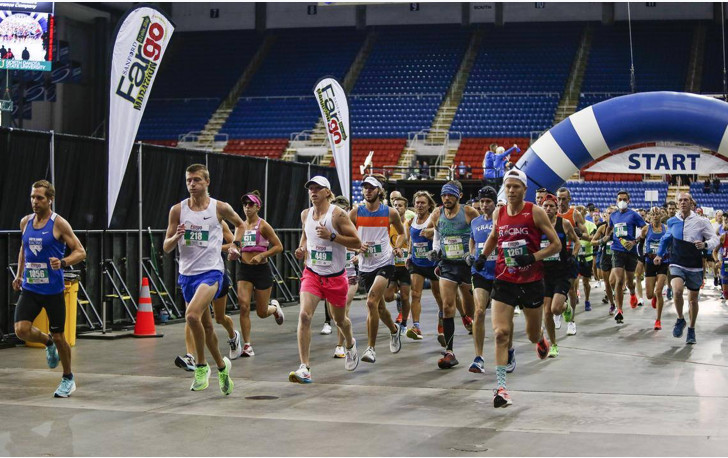
And once the Scheels Fargo Marathon gun went off, the Castle Rock, Colo., resident spent all but one of the 26.2 miles in front of the pack and won the race in a time of 2 hours, 21 minutes, 1 second. That victory was sweet, too.
“Kind of a rust buster, if you will,” Messmer said.
The rust was from not racing because of the COVID-19 pandemic, with his last marathon coming in the U.S. Olympic Trials in February 2020. Every race he signed up for since then was either canceled or postponed.
He did get in a 10K and a 5K, but even those were not a typical race. The 5K, he said, was a staggered start for time only.
“That’s not a way to race,” Messmer said. “A crowd, everyone starting together and passing half marathoners along the way, that’s the way a race should be. It feels really good to have a race under the belt and be back in the swing of things.”
It was Messmer’s fifth career marathon win and the second fastest time in the 17th annual Fargo race. Chris Erichsen holds the course record at 2:19.55 set in 2010.
A former runner at the University of Montana, Messmer competed in Fargo once before at a collegiate race. He entered his first Fargo Marathon for the first time because he figured it wouldn’t get canceled.
“I was just cranking a lot of miles by myself,” Messmer said. “It was nice to get back out there.”
He endured a slight cramp in his quad around mile 20, but looked somewhat fresh finishing in the dome. His pace broke down to 5:23 per mile.
Conditions were nearly ideal with temperatures in the high 40s to low 50s and light winds for most of the race. And it didn’t hurt being closer to sea level.
“I’m living at 6,200 feet,” he said. “Coming down to, what around 900, feels pretty good.”
Messmer wasn’t kidding when he went out alone. Benjamin Kopecky from St. Louis, Mo., was second in 2:35.39 and Alec Sanbeck of Mora, Minn., was third at 2:40.05.
“It was me and two bikers,” Messmer said, referring to the bicycle riders leading the route. “It would have been nice to have someone to push.”
Messmer ran a 2:25 at the Olympic Trials, so Saturday’s effort at around five minutes faster was a noted improvement. So was hearing a starting gun.
“Beforehand, I had to pick my way through people, it was awesome to see again,” he said of the starting line. “It’s great to see everyone is back at it.”
(09/26/2021) ⚡AMPFargo Marathon
The Fargo Marathon is a week full of events, The Fargo Marathon is bound to have something for everyone. From the Cyclothon, Furgo Dog Run, Largest Kid's Race, 5K Walk/Run, 10K, Half Marathon, Full Marathon and Relays, there is a distance for all! Start and Finish inside the Fargo Dome - ...
more...Cheserek, Rojas win ‘emotional’, long-delayed Cooper River Bridge Run
A 27-year-old Kenyan man was the first to finish the 44th Annual Cooper River Bridge Run.
Edward Cheserek completed the race with a time of 28:25, a pace of 4:34 per mile. Cheserek, who now lives in the United States, is a 17-time NCAA champion at the University of Oregon.

He was a runner-up at the 2021 Great North Run and his all-time personal best in a 10K is 27:23.
The leaderboard listed the top Female Elite runner as Nell Rojas from Boulder, Colorado with a time of 31:52, and a pace of 5.07 per mile.
The Bridge Run began at 8 a.m. Saturday with a smaller-than-normal crowd of runners. The 15th annual Wheelchair Division race began just before 7:30 a.m. with nine participants.
The Arthur Ravenel Bridge closed at 7 a.m. Saturday, an hour before the official start of the race.
The bridge, along with the rest of the race route shut down at 7 a.m. The route and support streets will remain closed until the final participant clears the area. Many downtown roads that shut down earlier Saturday morning are expected to reopen by 2 p.m.
The Ravenel Bridge will reopen after police and media are cleared off the bridge and any debris from the race is removed.
This year’s event is the first in-person Bridge Run held since April 6, 2019. The event planned for 2020 was changed to a virtual run because of the COVID-19 pandemic.
Organizers imposed a lower-than-usual cap on the total number of runners and walkers for this year’s 10K event, limiting the total to 25,000 from its usual 40,000. That means more than a third fewer people will “Get Over It” in this year’s event, a reference to the iconic 2.5 mile Arthur Ravenel Bridge that serves as part of the course.
All of the individual registrations for the 25,000 in-person spots sold out.
People who take part in the event were told they would be required to show proof of full vaccination against COVID-19 or to provide proof of a negative test conducted within 72 hours of the time they picked up their race packet.
But Bridge Run organizers say there will be food, entertainment, vendors, and souvenirs at the post-event festival at Marion Square.
The event will run until 12 p.m. on race day.
44 years of the Bridge Run
The Cooper River Bridge Run is the third-largest 10K race in the United States. It is normally held on the first Saturday in April unless that Saturday falls on Easter weekend.
Dr. Marcus Newberry founded the Cooper River Bridge Run in 1978. The 10K’s course takes runners down Coleman Boulevard through Mount Pleasant, over the Arthur Ravenel Bridge and into downtown Charleston.
Participants include world-class athletes as well as running enthusiasts, walkers and their friends and family members. The run has an annual grant program to promote health and wellness, supporting a dozen charities through fundraising and promotion.
In the race’s very first running on April 2, 1978, 766 finishers crossed the former Silas Pearman Bridge. It was one of the hottest temperatures on record at 82 degrees at the 10 a.m. start time. That was the only year the Bridge Run was held on a Sunday.
By 1980, the course had shifted to the former Grace Memorial Bridge where it would remain until 1995 when it returned to the Pearman Bridge.
Only once in the race’s history did it end in a tie. That happened on March 29, 1980, and the record time is 31:26.
Both of those bridges were replaced in 2006 by the Ravenel Bridge. The all-time record number of registrations occurred that same year when 45,663 signed up. Of those, 33,742 finished the race that year.
The event received the Governor’s Cup Award in 2019 for its impact on Tourism and Travel. It has a direct economic impact of $30 million.
The average age of participants in the annual event is 32.9, but people of all ages have taken part over more than four decades.
A virtual run replaced the traditional race in 2020 because of the pandemic. The 2021 event, which was originally planned for its late March or early April timeframe, was postponed to September, also because of the pandemic.
James Koskei of Kenya holds the current record for the all-time top performance in the men’s open category with a finish time of 27:40 in 2000. Elana Mayer, from South Africa, holds the women’s open category best time at 31:19, set in 1997.
For wheelchair finishers, the records are 24:30, set by Tyler Byers in 2007 and 37:10, set by Ilana Dupont in 2013.
Silas Kipruto and Monicah Ngige were the winners of 2019′s event, with finish times through the 6.2-mile course of 27:58 and 31:37 respectively.
Kipruto, then 34, has been in the top five finishes numerous times in some of the world’s most competitive races. Kipruto finished with a time of 27:58, securing the $10,000 top prize.
Monicah Nigige, then 25, was the top female Elite finisher, winning her third Cooper River Bridge Run in the past four years.
(09/26/2021) ⚡AMPCooper River Bridge Run
The Cooper River Bridge Run provides a world-class 10-K foot race held in Charleston, S. Carolina. The race promotes continuous physical activity and a healthy lifestyle through education and opportunity. On Sunday morning, April 2, 1978, the starting gun was fired for the First COOPER RIVER BRIDGE RUN and the race began. Even at that time it was successful beyond...
more...Cuffe runs away from the field in 43rd Freihofer’s Run for Women
The only reason Aisling Cuffe didn’t get lonely during the 43rd Freihofer’s Run for Women 5k on Saturday is that the race course doubles back on itself.
As she turned right off Sprague Place onto Washington Avenue just before the 4k mark, she allowed herself a smile as she was greeted warmly by a long line of walkers headed in the other direction, having just passed the 1k mark.

By the time the 28-year-old Cuffe passed Henry Johnson Boulevard a long city block later, no runner had appeared turning the corner on Sprague, and that was that. Cuffe polished off the downhill on Washington to the finish and won the Freihofer’s Run in 16:34, a whopping 40 seconds ahead of runner-up Cara Sherman.
A two-time New York State high school champion in cross country for Cornwall Central in 2009 and 2010 who went on to run for Stanford University, Cuffe has raced pretty much everywhere in the state except for the Capital Region, and she made her Freihofer’s Run debut a smashing success by putting the field away early.
“I have a tendency to not start fast enough, so by a half-mile in, I was like, ‘Oh, I don’t think I’m starting fast enough for the pace I want to do,’” she said. “Normally I rely on the field to drag it out of me, and I didn’t feel like the field was doing that, so I thought, ‘I’m going to have to go.’
“And I was super-nervous somebody was going to come back and start kicking it in, so I kept looking and probably shouldn’t have been looking as much as I did.”
The Freihofer’s Run usually is held in early June, but was moved to September for this edition after being contested as a virtual race last year because of the COVID-19 pandemic.
A total of 1,024 runners finished the in-person 5k in comfortably cool, sunny conditions on Saturday, after a thick fog lifted an hour or so before the 9 a.m. start.
The clear conditions didn’t help the elite field find Cuffe, as she got 10 meters of separation by Lark Street a half-mile in and pretty much put the race away with a 5:32 first mile shortly after entering Washington Park.
Cuffe ran the second mile in 5:27 for a 10:59 split and spent as much time watching her step through the rolling hills and twisting turns in the park as anything else.
“It got quieter all of a sudden when I started pushing, and I thought, ‘Oh, did I make a gap already?’” she said. “You can tell sometimes how many people are around you just by hearing, but it wasn’t what I thought. So I was like, ‘What?’ And it thinned out so much … ‘Wow. OK.’ I kept having to press at that point.
“I fell asleep a little bit in the second mile, but that’s also where the course is at its hilliest, so it’s tough to say. But I do think I fell asleep a little in that middle mile. When I’m a little more relaxed, I start looking at potholes a lot more and getting a little picky about my steps.”
“I thought about it [making a push to close the gap], but I was already pressing a little bit early, so I figured I should stay within myself and be patient,” Sherman said.
A two-time runner-up in the 5,000 meters at the NCAA Championships while at Stanford, Cuffe has been training for longer distances this year and said she felt “a little rusty at the 5k distance.”
Besides winning two cross country state meets for Cornwall, she also won the state Federation meet and Foot Locker National Championship in 2010.
At Stanford, she was coached by former Section II star Liz Maloy of Holy Names, who hosted Cuffe at her Loudonville home this weekend. Among their shared memories is having run in the state meet, where runners compete in t-shirts color-coded to their section.
“We used to get cotton t-shirts at the state meet, so she had maroon, and I had royal blue, and we were talking about running one of your biggest meets in high school in a cotton t-shirt. We love that,” Cuffe said.
“Oh, my God, they’re my favorite t-shirts. I can’t wear them too much because they’re starting to wear a little thin, so I have to preserve them for my children and grandchildren.”
Sherman, who has run in the colors of Mohonasen High School and the University at Albany, wanted to use the Freihofer’s Run as a stepping-stone to the MVP Stockade-athon 15k, another popular road race that will return to in-person competition on Nov. 14.
The 2019 Stockade-athon winner completed the Freihofer’s Run 10 seconds ahead of third-place finisher Annika Sisson.
“I was a little surprised to finish so far up, but I hit the time I was shooting for. I thought I’d be around 17:15,” Sherman said. “I’m training for the Stockade-athon right now, so I was using this as my first test effort, sort of. So I just wanted to see where I was at.”
It wasn’t long ago that Sisson was running in the Capital Region, as she was second to another former UAlbany standout, Hannah Reinhardt, at the 2018 America East Conference cross country championship meet, while Sisson was at Stony Brook.
“My coach Kurt Benninger, Molly Huddle’s husband, he knew of this race and thought it would be a good opportunity to test my fitness, see where we’re at heading into the fall,” Sisson said. “And it was great, I had so much fun. I knew Aisling was coming in, so that was fun. We were like, we’re probably going to have to let her go.”
Sascha Scott of Syracuse won the masters division while finishing 10th overall in 18:17.
Under a reconfigured prize structure that offered a deeper distribution, Cuffe earned $3,000 for the victory.
She said she especially appreciated the women-only race, though, for some of its other touches, like running into the walkers on the way back and the fact that race director Kristen Hislop announced to the field before the start that the age range in the race ran from 9 to 93.
“I love races like this, especially when you get to see other people in the race doing it as well,” she said. “Even at the start, when Kristen was announcing the race and the oldest person and the youngest. I love that stuff, I could listen to that all day long, the number of people that come out and share in the sport of running and racing having fun together. It’s so motivating and inspiring.”
TOP 50
1. Aisling Cuffe (28, Concord, Mass.), 16:34; 2. Cara Sherman (24, Schenectady), 17:14; 3. Annika Sisson (25, Pawtucket, R.I.), 17:24; 4. Caitie Meyer (30, Albany), 17:34; 5. Kerry Allen (33, Washington, D.C.), 17:39; 6. Karen Bertasso Hughes (37, Selkirk), 17:42; 7. Tricia Longo (31, Waterford), 17:50; 8. Sarah Danner (28, Gowanda), 17:57; 9. Elizabeth Debole (36, Albany), 18:02; 10. Sascha Scott (46, Syracuse), 18:17.
11. Suzie Clinchy (32, Brooklyn), 18:26; 12. Nicole Moslander (34, Rotterdam), 18:28; 13. Abbi Wright (24, Delmar), 18:31; 14. Leonni Griffin (14, Watervliet), 18:37; 15. Meghan Mortensen (36, Glenville), 18:50; 16. Marisa Sutera Strange (58, Millbrook), 18:56; 17. Renee Tolan (46, Clifton Park), 18:57; 18. Laura Kline (44, Syracuse), 18:59; 19. Erin Lopez (40, Ivoryton, Conn.), 19:01; 20. Kaleigh Higgins (15, Watervliet), 19:08.
21. Gina Pardi (23, Falmouth, Me.), 19:21; 22. Charlotte Dunkel (14, Latham), 19:43; 23. Kaitlyn Phillips (24, Rome), 19:51; 24. Brina Seguine (32, Rensselaer), 20:00; 25. Ciara Bullington (17, Cohoes), 20:02; 26. Lauren Scarupa (30, Clifton Park), 20:03; 27. Marta Dauphinee (43, Glenville), 20:13; 28. Kirsten McMichael (24, Clifton Park), 20:13; 29. Diana Tobon-Knobloch (40, Schenectady), 20:26; 30. Birtu Diefenderfer (16, Albany), 20:33.
31. Kaitlin Bogucki (14, Rensselaer), 20:31; 32. Jennifer Richardson (41, Albany), 20:48; 33. Sarah Harris (46, Sunderland, Vt.), 20:50; 34. Elizabeth Koa (15, Watervliet), 20:53; 35. Katie Johnson (40, Delmar), 20:55; 36. Lilla Korniss (16, Watervliet), 21:00; 37. Aroline Hanson (41, Sunderland, Vt.), 21:03; 38. Alyssa Caiano (14, Cohoes), 21:04; 39. Lori Kingsley (55, Wysox, Pa.), 21:03; 40. Julianne McCarthy (39, Albany), 21:06.
41. Anne Benson (56, Clifton Park), 21:08; 42. Natalie Bennett (16, Latham), 21:10; 43. Alyssa Risko (55, Schenectady), 21:14; 44. Rebecca Miceli (24, Troy), 21:15; 45. Colleen Brackett (60, Albany), 21:17; 46. Katherine Durrant (47, Ithaca), 21:17; 47. Shannon Church (40, Watervliet), 21:19; 48. Kim Lagasse (27, North Attleboro, Mass.), 21:25; 49. Lauren Williams (31, Troy), 21:32; 50. Judy Guzzo (54, Niskayuna), 21:34.
(09/26/2021) ⚡AMPFreihofer's Run For Women
Freihofer's, a leading baker of wholesome products, is committed to fostering the growth and recognition of women in sports and inspiring all generations of women to experience the benefits of exercise and good nutrition. That's why we're proud to sponsor the annual Freihofer's Run for Women 5K -- one of the world's largest and most prestigious all-female road races. TheRace...
more...Debutante Gebreslase and Adola triumph in Berlin
It may have been her marathon debut, but Gotytom Gebreslase looked anything but inexperienced on her way to winning the BMW Berlin Marathon, crossing the finish line of the World Athletics Elite Platinum Label road race in 2:20:09 on Sunday (26).
Just moments earlier, fellow Ethiopian Guye Adola won an enthralling tactical men’s race in 2:05:45, seeing off a late-race challenge from Kenya’s Bethwel Yegon after dropping Ethiopian legend Kenenisa Bekele a few kilometres prior.

The 47th edition of the race, which is part of the Abbott World Marathon Majors Series, took place under strict hygiene regulations. With 24,796 runners from 139 nations, the race was the biggest marathon in the world since the start of the coronavirus pandemic.
The men had been operating at world record pace for the first half, while the leading women were close to course record pace. With temperatures above 20C during the final part of the race, the pace dropped in the closing stages of both contests, but Gebreslase and Adola both had just enough in reserve to hold on to victory.
Gebreslase was part of a large lead pack that went through 5km in 16:30 and 10km in 33:03. Six women were in the group, including Ethiopia’s Hiwot Gebrekidan who was looking to improve on her world-leading 2:19:35 run from Milan earlier in the year.
By the time the pack reached half way in 1:09:19, just four women remained in contention: Gebrekidan, Gebreslase, fellow Ethiopian Helen Tola and Kenya’s Fancy Chemutai. Their split suggested a finishing time inside 2:19, but the conditions soon started to get tougher.
Within the space of a few kilometres, Chemutai and Tola had been dropped, reducing the race to a two-woman Ethiopian battle between Gebrekidan and Gebreslase. The latter, feeling surprisingly good on her debut marathon, started to test the water and edged ahead of her compatriot over the next few kilometres, opening up a 13-second gap by 35km, reached in 1:54:54.
Her split at that point still pointed towards a sub-2:19 finish, but Gebreslase’s pace dropped significantly over the next five kilometres, which she covered in 17:40. Lucky for her, Gebrekidan was struggling even more, widening the gap between the pair. And Tola was now more than two minutes adrift of Gebrekidan in third.
Gebreslase continued to pull away in the final few kilometres, winning comfortably in 2:20:09, the eighth fastest winning time recorded in Berlin. Gebrekidan held on to second place in 2:21:23 and Tola completed the Ethiopian podium sweep in 2:23:05.
The men’s race may not have resulted in a world record as had been hyped in the days leading up to the event, but it eventually became an enthralling three-way contest between Bekele, Adola and Yegon.
The opening pace was swift as the six-man lead pack breezed through 5km in 14:22 and 10km in 28:47. Bekele and Adola formed one third of that group, while Yegon bided his time further down the field, passing through 10km in 29:40 as part of the larger chase pack.
Shortly after passing through 15km in 43:12 – still well inside world record pace – Bekele started to lose contact with the rest of the lead group, who went on to reach the half-way point in 1:00:48. Bekele, meanwhile, covered the first half in 1:01:00, which was the pre-determined target for the pacemakers.
Over the course of the next five kilometres, though, Bekele worked his way back to the front. The 30km split of 1:27:48 (2:03:30 pace) essentially confirmed that the world record would live to see another day, but the race was shaping up to be a three-way battle between Bekele, Adola and Kenya’s Philemon Kacheran.
Kacheran didn’t last too much longer in that trio, however, and Bekele started to struggle again as Adola was gritting his teeth out in front. Further behind, however, Yegon continued to make his way through the field. Having been seventh at 20km and sixth at 25km, the Kenyan moved into fourth place at 35km, just 17 seconds behind Adola.
One mile later, Yegon passed Bekele to move into second place. Another kilometre after, he joined Adola at the front. But with the temperature now above 20C, Yegon was unable to maintain that momentum. A final surge from Adola at 40km was enough to see off Yegon’s challenge, allowing the Ethiopian to open up a decisive gap.
Adola, the runner-up in 2017, went on to win in 2:05:45 with Yegon following 29 seconds later to take the runner-up spot in a PB of 2:06:14. Bekele was third in 2:06:47.
“I thought before the race that I could beat Kenenisa,” said Adola, who finished second in Eliud Kipchoge in the German capital four years ago. “It was so hot, my feet were burning.”
Bekele, meanwhile, appeared slightly disappointed but confirmed there’s still more to come from the three-time Olympic gold medallist. “The big problem for me was the lack of training because of the pandemic,” he said. “I just couldn't do as well as I hoped. That does not mean my career is over.”
(09/26/2021) ⚡AMPBMW Berlin Marathon
The story of the BERLIN-MARATHON is a story of the development of road running. When the first BERLIN-MARATHON was started on 13th October 1974 on a minor road next to the stadium of the organisers‘ club SC Charlottenburg Berlin 286 athletes had entered. The first winners were runners from Berlin: Günter Hallas (2:44:53), who still runs the BERLIN-MARATHON today, and...
more...Extensive COVID-19 countermeasures to be in place at New York City Marathon
The New York City Marathon is set to have extensive COVID-19 countermeasures in place, with organisers eager for the race to run on November 7 after the 2020 edition was cancelled because of the pandemic.
Runners will need to provide proof of at least one vaccination or a negative COVID-19 test from within 48 hours of race day to compete.

Efforts have also been made to reduce crowding throughout the event.
The three-day Expo prior to the race has been closed to the general public and the number of attendees at any one time has been restricted.

The start of the race will be staggered across multiple waves in an attempt to maintain social distancing.
On the course, runners will be permitted to wear hydration belts in order to reduce crowding at drinks stations dotted along the track.
Family members will also be banned from the finish area to reduce the risk of overcrowding.
Face coverings are set be required at the Expo, on public transportation during race day, at the race start, and at the post-finish area.
Kenya's Peres Jepchirchir is set to compete in the elite women's race after winning the women's marathon gold medal at the Tokyo 2020 Olympics.
The event is the last of the six World Marathon Majors, preceded by Tokyo, Boston, London, Berlin and Chicago.
The Tokyo race has been rescheduled to March 6 2022.
The Berlin Marathon is set to take place tomorrow in what will be its first edition since the start of the coronavirus pandemic, while the other four all take place over the space of seven weeks.
Kenenisa Bekele of Ethiopia is due to be competing in Germany as the three-time Olympic gold medallist - all over shorter distances than the marathon - looks to retain his Berlin title.
In the 2019 edition, Bekele finished two seconds shy of the world record set by Kenya's Eliud Kipchoge, and has vowed to attack the mark at tomorrow's race.
(09/25/2021) ⚡AMPby Owen Lloyd
TCS New York City Marathon
The first New York City Marathon, organized in 1970 by Fred Lebow and Vince Chiappetta, was held entirely in Central Park. Of 127 entrants, only 55 men finished; the sole female entrant dropped out due to illness. Winners were given inexpensive wristwatches and recycled baseball and bowling trophies. The entry fee was $1 and the total event budget...
more...2021 Marine Corps Marathon Weekend cancelled again
The 2021 Marine Corps Marathon (MCM) Weekend events scheduled for Friday, October 29 through Sunday, October 31 in Arlington, Virginia and the US capital, have been cancelled due to security and safety precautions currently in place.
“After exhausting all possibilities, the opportunity to safely operate and execute a live event is just not feasible at this time,” said Rick Nealis, director of Marine Corps Marathon Organization (MCMO). “Though we had high hopes to welcome home our running community this October, we are excited to still be able to celebrate the 46th running of ‘The People’s Marathon’ virtually. We are anxiously looking forward to next year when we can #RunWithTheMarines in person once again.”
“The 46th Marine Corps Marathon is now a virtual event! We are excited and look forward to seeing the results of your hard work and dedication over the past year,” said Colonel Brooks, commanding officer of Marine Corps Installations National Capital Region – Marine Corps Base Quantico. “Although we were not able to conduct a live event for 2021, we trust that each of you understand that safety for you and our great support team took priority. As Marines, we are trained to adapt and overcome, and this is a great test of your ability to adapt and overcome all things this year has presented. I ask that you run hard and with purpose, and finish strong! Be safe everyone! Semper Fi!”
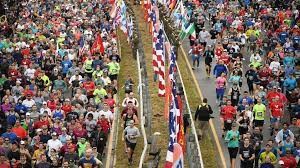
Runners currently in the live MCM, MCM10K and MCM50K categories have the option to:
Receive a virtual entry to the distance of the same race.

Receive a full registration refund.
Defer entry to 2022 at no additional fee.
Further instructions and a link to the registration change form will be sent to the e-mail address provided by participants during registration.
The virtual MCM Weekend events including the MCM, MCM50K and MCM10K must be completed between October 1 and November 10 — the Marine Corps Birthday. All participants will receive via mail the corresponding participant shirt, commemorative patch, bib and finisher medal. Runners will also have access to an online event program, personalized finisher certificate and several digital engagement platforms.
The 47th MCM Weekend is scheduled for October 28–30, 2022.
(09/25/2021) ⚡AMPMarine Corps Marathon
Recognized for impeccable organization on a scenic course managed by the US Marines in Arlington, VA and the nation's capital, the Marine Corps Marathon is one of the largest marathons in the US and the world. Known as 'the best marathon for beginners,' the MCM is largest marathon in the world that doesn't offer prize money, earning its nickname, “The...
more...Bristol 10K runner disqualified after accidentally winning half-marathon
When Omar Ahmed made a wrong turn in the 10K event of the Great Bristol Run, little did he know that he would run an extra 12km to win the half marathon and then get disqualified.
The two courses diverged at one point and Ahmed, who entered the 10K as an elite runner, went the wrong way to finish the half-marathon with a time of 1:03:08 -- nearly five minutes ahead of the competition.

"Rules are rules and in this case they say we have to disqualify Omar," Paul Foster, chief executive of The Great Run Company, was quoted as saying by the BBC.
"We salute his performance and he has been invited to take part in next week's Great Manchester Run as an elite athlete. Of course, we also look forward to welcoming him back to Bristol for 2022's Great Bristol Run."
As a result, Chris Thompson who finished with a time of 1:07:53 was adjudged the winner of Sunday's race.
The 10K and half marathon are usually held in different months. Both races were cancelled last year due to the COVID-19 pandemic
(09/25/2021) ⚡AMPGebrekidan sets sights on course record
An attack on the women’s course record – which currently stands to Gladys Cherono at 2:18:11 – is looking increasingly likely in Berlin on Sunday.
Three women with sub-2:22 PBs will take to the startline, including world leader Hiwot Gebrekidan of Ethiopia, who clocked a PB of 2:19:35 in Milan in May.
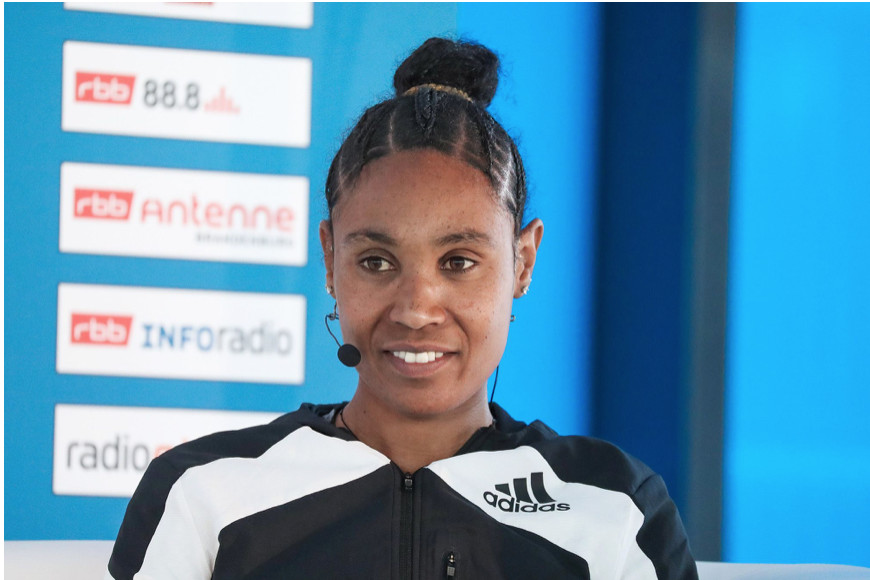
“I’ve been preparing for the BMW Berlin Marathon for a long time and want to run my personal best on Sunday,” said the 26-year-old, who will be contesting her first ever World Marathon Majors race.
When pressed as to what pace she would like, Gebrekidan said: “I’d actually like to hold back in the first half. But I nevertheless plan to go through halfway in just under 69 minutes.”
Such a split at halfway would put Gebrekidan not only in contention for the course record but also the Ethiopian record, currently held by Worknesh Degefa with her time of 2:17:41 in Dubai in 2019.
Fellow Ethiopian Shure Demise also has a personal best in her sights. She is a highly experienced marathon runner, having run a dozen of them. “I’ve spoken with other women runners and know what a fast course is Berlin. I have high expectations for myself and want to break my personal record,” said Demise, whose best currently stands at 2:20:59 and could well go under 2:20 for the first time.
“2:20 remains a breakthrough target for women in the marathon,” said race director Mark Milde. “We’ll have to wait and see what times are actually run. But a pace like that (69 minutes at half way) would certainly suit us. And a course record would be great.”
Fancy Chemutai, a late addition to the field, also has high hopes for Sunday’s race. The Kenyan has a best of 2:24:27 and will be running only her second marathon. Her half marathon best of 1:04:52 – which makes her the seventh fastest woman of all time – suggests she still has a lot of untapped potential at the full marathon distance. No other woman on the Berlin start list has such a fast half marathon performance.
Gotytom Gebreslase could be another one to watch on Sunday. The Ethiopian, who won the world U18 3000m title back in 2011, will be making her marathon debut. Given her PBs of 1:07:52 for the half marathon and 14:57.33 for 5000m, the 26-year-old could be in contention for a podium place.
About 25,000 runners from 139 countries are expected to take part in the 47th edition of the Berlin Marathon. Although more than 90% of participants have been vaccinated against the coronavirus, the race will take place under strict hygiene regulations.
“For months our challenge has been to organise a safe BMW Berlin Marathon, and we’ve achieved our objective,” said Jürgen Lock, the general manager of race organiser SCC Events. “It’s a very good feeling; we’ve arrived at the new reality.”
(09/25/2021) ⚡AMPby World Athletics
Bekele back in Berlin and targeting third triumph
Ethiopian long distance superstar Kenenisa Bekele will defend his BMW Berlin Marathon title on Sunday (26) in what will be his fourth appearance at the World Athletics Elite Platinum Label road race.
Two years ago he ran through the Brandenburg Gate on his way to an Ethiopian record of 2:01:41, a mere two seconds outside Eliud Kipchoge’s world record set on the same course just one year prior. Thanks to that performance, Bekele remains the second fastest marathon runner of all time and heads Berlin’s elite field for this Sunday.
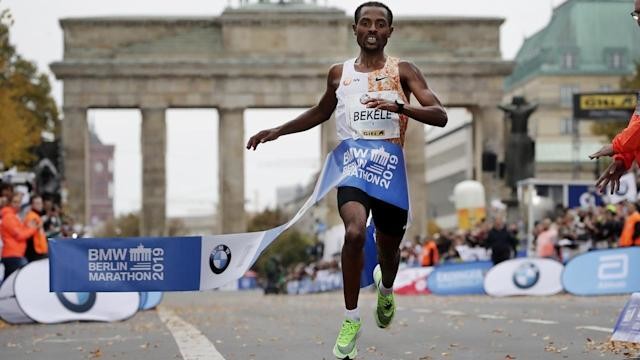
Although the 39-year-old made no concrete mention of a world record attempt at Friday’s press conference, there were signs that he had the target on his mind.
Eleven marathon world records have been set in Berlin so far, more than at any other race. Could Bekele make it a round dozen on Sunday?
“I have prepared well, but the pandemic hasn’t made it easy in the last two years,” said Bekele. Asked about the difference with his 2019 race in Berlin where he went so close to the world record, the three-time Olympic gold medallist said: “At the time it wasn’t clear whether I could run that fast. This time I have more confidence and will do my best.
“Sunday may not be my last chance of the world record, I want to run a couple of years more,” added the 39-year-old, who won the 2016 Berlin title in 2:03:03, only six seconds outside the then world record. The next year he had to drop out.
This Sunday offers Bekele arguably his best chance of breaking the world record, which is a view shared by his Dutch manager Jos Hermens. “Kenenisa has energy and the ability to be right up front at over 40,” said Hermens. “But Sunday’s race will be his best chance of a world record.”
The race is about more than one man, though, as the field includes 10 men with sub-2:10 PBs. “We have connected almost seamlessly with where we had our last race in 2019,” said race director Mark Milde. “Naturally we are delighted that we have been able to recruit a very strong field with Kenenisa Bekele at the top.”
Bekele’s compatriots Guye Adola and Olika Adugna could also produce impressive results. Adola famously stuck with Kipchoge until the very last stages of the 2017 Berlin Marathon, eventually finishing second in 2:03:46 – a time which, at that point, was the fastest marathon debut in history.
“I want to be among the leading group on Sunday,” said Adola, the 2014 world half marathon bronze medallist.
Adugna, meanwhile, also produced a notable performance on his marathon debut, clocking 2:06:15 in Dubai last year. The 22-year-old hasn’t raced since then, so will be raring to go on Sunday.
(09/25/2021) ⚡AMPby World Athletics
Shalane Flanagan to run 6 marathons in 42 days
Nearly three years after Shalane Flanagan officially retired from elite racing, she’s toeing the line of her marquee event again — not once, but six times in 42 days. With five of the six World Major marathons coming up in the next few weeks, the 16-time national champion will be aiming to run each of them in less than three hours, and then to run a sixth to make up for the postponed Tokyo Marathon.
Because of delays caused by COVID-19, five of the six World Majors are being crammed into a tightly packed fall schedule. Flanagan’s marathon of marathons will start in Berlin on September 26, the same course where she ran her personal best of 2:21:14 in 2014 and became the fourth-fastest American marathon runner of all time. She’ll have one week of recovery before heading to the U.K. to compete in the London Marathon, and from there she’ll return to North America where she’ll run the Chicago Marathon on October 10 and turn around the very next day to run the Boston Marathon on October 11.

The Tokyo Marathon was to be her next race on October 17, but organizers postponed the race again until March 2022. In its place, Flanagan will travel to Portland, Oregon to run her fifth marathon in four weeks. She’ll then have three weeks of recovery before completing her challenge at the New York City Marathon on November 7. New York will be a special place to end her gruelling series, since it was there that she became the first American woman to win the race in 40 years in 2017.
Flanagan retired from professional running in 2019, and since then has had two reconstructive knee surgeries, become a coach with the Bowerman Track Club and adopted a baby boy. In an interview with Self, she explained that she’s taken on this challenge as a way to “reunite” with running after retirement and knee surgery.
“I felt the need to set some goals again,” she said. “Realizing this was a once in a lifetime opportunity presenting itself, with six major world marathons in 42 days, I feel like I’m doing it for myself, for my son, and for young women to showcase the connection between mental and physical health and how important of a role athletics can play in your life.”
(09/25/2021) ⚡AMPThe Best Way to Improve Your Running Is to Stop Caring About Your Times So Much
Obsessing over my watch data caused me to go too far, too fast. Here’s what I learned when I paid no mind to my results
My run had all the makings of being a magical one: a rare, cool morning in July, an open field of soft grass, Utah’s Wasatch mountains in the background with rays filtering through their peaks. I was slogging through one of my first runs back after a long break. I had been sidelined by plantar fasciitis for six months and was finally given the green light to train again.

The miles were not without restriction; my wise physical therapist told me to run slowly on grass only, without my shoes for five minutes the first day, then work my way up in 30 second increments every other day until I reached seven minutes.
The directions were clear. I understood that I needed to stick to this gentle buildup to avoid a flare-up or another injury. I also knew that I was not in my best running shape. Still, when I looked down at my watch on that golden July morning and saw that I had only traveled a little over a quarter of a mile in four minutes, I panicked. How was I going so slow?
Yes, I was running barefoot, on grass, healing from an injury, but still—shouldn’t my pace be a little quicker? My rational thinking disappeared, and I tried to pick it up; I drove my knees higher, quickened my turnover, and felt my breath get ragged in my throat. Man, I thought, I am so out of shape. I checked my pace on my watch, then checked again and again.

I went beyond the time cap that my physical therapist had given me just to say I ran a whole mile. At the end, I didn’t feel accomplished or proud. I felt frustrated, stiff, and a little sick—and my foot hurt.
I knew I could not push like this day after day … again. In the last two years, obsessing over the stream of data pouring from my GPS watch had caused me to go too far, too fast, which many runners know is the recipe for overuse injuries and burnout. This recovery cycle needed to be different to save my running life.
I knew I needed to stop caring about results. Here’s what I’ve learned so far.
Don’t believe your ego
Why do we push too hard in training? During that slow, grassy run, what in my brain needed to see the little numbers on my watch tick up to a mile? The easy answer? My ego.
In one of my favorite books of all time, The Inner Game of Tennis, author Timothy Gallwey describes the concept of the ego in sports as Self 1. The other self, Self 2, is your body. This is the being that knows how to swing a racket, or in our case, how to put one foot in front of the other. It knows running mechanics, what each stride should feel like, and how fast to go. Unfortunately, Self 2 is often under the tyrannical expectations and pressure of Self 1.
Self 1 is your thinking self. In running, your Self 1 is often analyzing splits and paces and pestering your body to speed up, slow down, go farther, or be better. Basically, your “thinking” self cares too much and thus tries too hard. To run at your peak, you must master the art of relaxed performance and allow your body the freedom to take over and do the work.
Knowing that your mind and body are sometimes at odds with each other is helpful in trying to combat the critical self. For a few weeks, the most effective tool I had to stop my Self 1 from spoiling my runs was to yell “Who cares?!” at myself every time I started to judge my performance. I had to snap myself out of a state of constant analysis. This method, though strange, did help quiet the thinking self.
Learn to trust yourself
Ideally, we want our mind to be sending out signals that say, “Hey, body, I trust you. I’m not going to waste your time. I’m just going to shut up and enjoy the ride.” But how do we learn to let go and believe in the power of our extremities?
Here’s a simple test I learned from Austin Haws, D.P.T., a physical therapist at Fyzical Therapy and Balance Centers in American Fork, Utah. Stand on one foot for 30 seconds, then switch feet. Once you’re able to do this with ease, then you can take the real test: Close your eyes and stand on one foot. Try to hold for 30 seconds. Repeat on the other foot. This was one of the first exercises I did to help build trust between my body and mind.
If you can stand on one foot with your eyes closed for 30 seconds, then great. Your brain is likely letting your body do the work for you without trying to control everything. If it is tough for you to maintain your balance with your eyes closed, try this before you close your eyes: Remind your mind that your body is in one place, and it is not moving.
Sometimes just communicating with your body about what to do is enough to stop all that wobbling around. If standing on one foot with your eyes closed is simple for you, try to exceed the 30 seconds and record your best effort. If you can’t make it to 30 seconds, then jot down how long you can hold it for. Practice every day. Your mind is very strong, and if your mind thinks your body is capable of handling a task, your body will do it.
This will translate to running. You can try this type of simple mind-body communication and trust-test in your training, especially if you are an intermediate or advanced runner whose body knows the feeling of different paces. If this is you, try running a tempo run without a watch. Simply set a timer for the duration of the run and tell your body to run the pace you want to hit.
Just breathe
I can hear runners all over saying, “Wait a minute, I really don’t know what the pace I’m supposed to be running feels like.” That’s okay. You will get there the more you learn to trust your body. But until then, turn your awareness to your breath.
If your breath is ragged and you’re unable to speak during a training run, that means you are going too fast. Remember how I couldn’t breathe on that day when my ego told me to go faster? I was spitting and coughing—a sure sign I was running beyond my fitness level. The beauty of controlling your breath is that it allows you to get the most out of your run. You build your aerobic capacity by training properly instead of merely wearing yourself down.
So instead of caring about your speed, focus on how and when you are breathing. In his book Running on Air, famed running coach Budd Coates explains breath patterns. If you inhale for three steps (in/right footstep; in/left footstep; in/right footstep), then exhale for two (out/left; out/right), you should be able to sustain an even training pace, prevent overstriding, and feel great.
Breath work also lets your mind relax. Your ego self is given a distraction. That over-analyzing pain in the you-know-what must count, step, and breathe. Meanwhile, the runner you’re meant to be takes over. It’s like a moving meditation that keeps you very tuned in and focused and could launch you into flow.
So, is this all for the flow?
Eventually I yelled “who cares?!” at myself enough times that I felt comfortable leaving my watch at home. As I built mileage up, I would tell my body at the beginning of each run what the plan was. I’d say something like, “Okay, today we are going to run for 25 minutes, very easy.”
When I made the decision to stop caring about my pace, and instructed my mind to trust my body, and attempted to be present in my breath, something awesome happened. One beautiful afternoon, I experienced one of those magical flow runs. You’ve probably heard of this concept of flow, or the zone, or whatever buzzword you want to throw out there to describe that state of ecstasy when you are so fully present doing something that the rest of the world melts away.
I consulted sports psychologist and runner Hillary Israelsen, M.S., to ask if my “I don’t give a crap” attitude could have helped facilitate the flow run. She said it probably came down to newfound focus.
“The more mindful you are, the more likely you are to achieve flow in practice or competition,” she said.
I wasn’t interrupting myself by checking my splits or how far I had to go. Perhaps more importantly, I wasn’t judging myself. I was just running.
Israelsen told me that with a lot of mindfulness practice, runners can experience that brilliant state more often. But of course, if you care too much about reaching flow state, you are not going to reach flow state.
“You can’t force flow,” she said. “But you can practice quieting your thoughts.”
Here’s the bottom line: You know how to run. When you are out on the road or trail, grinding away, you should not have to care about how fast, slow, or far you must go every single session. Don’t analyze your running while you are running—that is the “critical” self trying to interfere and all that thinking can slow you down. One of the greatest gifts you can give yourself is running free. So take off your watch, shake away your thoughts, and go out, feel your breath, and get grounded in the run.
(09/25/2021) ⚡AMPby Runner’s World
If You’ve Had Panic Attacks While Running, You’re Not Alone
A mental health expert provides techniques to manage your brain and body’s reactions to anxiety.
For many people, running is the tool they use regularly to help alleviate symptoms of anxiety. But what happens when the activity that usually gives rise to a euphoric rush of endorphins seemingly begins to elicit a completely different response?

The truth is when you’re going through a stressful period of time in your life, particularly one that prompts anxious feelings in sporadic intervals, running may not be enough to make you immune to intense moments of panic. In fact, you may even find yourself experiencing a panic attack while running.
For longtime runner Ellen Isaac, panic attacks have just recently begun to occur while on runs—and often. As a former Division I athlete for Ohio University’s (OU) cross-country and track teams, Isaac is no stranger to stressful situations and is someone who genuinely looks forward to competition. However, it wasn’t until after she took her state board exam for physical therapy school this past April that she realized intense bouts of fear could immobilize her while running.
She was on a run with her boyfriend, Nick, when she started feeling overwhelmed with thoughts about whether or not she passed her exam.
“It got to the point where I literally just stopped in the middle of the towpath and was uncontrollably sobbing,” Isaac says.
She was able to identify that she was having a panic attack, so she immediately found a rock to sit on so that she didn’t fall down.
“Breathing while you’re running isn’t the easiest thing in the world, even when you’re running slow,” Isaac adds. “When you start to have those panic attacks, you’re short of breath from that, you’re short of breath from running, and it just completely spirals out of control. I just remember feeling totally out of control of what was going on in my life and out of control of what was happening with my body at that point in time.”
Michele Kerulis, Ed.C., L.C.P.C., who’s certified with the Association for Applied Sport Psychology and a professor of counseling at the Family Institute at Northwestern University, explains that panic attacks are caused by intense fears, concerns, or anxiety. And while these feelings are perpetrated by the mind, they can result in equally intense physical symptoms—like increased heart rate, breathing, and sweating—much like the ones Isaac experienced.
"Running in and of itself does not cause someone to slip into a panic attack—it’s more likely the runner’s thought process quickly snowballs from a small uncomfortable thought into a full-blown panic attack,” Kerulis tells Runner’s World. “For example, if someone has a fear of dogs and sees a dog on their running route, that person might have an automatic thought such as, ‘that dog is going to attack me,’ which leads to feeling intense fear, which can result in a panic attack.”
She points out that from a psychological perspective, when someone experiences a panic attack, it’s the body’s primitive response saying, “I feel like I really need to protect myself right now, I’m scared.” This reaction can then spearhead a physiological response that mimics the one that occurs while you’re running.
“At that point, you experience increased respiration, you’re breathing harder, your heart rate goes up, you’re sweating, [you have] increased blood flow to your muscles—those are the exact same things that happen when you’re running. It’s the exact same physiological response as a panic attack,” says Kerulis. “So you’re having those same, almost ‘alert type’ of neurotransmitters in your brain, telling your body to accelerate. Even though the circumstances are very different, physiologically we’re experiencing those same things.”
→ Join Runner’s World+ today for exclusive access to more expert health and running tips!
While Isaac says very few things will help her get out of a panic attack once one ensues, she has one method that seems to, at the very least, stabilize her symptoms and prevent them from exacerbating any further.
“When it happens, a lot of times what I end up doing is I usually end up counting all of the seconds until I calm down [while still running]. Sometimes I end up counting seconds for three miles. And then I’m like, okay, I’m fine now,” she says. “I do that during races, too. If I’m starting to freak out and get to that part of the race where I don’t know if I can keep going, I count seconds.”
As Kerulis points out, running might reduce some symptoms of anxiety, but it won’t eliminate the thought process that triggers anxious reactions. Still, there are some elements that are learned from running that may soothe you in moments where you begin to feel frightened.
"Running has helped a lot of people develop skills to control their physiological symptoms, which can help them with body-to-mind relaxation techniques that are helpful when they feel as if they will experience a panic attack,” says Kerulis.
Despite how terrifying these panic attacks are when they occur while running—not to mention the uncertainty of when they will happen during her run—Isaac remains grateful for the sport.
“If running kind of stirs up some anxiety for me, on one hand, yeah it’s unfortunate that it’s plaguing a part of my life that’s always been such a big stress relief for me,” she says. “But, if it takes some anxiety and panic attacks on runs for me to realize that there are things in my life that I need to address that I’m trying to shove under the rug, then I’m kind of okay with that.”
For those who experience regular bouts of anxiety, there are ways you can consciously restructure your own physiology while running so that you can better prevent slipping into that panicked state. Kerulis says that mental health providers often use mind-to-body as well as body-to-mind techniques to help people manage their cognitive (mind and thoughts) and physiological (body) reactions to anxiety.
What is a mind-to-body technique?
“In the example above where a runner sees a dog on their route, once they notice their automatic thought, ‘that dog is going to attack me,’ they can work to stop the thought from snowballing by saying ‘stop!’ to themselves. Then [they can] rationalize the situation with a new, restructured thought like, ‘I know I’m scared right now, but that person seems to have control over their walk with their dog—I am safe,’” says Kerulis. “This will allow the person to slow down their thoughts and refocus on enjoying their run.”
She adds that picking up a meditation practice is another way you can gain control of your thought processes, as it can produce a calming effect.
What is a body-to-mind technique?
Kerulis explains that this method encourages people to address their physiological symptoms of a panic attack head-on and allows them to focus on de-escalating those physical feelings. So, once someone can identify what they feel in their body—both when they're having a panic attack and when they’re running—they can begin to separate the two sensations and regain a sense of control.
“When someone is sprinting, for example, they will have heavy breathing and need to learn how to manage breath control to gain skills as a sprinter,” says Kerulis. “The same breath control can be used when someone feels a panic attack coming on. This way, people can focus more on their bodies and less on their minds at that moment. Once the wave of anxiety passes, they can re-evaluate the situation that triggered the anxious feelings.”
The bottom line
Consciously employing both mind-to-body and body-to-mind techniques while running may be the answer to staving off the onset of a panic attack. As Kerulis notes, regular exercise can help you understand your body’s responses to stress.
“Once you have a familiarity with your body’s responses, you can learn ways to slow down these responses, which will also help you gain a sense of control,” she says.
(09/25/2021) ⚡AMPby Runner’s World
Kenya’s six-pronged attack will headline on the streets of London
This years’ edition of the London Marathon has attracted a smaller field, but the race is nevertheless expected to be competitive when the athletes line up in the English capital on October 3.
This year’s race is taking place at a time the world is still battling the coronavirus pandemic which has forced organizers to shift the race from the traditional month of April to October.
Compared to last year, only six athletes from Kenya will compete in the race.

Vincent Kipchumba, Titus Ekiru and Valencia Marathon champion Evans Chebet will line up in the men’s category.
In the women’s category, defending champion Brigid Kosgei who is also the Olympics silver medalist will team up with reigning New York Marathon champion Joyciline Jepkosgei and Frankfurt Marathon champion Valary Jemeli.

Last year, the race was held in a bio-secure bubble at the St James Park in London. As a precautionary measure against the possible spread of Covid-19, no fans were allowed to cheer the athletes along the route during the race.
Ethiopia’s log distance running legend Kenenisa Bekele pulled out of the men’s race at the last minute due to a calf injury he had picked in training.
More disappointments were to follow as pre-race favorite Eliud Kipchoge of Kenya who is also the world marathon record holder finished in eighth position, clocking 2 hours, 06 minutes and 49 seconds.
Ethiopia’s Shura Kitata (2:05:41) claimed victory in a sprint finish with Kenya’s Vincent Kipchumba (2:05:42) who, nevertheless, had to contend with second place. Ethiopian runner Sisay Lemma clocked 2:05:45 to finish third.
In the women’s category, Kosgei retained her title after winning in 2:18:58 ahead of United States of America’s Sara Hall who timed 2:22:01.
Reigning world marathon champion Ruth Chepng’etich was third in 2:22:05.
To minimize the chance of contracting Covid-19, Kenyan athletes who were to participate in the race jetted out of the country in the same flight.
Athletes and members of their technical teams also boarded the same flight. The aeroplane carrying athletes was scheduled to pick more athletes in Addis Ababa, before heading to Athens for a scheduled stop over. The team would then head straight to London’s Stanstead Airport.
Pacemakers and elite athletes with their technical support teams were ferried in a 56-seater plane which landed at the Eldoret International Airport a day before the scheduled date of travel.
The crew who were six in number, spent the night at The Boma Inn Hotel in Eldoret.
Speaking exclusively to Nation Sport in Eldoret at the time, captain Julian Mogg who isin charge of the flight, said that he was delighted to fly athletics champions to London whom he has been seeing on television.
“We are delighted to fly the athletes who will compete in the London Marathon. I’m happy because I will be able to see them during the flight,” Mogg said at the time.
The London Marathon route is iconic and runs from Black heath in the south east of London to the finish line at The Mall.
Athletes will be able to go through Greenwich before passing over the Thames as they cross the Tower Bridge before going through central London. They will pass the Canary Wharf and famous landmarks such as the London Eye and Big Ben.
The athletes will then turn to Buckingham Palace, and follow a stretch of The Mall to reach the finish line.
(09/24/2021) ⚡AMPby Bernard Rotich
TCS London Marathon
The London Marathon was first run on March 29, 1981 and has been held in the spring of every year since 2010. It is sponsored by Virgin Money and was founded by the former Olympic champion and journalist Chris Brasher and Welsh athlete John Disley. It is organized by Hugh Brasher (son of Chris) as Race Director and Nick Bitel...
more...Grandfather Harmander Singh who struggled to walk down the stairs after contracting Covid-19 is preparing to run his 37th consecutive London Marathon.
Harmander Singh, 62, from Ilford, tested positive for coronavirus in January.
The retired local authority worker has run 163 marathons over the years but said he felt “doddery” after overcoming the virus and it took him four months to get back to running.
He said he lost 12lbs in a week while he had Covid-19.

Describing his illness, he said: “In all my life that I’ve been working I’ve never had a day off sick, so it was a new experience for me. I couldn’t breath.”
He did not go to hospital, instead isolating in an upstairs guestroom in the family home.

“After my isolation period finished, I found it a struggle to even come down the stairs,” he said.
There wasn’t any moment when I said I’m going to give up but I was becoming more realistic about what my chances were of ever running a marathon again. But I was determined
“I took it one step at a time and was a bit doddery.
“I started walking a bit more each day. It was a struggle.
“There wasn’t any moment when I said I’m going to give up but I was becoming more realistic about what my chances were of ever running a marathon again. But I was determined.”
He said that running the London Marathon will be the “biggest stepping stone to being normal again”.
“London is my favorite by far,” he said.
“It’s not just because I’m a Londoner it’s genuinely the best race in the world.
Mr Singh, whose personal best time for a marathon is three hours 11 minutes at a race in Manchester said he has no target time for the London Marathon on October 3.
“I’m going to, for the first time in so long, genuinely going to just enjoy it,” he said.
Mr Singh is club president of the Sikhs In The City running group, which he described as the “only Asian-led athletics club in the UK”.
He is coach to 110-year-old Fauja Singh, who he said is the world’s oldest marathon runner – running his first marathon aged 89 and his last aged 101.
This year’s London Marathon will be Mr Singh’s 164th marathon in total.
He has also completed the Great North Run every year for the last 37 years and said he wants to continue with both races until he is 74, meaning he will have run 50 of each.
“But that’s not within my gift, it’s up to god,” he said.
(09/24/2021) ⚡AMPby Barney Davis
TCS London Marathon
The London Marathon was first run on March 29, 1981 and has been held in the spring of every year since 2010. It is sponsored by Virgin Money and was founded by the former Olympic champion and journalist Chris Brasher and Welsh athlete John Disley. It is organized by Hugh Brasher (son of Chris) as Race Director and Nick Bitel...
more...Kenya´s Nancy Kiprop takes inspiration from Covid-19 stigma ahead of New York Marathon
Three-time Vienna Marathon champion Nancy Kiprop has recounted the tough times she and her family underwent after fake news spread that her husband, Joseph Chelimo, had died of Covid-19.
Her ordeal was worsened by the fact that Chelimo has been all the while battling for his life in the intensive care unit at Mediheal Hospital, for close to a month.
She said her mental health took a big hit from the rumours and she had to stop training for a while.

"When the bad news started spreading that my husband was dead due to Covid-19, it really affected my training. I went into depression for about a week but I had to stand firm for my family and career. I had to start my training and be there for my husband,” Kiprop says.
Such rumours, she says, was so disheartening and a big burden to bear especially for their daughter, who was looking forward to her father's recovery.
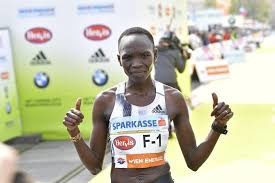
Kiprop regretted how 'mourners' kept streaming into their home asking about the burial arrangements which threw her family, including their five adopted children into agony.
"People even used to flock to my shop in Iten, requesting to know the burial date. I was forced to close down the shop," she recounts.
“As a family, we expected people, friends, family members and wellwishers to spread the good news of healing but it was the opposite. It has been so disheartening to realise we are living with people, whom we thought are friends and family, only to for them to celebrate when we are in trouble,” explained Kiprop.
“In fact, our young children have been thinking that I have been hiding information from them. They have been really affected, especially their studies. One of them has forfeited going to school because of what she has been hearing from her friends and neighbours,” she explained.
“My daughter is only 22 years and she’s still young to absorb such bad news when she knows the truth.
Besides the shop, Kiprop was forced to keep away from a school she runs, also in Iten, due to the stigmatisation she would suffer from the students and teachers every time she was around.
“I own a school but I had to quit going there. Everyone, including the children, believed that my husband had died of Covid-19 and all they did was run away from me. They believed their director (myself) was a sick person but I thank God all is well now,” Kiprop says.
As the sole breadwinner, Kiprop says she had to remain strong for the sake of her family, amid a flurry of condolence messages.
She also had to take on additional responsibilities and decide on major phases in their children's lives, such as admitting their son to Rift Valley Technical Training Institute as well as their daughter to high school.
“With all these laid upon me, I had to make sure I was sober enough to handle it. Imagine receiving a condolence message yet the man is still struggling in hospital. It is better to get first-hand information before spreading such messages,” she says.
She explains that she was also financially drained.
“I am so burdened and the little savings I had has been spent in hospital. However, my manager has been of great help. When I am down, he comes in handy. He understands that I have adopted five children, he mentors me, supports me. He is a God-sent to me. He is a pillar not just in my career but my life,” she said.
(09/24/2021) ⚡AMPby Emmanuel Sabuni
TCS New York City Marathon
The first New York City Marathon, organized in 1970 by Fred Lebow and Vince Chiappetta, was held entirely in Central Park. Of 127 entrants, only 55 men finished; the sole female entrant dropped out due to illness. Winners were given inexpensive wristwatches and recycled baseball and bowling trophies. The entry fee was $1 and the total event budget...
more...The women’s race at the BMW Berlin Marathon on Sunday is looking increasingly like an attack on the course record
The best time to date was set three years ago when the Kenyan Gladys Cherono ran 2:18:11. Half-a-dozen women will be on the start line who have run under 2:25 and among them is the Ethiopian Hiwot Gebrekidan, the fastest women in the world this year thanks to her personal best of 2:19:35 in winning the Milan title in April.
In the light of the continung Corona pandemic the number of starters for this year has been considerably reduced. Around 25,000 runners are expected to compete on Sunday. The BMW Berlin Marathon will take place under strict hygiene rules.
Any participant on the start line must have been vaccinated, or recovered from the virus or be able to produce a negative PCR test. Over 90% of runners entered have been vaccinated. Spectators on the course will also be requested to maintain social distance and wear a mask covering nose and mouth.
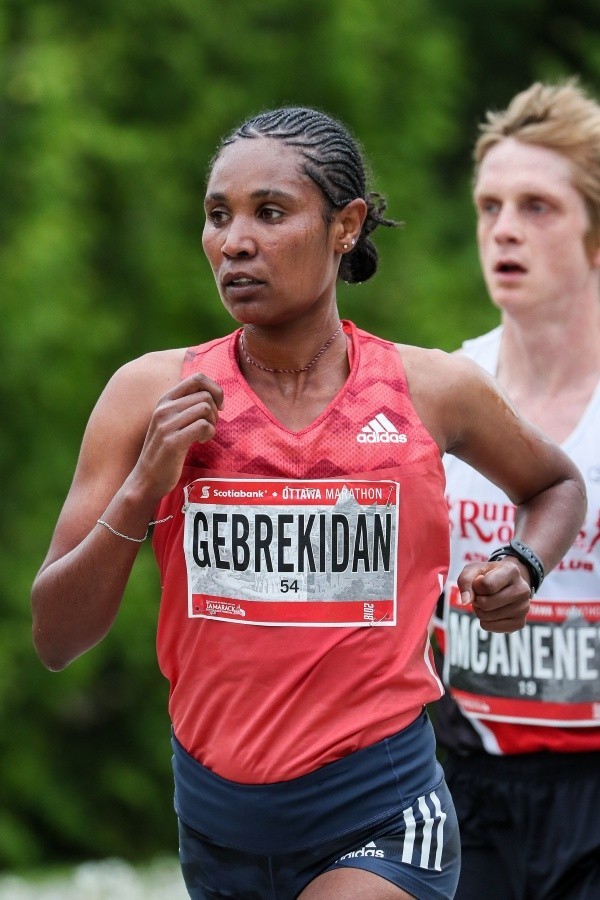
“I’ve been preparing for the BMW Berlin Marathon for a long time and want to run my personal best on Sunday,” said Hiwot Gebrekidan at Thursday’s press conference in Berlin. When pressed as to what pace she would like, the 26-year-old answered: “I’d actually like to hold back in the first half. But I nevertheless plan to go through halfway in just under 69 minutes.” Such a split at halfway would put Hiwot Gebrekidan not only in contention for the course record but also the Ethiopian national record, currently held by Worknesh Degefa with her time of 2:17:41 in Dubai in 2019.
Her fellow Ethiopian Shure Demise also has a personal best in her sights. She is a highly experienced marathon runner, having run a dozen of them. “I’ve spoken with other women runners and know what a fast course is Berlin. I have high expectations for myself and want to break my personal record,” said Shure Demise, whose best currently stands at 2:20:59 and could well go under 2:20 for the first time.
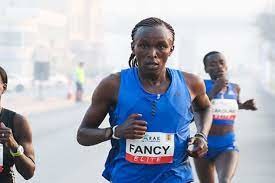
“2:20 remains a breakthrough target for women in the marathon,” said the race director Mark Milde, adding in response to Hiwot Gebrekidan’s announcement of going for a super-fast time at halfway: “We’ll have to wait and see what times are actually run. But a pace like that would certainly suit us. And a course record would be great.”
A woman who has been a late addition to the elite field in Berlin but is capable of a surprise is Fancy Chemutai. The Kenyan has a best of 2:24:27 and will be running only her second marathon. If she were able to convert her enormous potential to good effect in the classic distance she may well be in contention for the win. Her half marathon best of 64:52 makes her the seventh fastest woman at the distance of all time. No other woman on the Berlin start list has such a fast half marathon performance.
Rabea Schöneborn from the local club LG Nord Berlin will be running a marathon for the first time in her home town. The 27-year-old improved her best to 2:27:03 in April in her second race at the distance, missing selection for the Olympics by just nine seconds. This inadvertently created the opportunity of turning that preparation to potentially good effect at the BMW Berlin Marathon. “Berlin is definitely a highlight, I’m really looking forward to Sunday. Up to now I’ve only had the experience of elite marathons but now I can see and feel what’s it like to be part of a big city marathon. Having spectators will definitely give me a lift,” said Rabea Schöneborn.
The Berlin athlete hopes to take advantage of the fast course and what looks likely to be excellent weather conditions to improve her best time. “I always try to hold back a little so I can run the second half faster. That’s also the plan on Sunday,” explained Rabea Schöneborn. Nevertheless, she is still looking at a fast halfway split: “Something between 73:10 and 73:20 is the plan.”
(09/24/2021) ⚡AMPby AIMS
BMW Berlin Marathon
The story of the BERLIN-MARATHON is a story of the development of road running. When the first BERLIN-MARATHON was started on 13th October 1974 on a minor road next to the stadium of the organisers‘ club SC Charlottenburg Berlin 286 athletes had entered. The first winners were runners from Berlin: Günter Hallas (2:44:53), who still runs the BERLIN-MARATHON today, and...
more...




